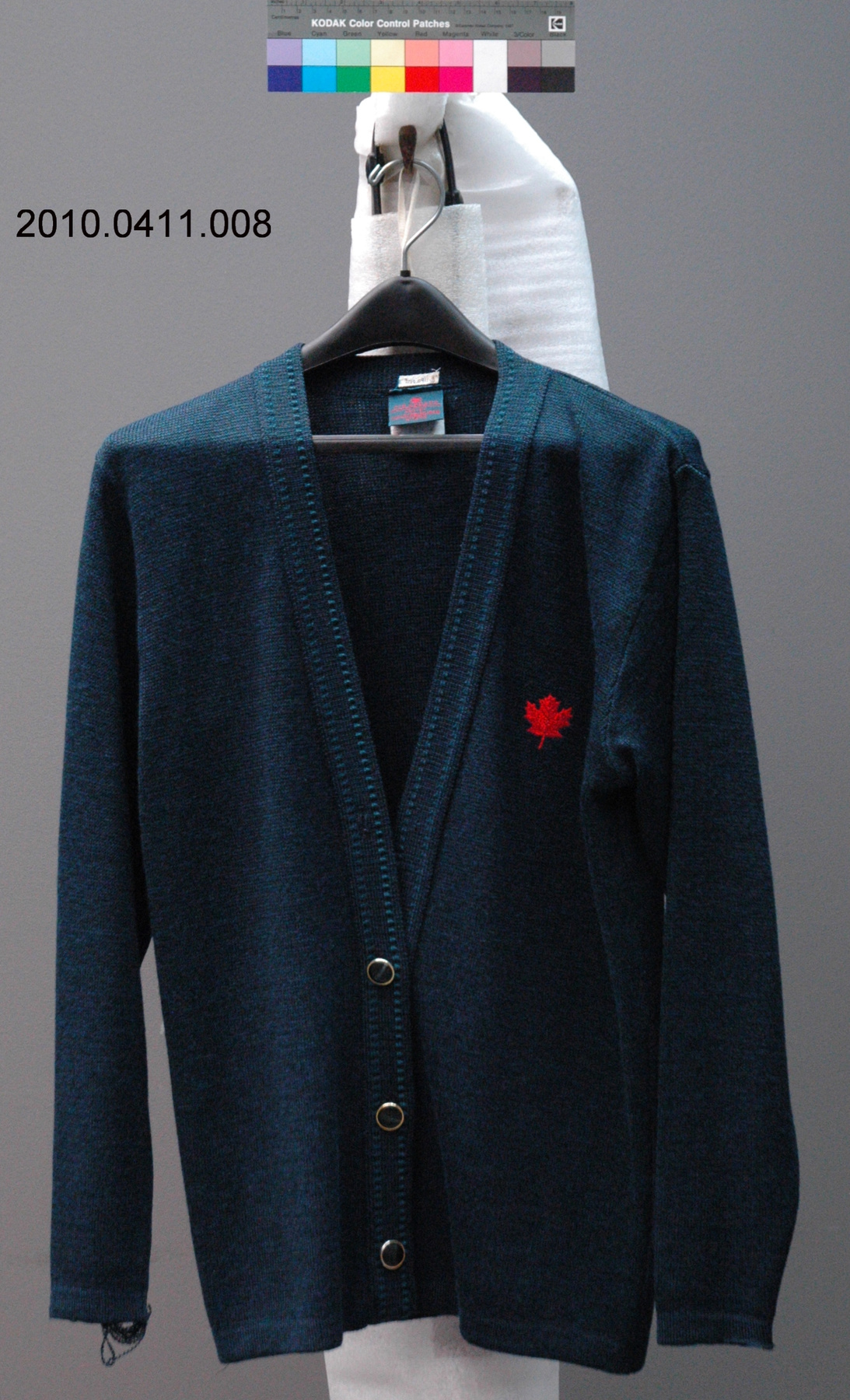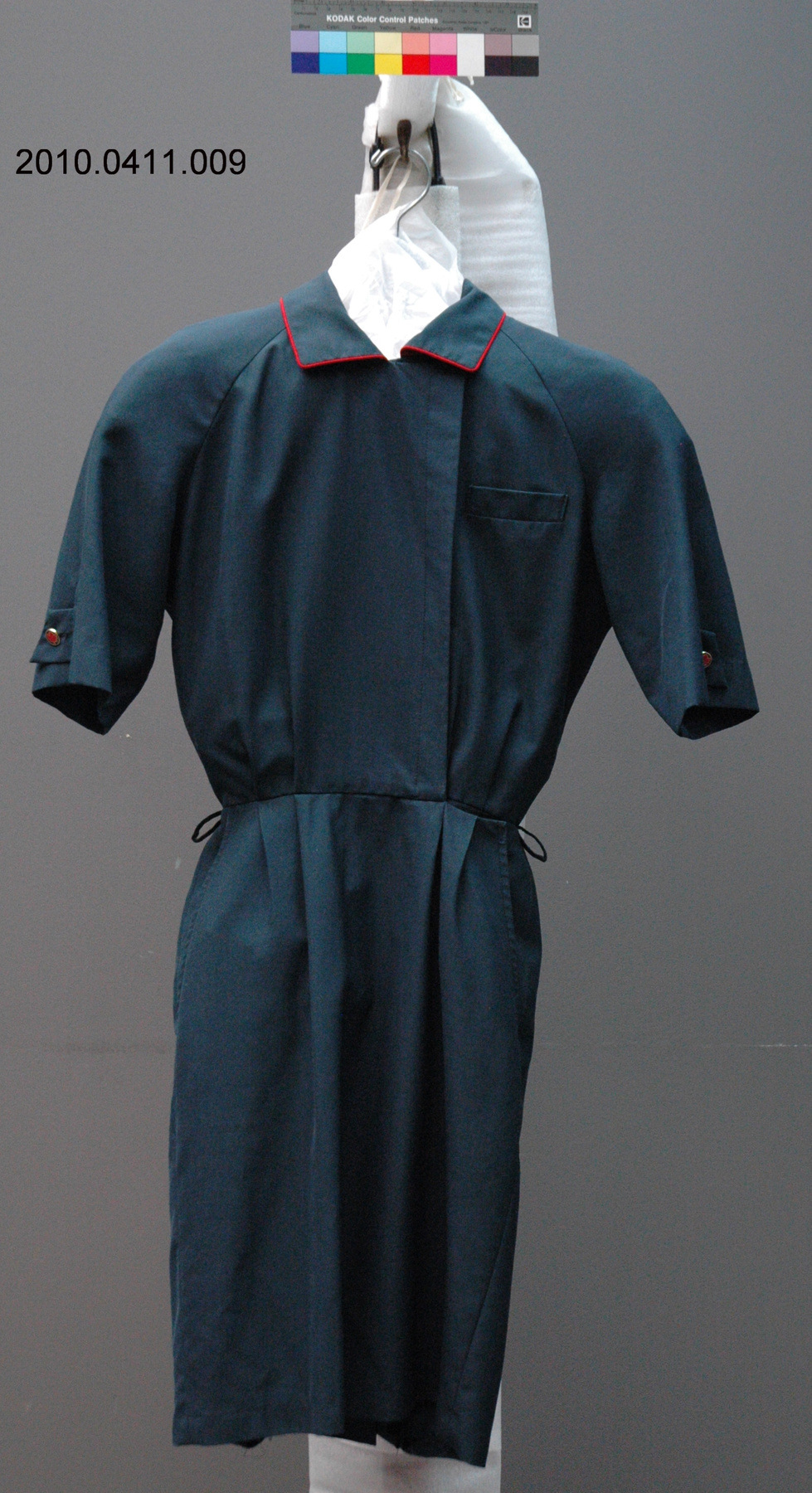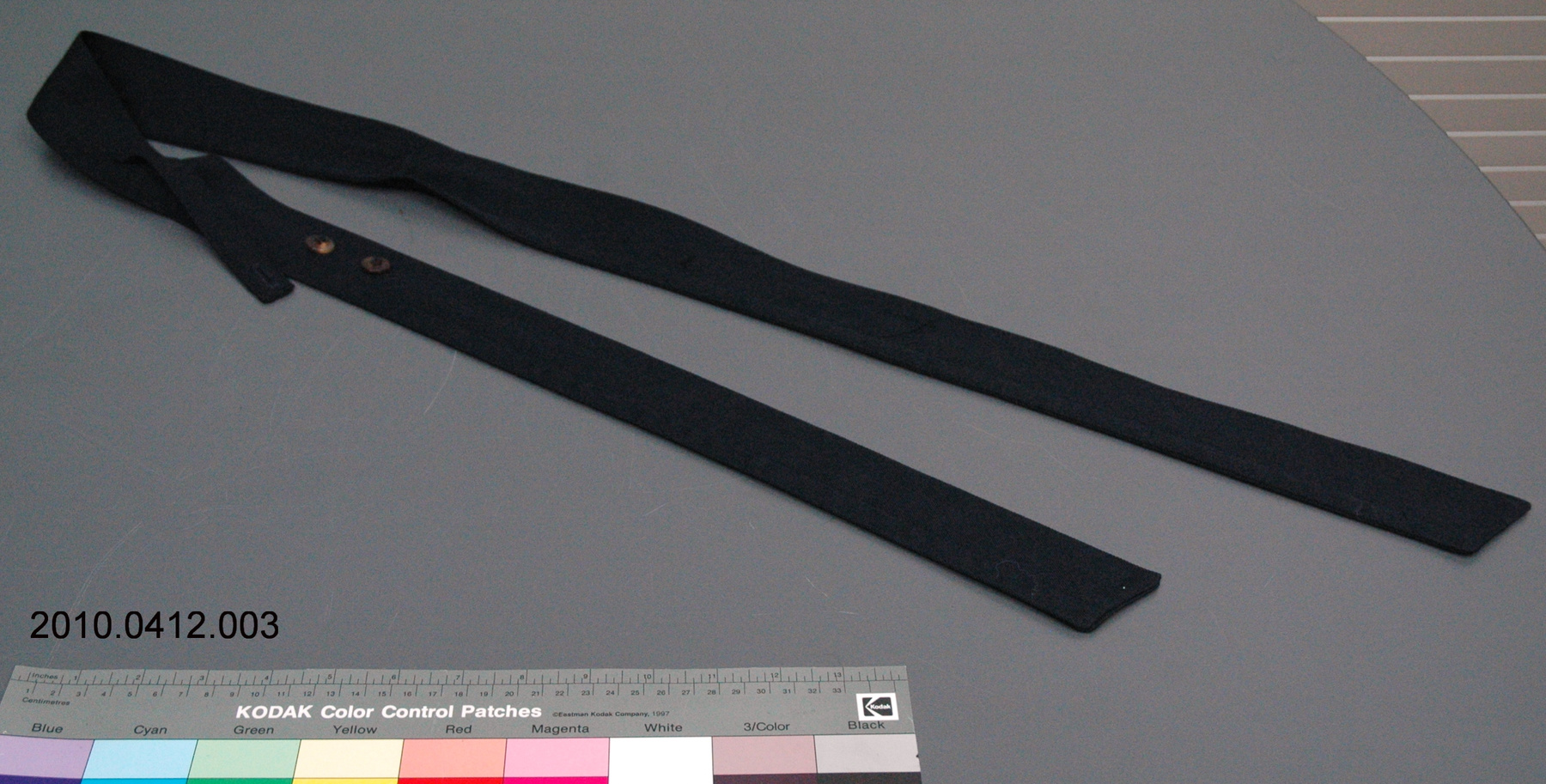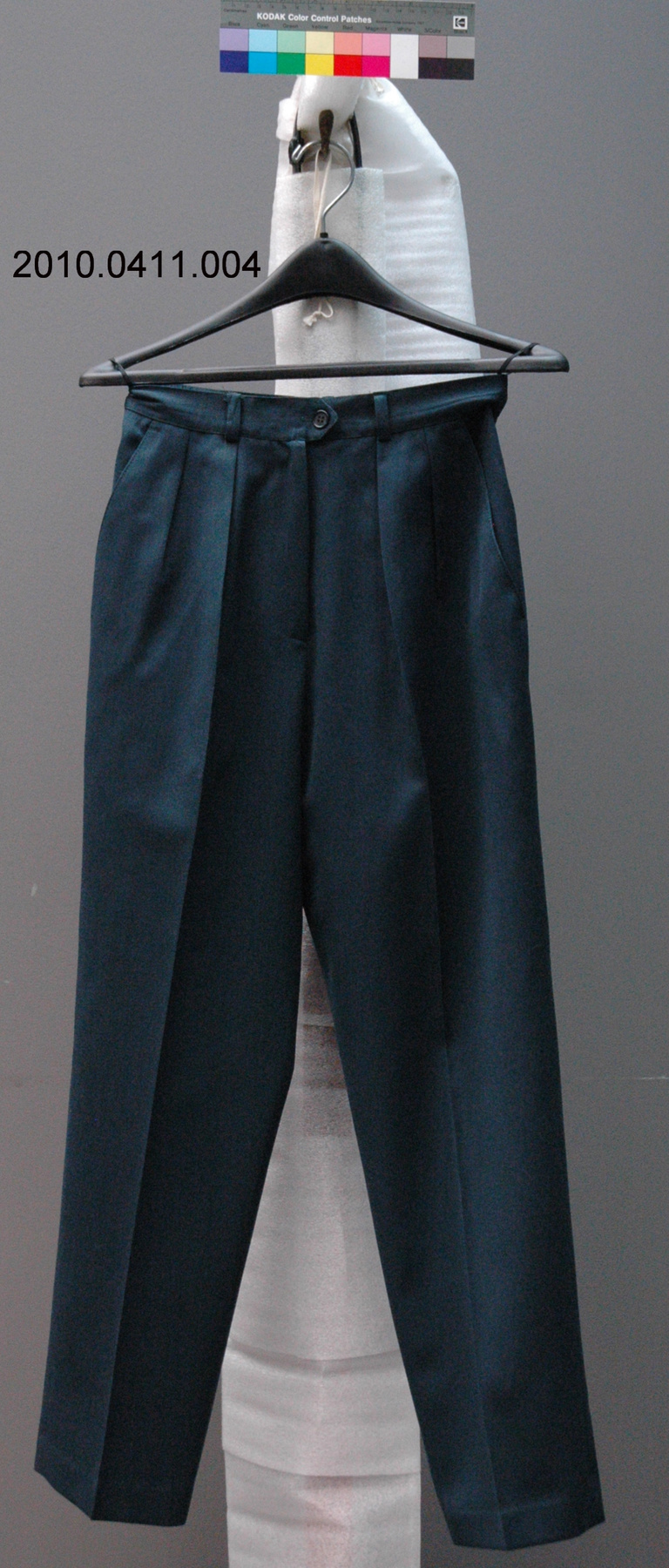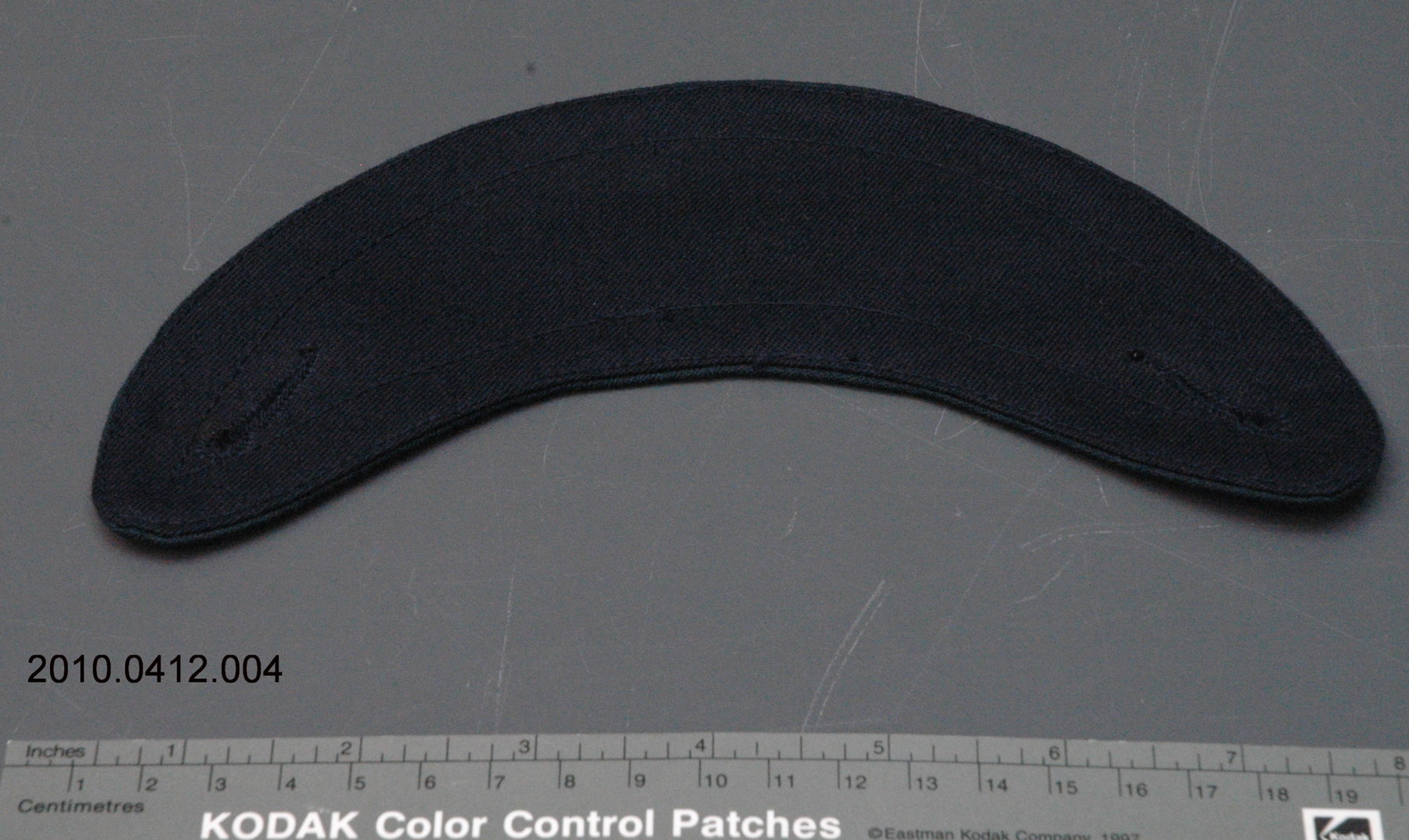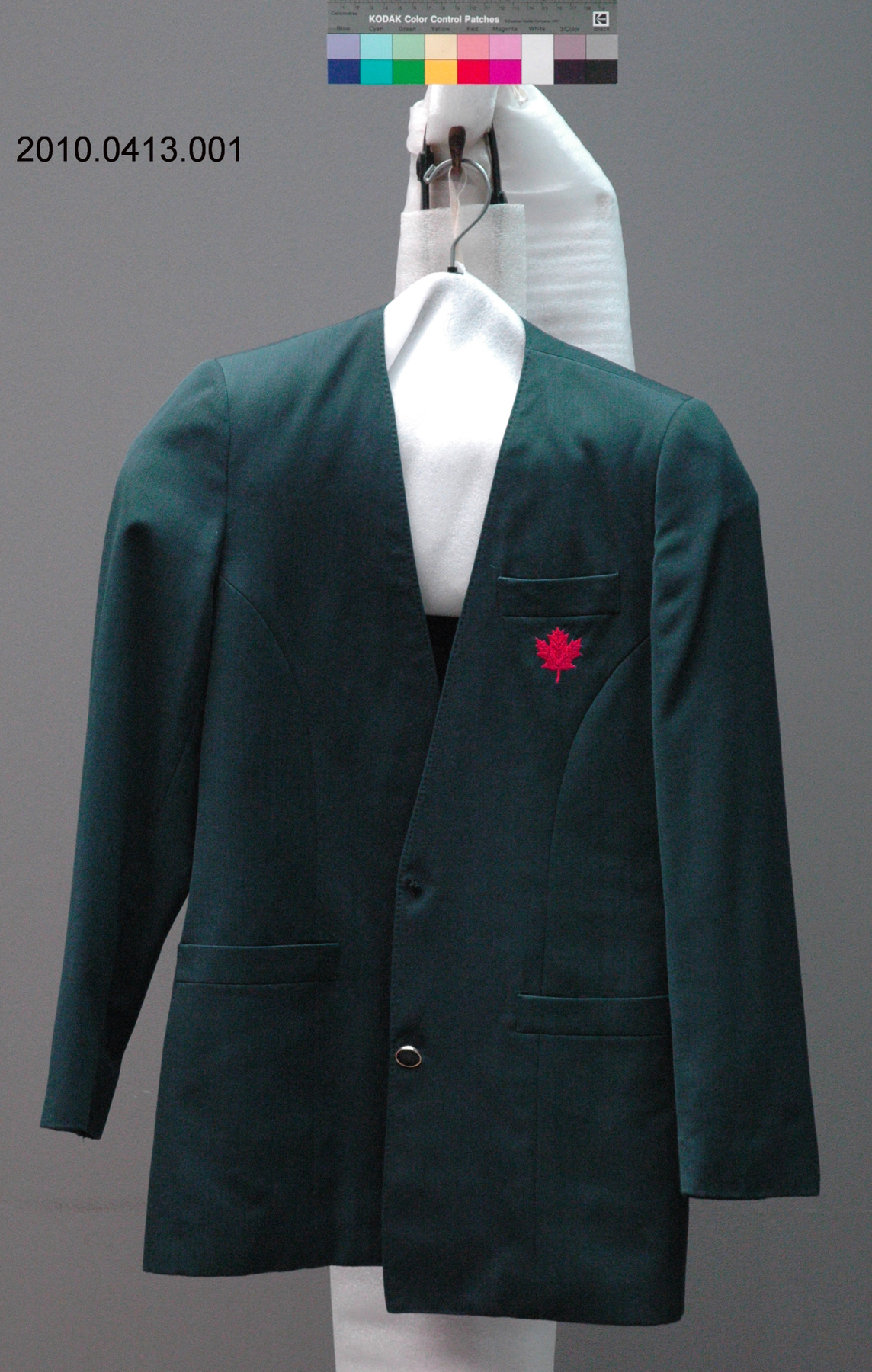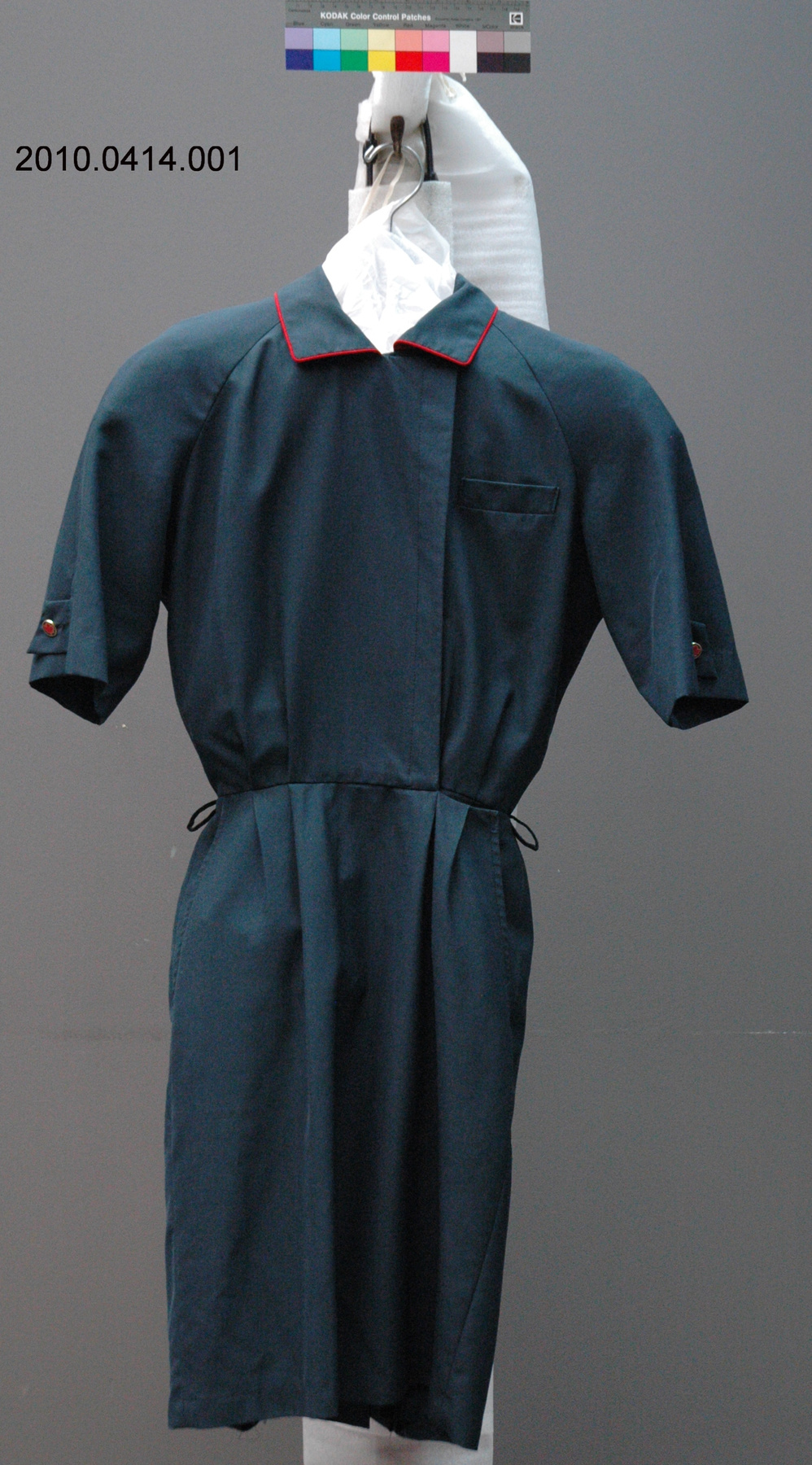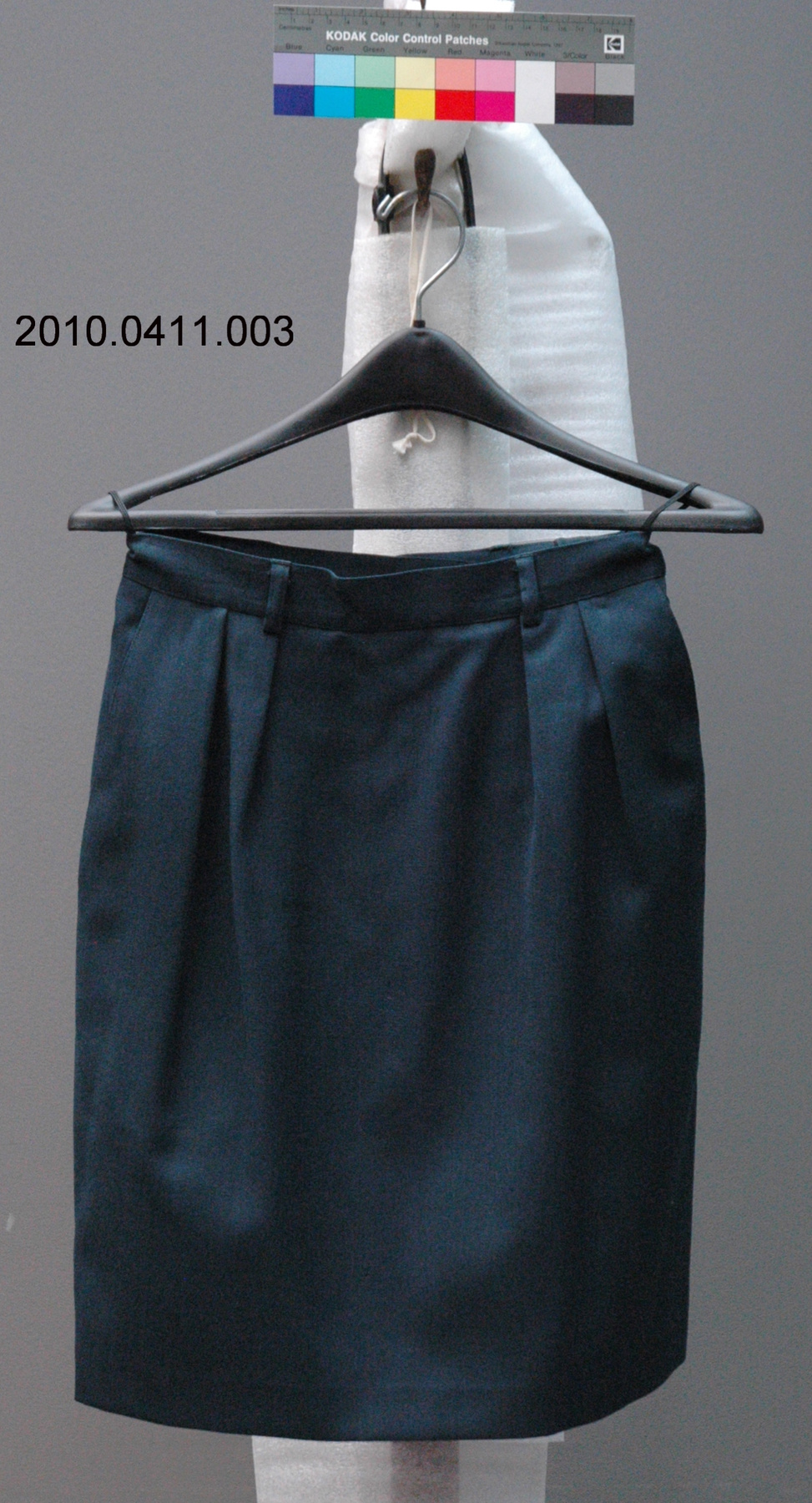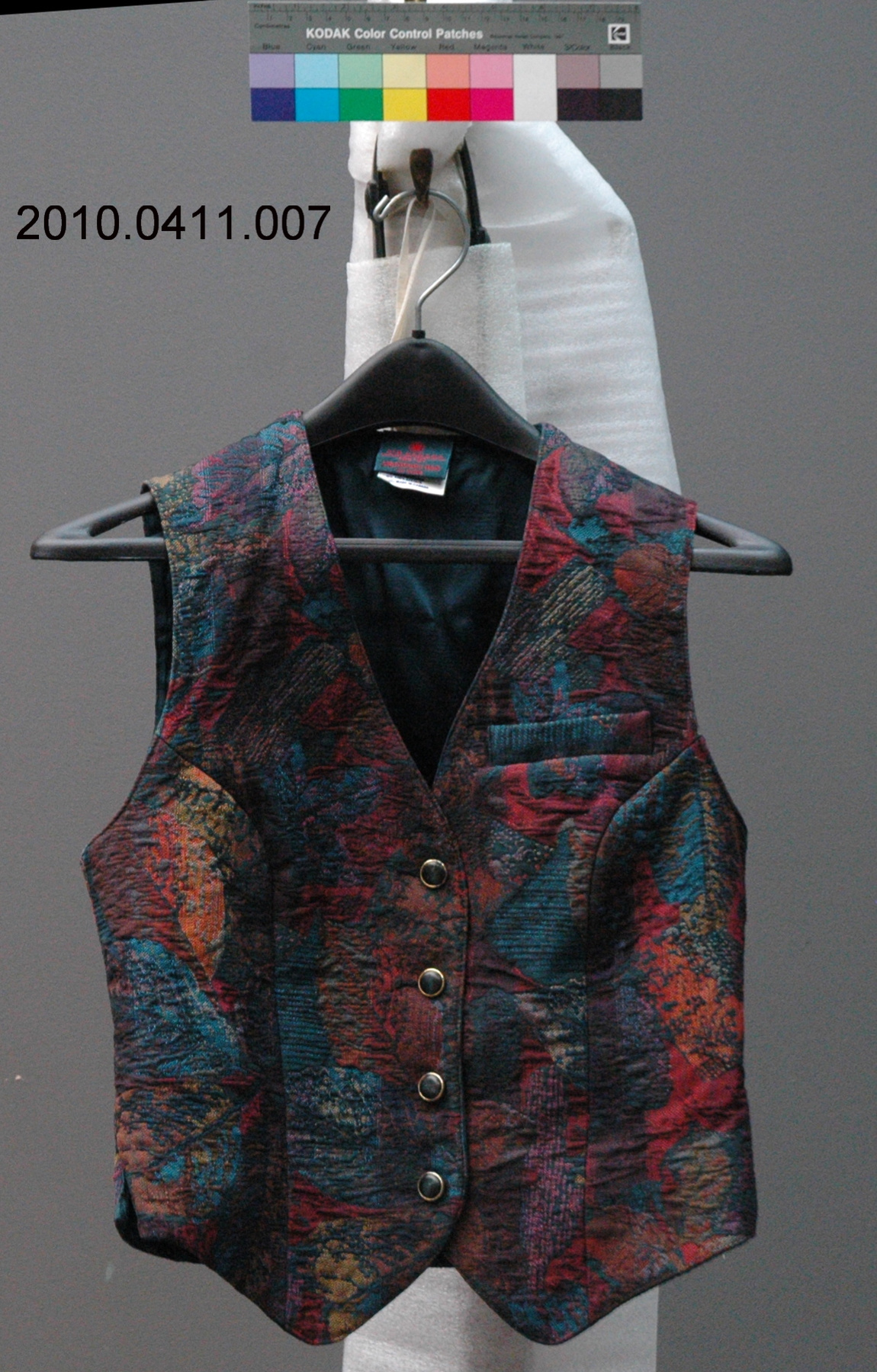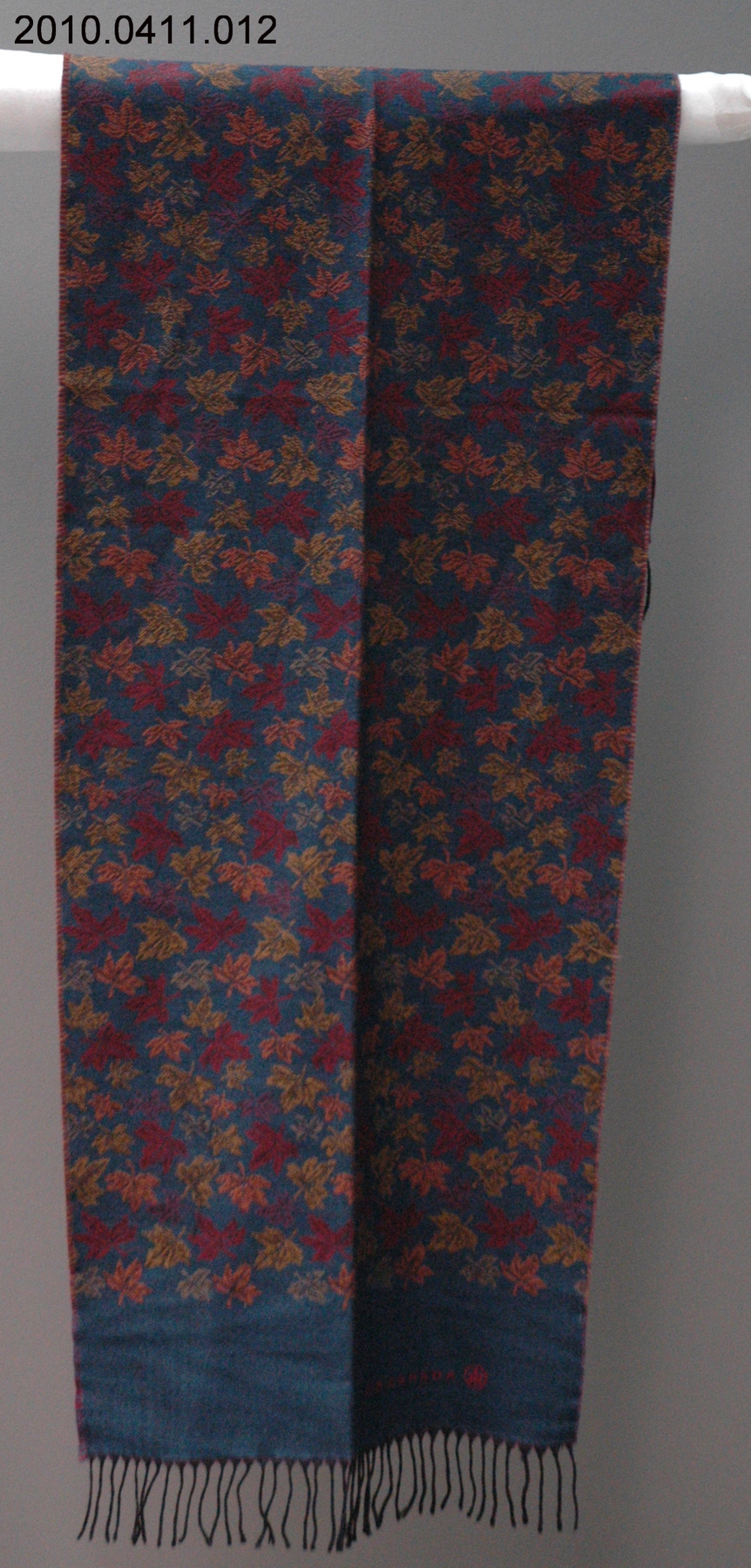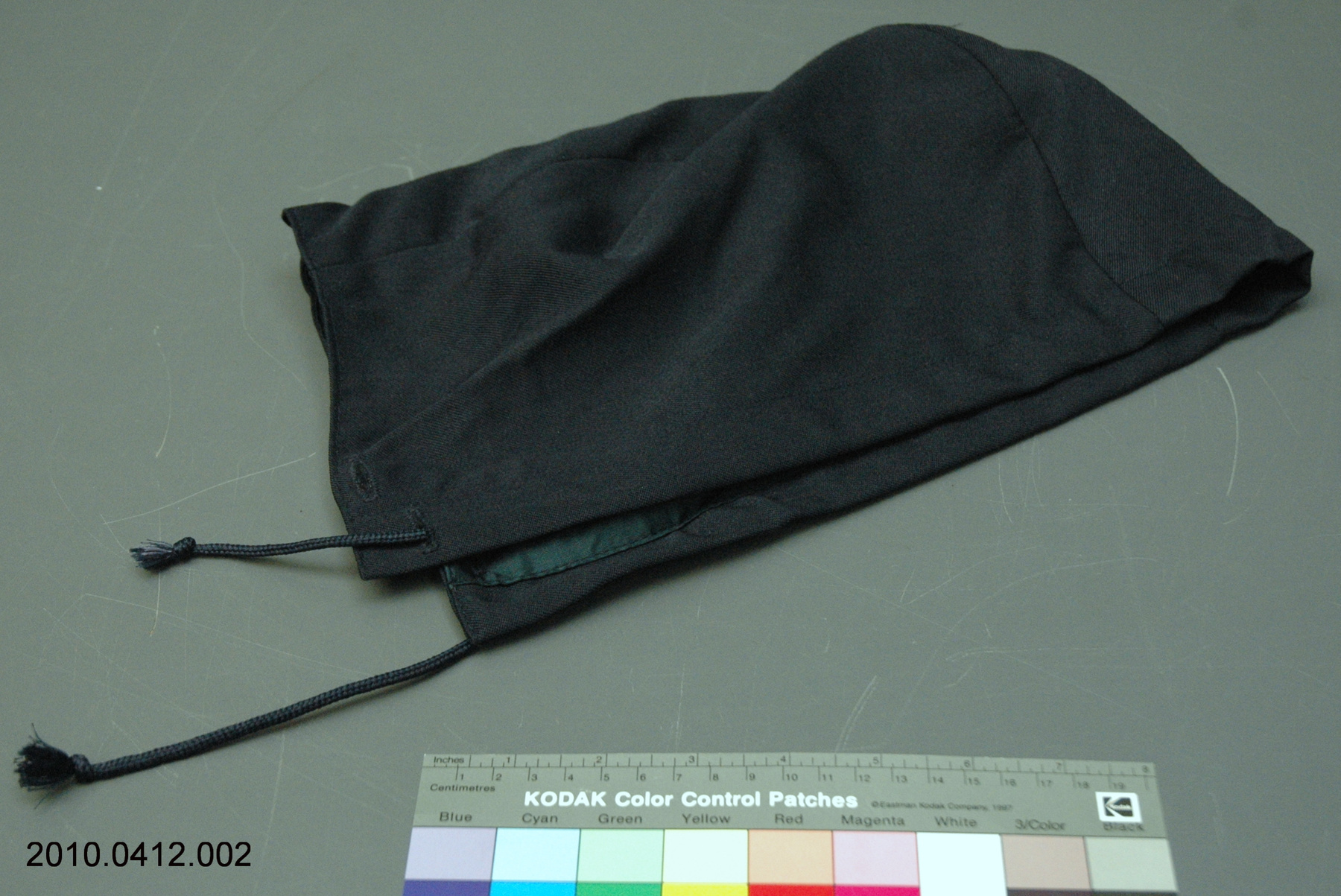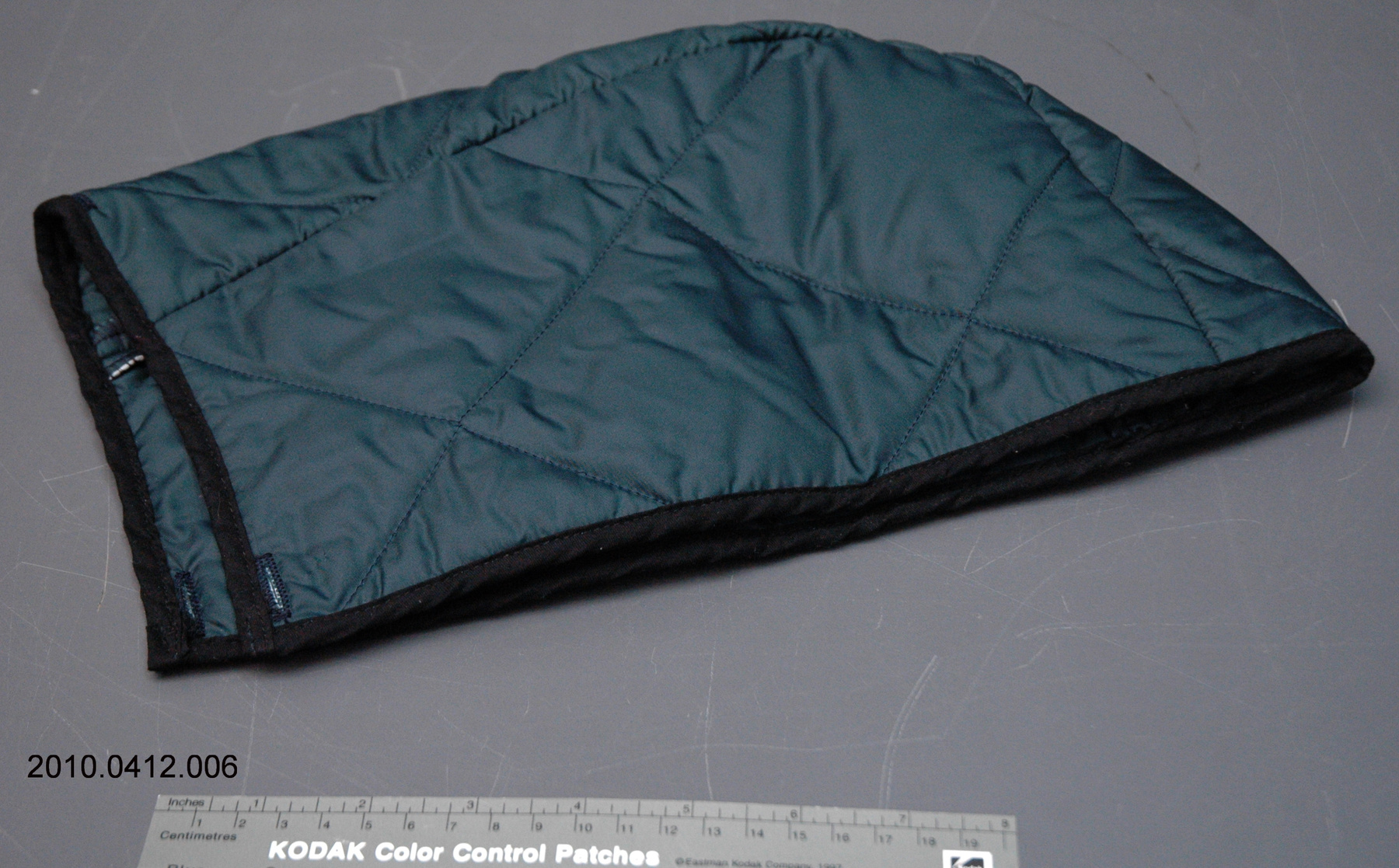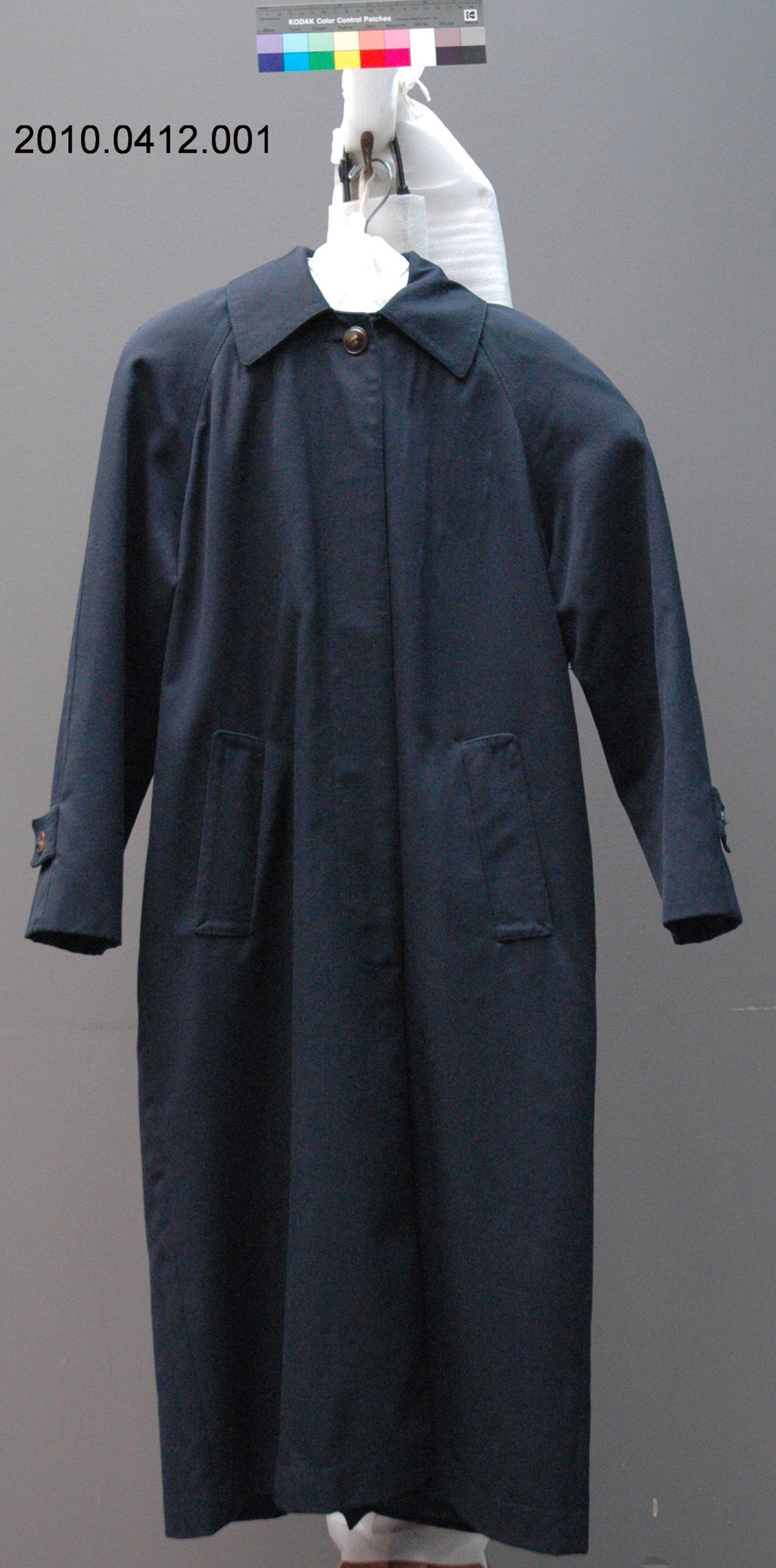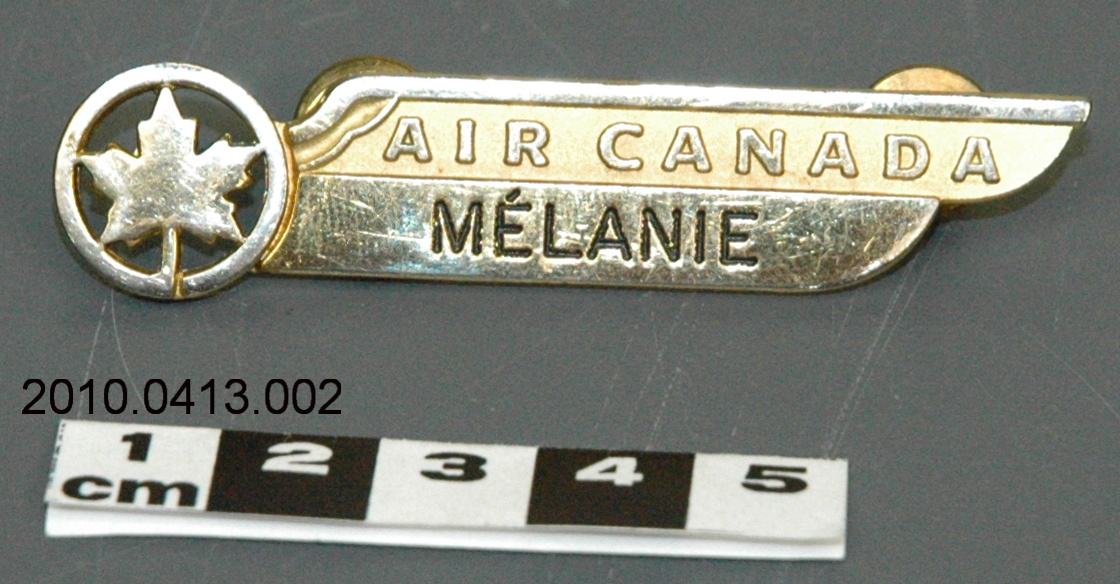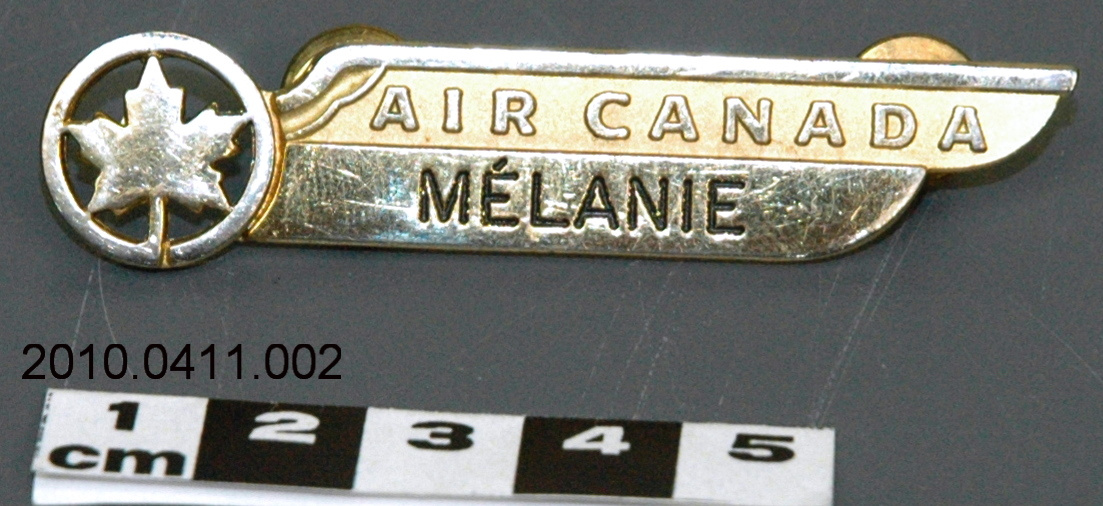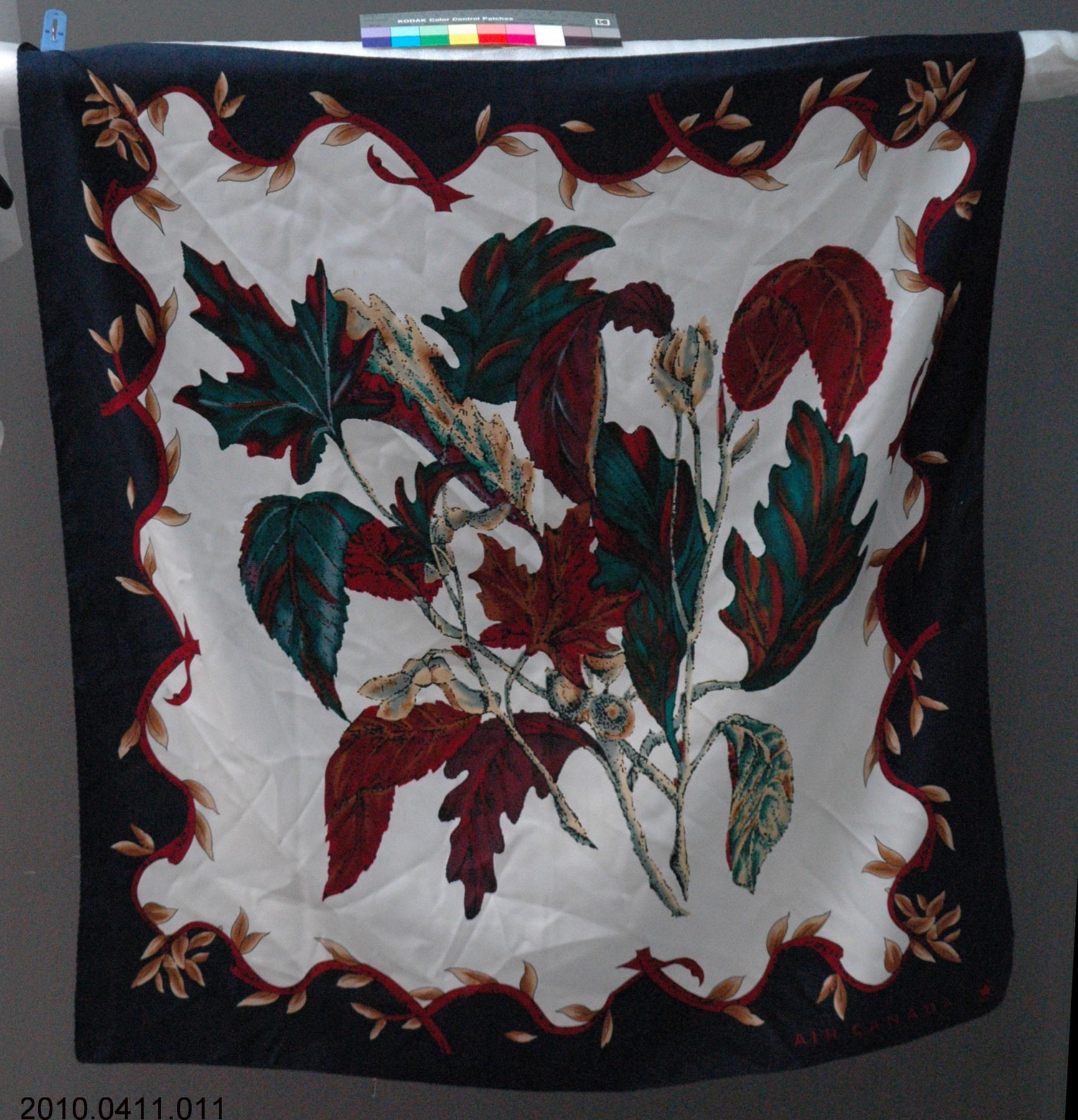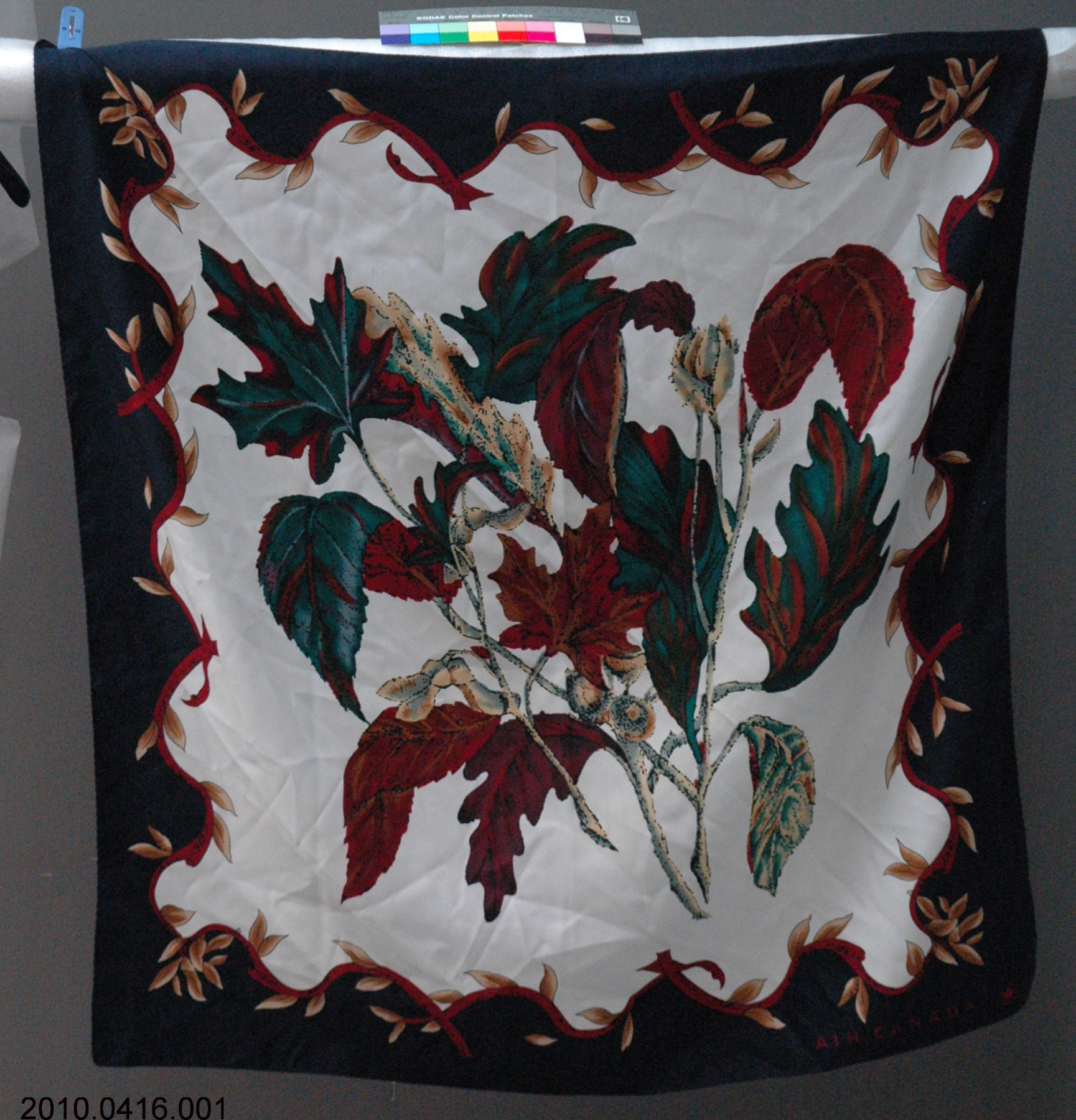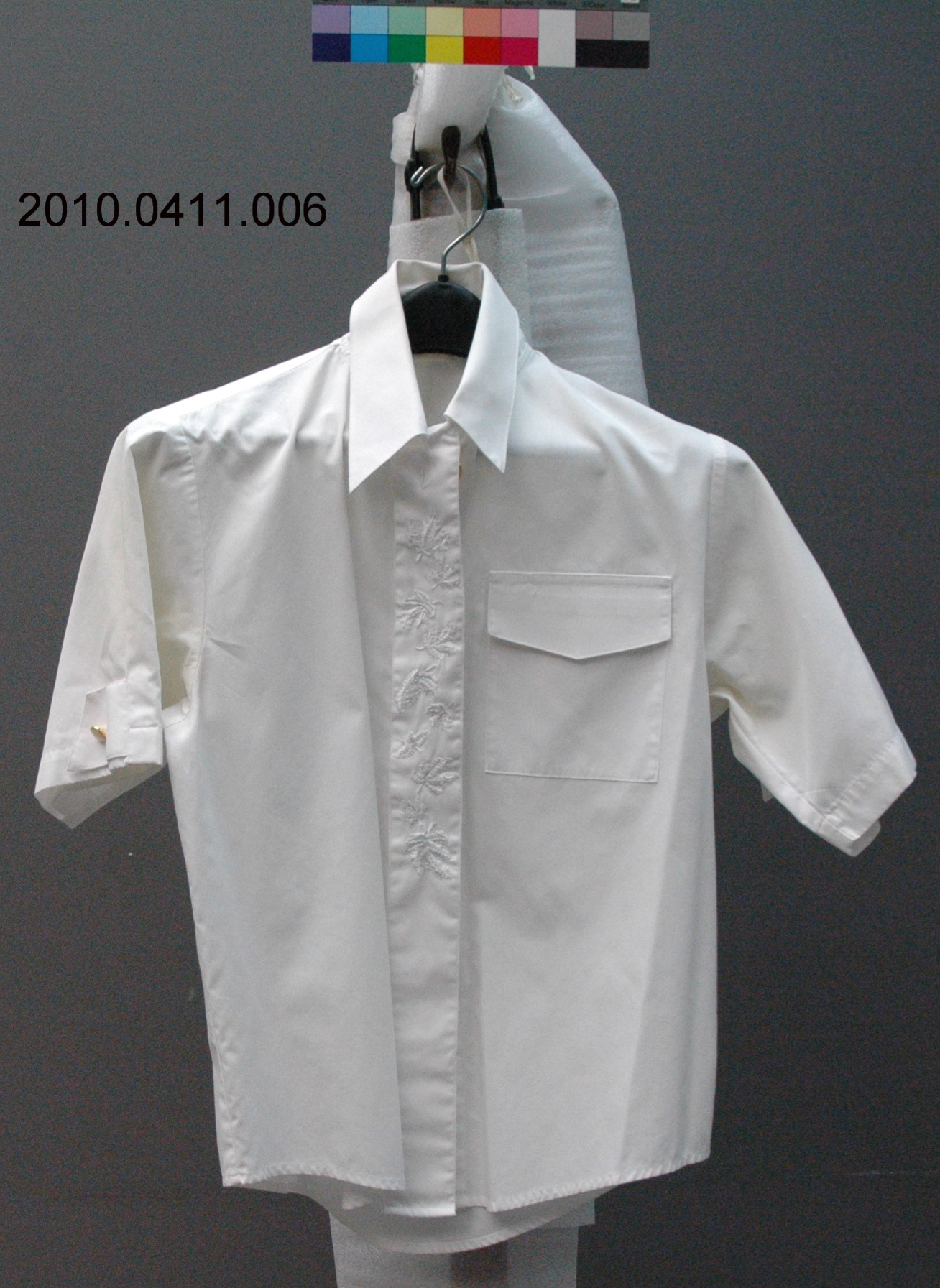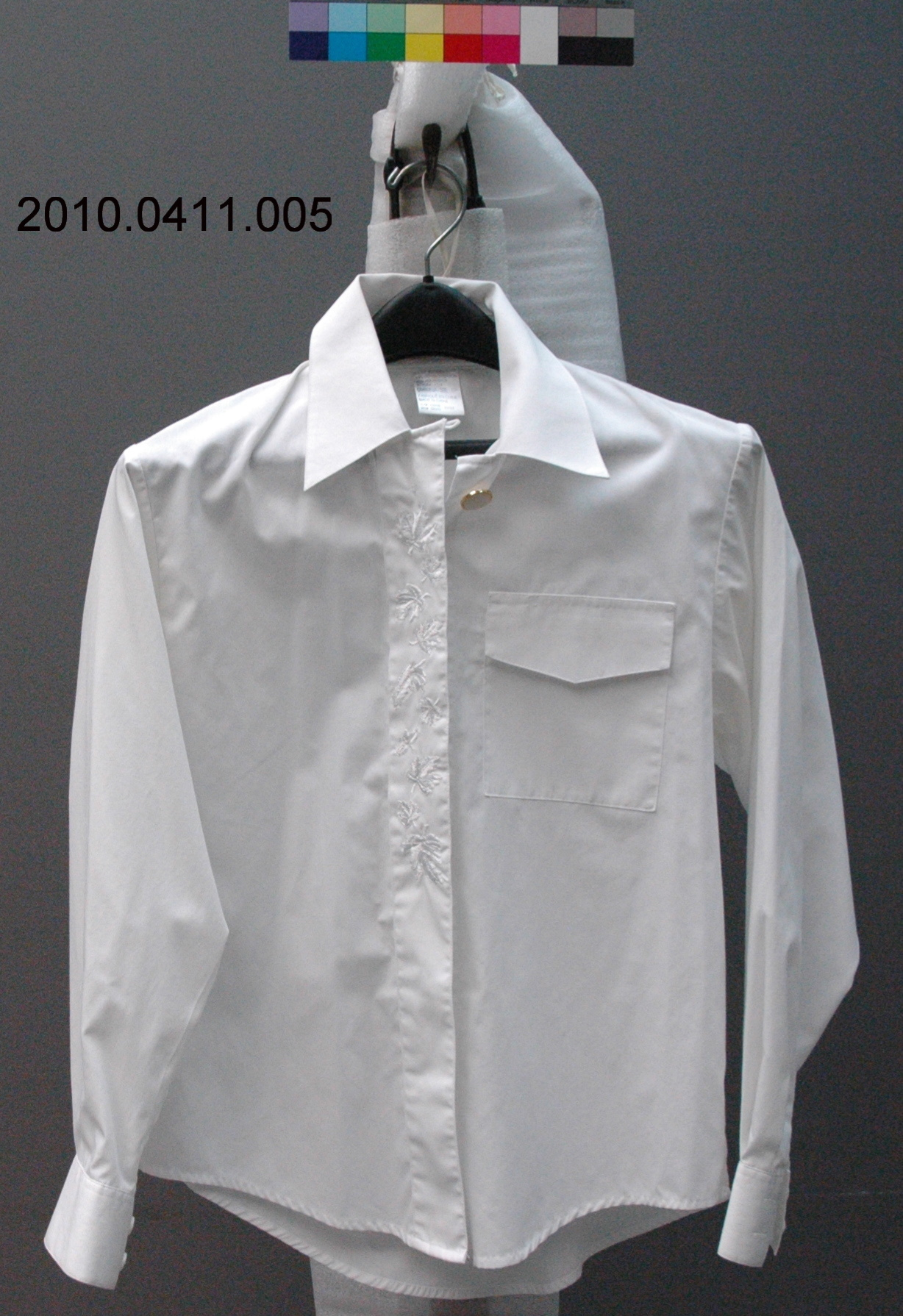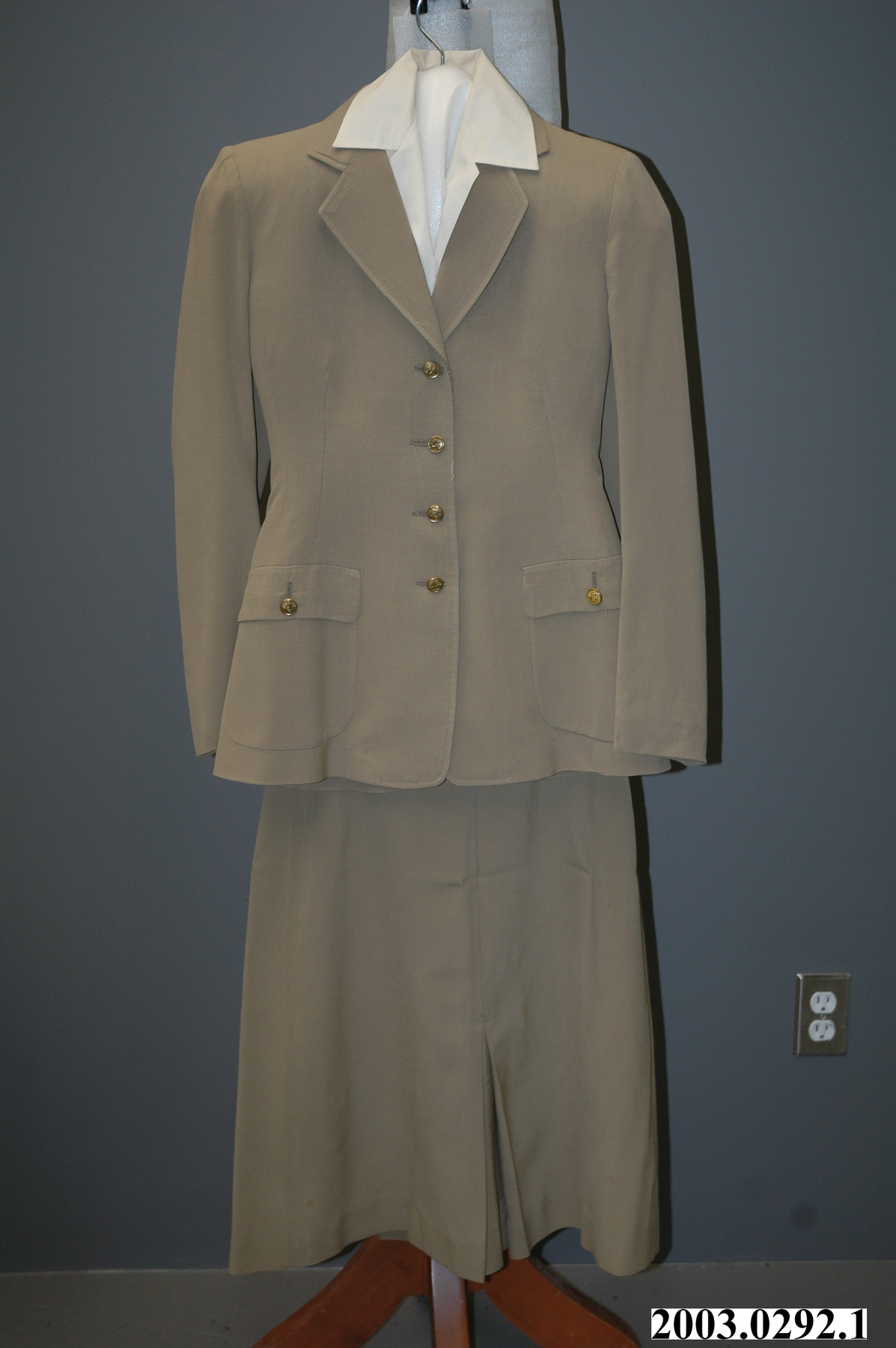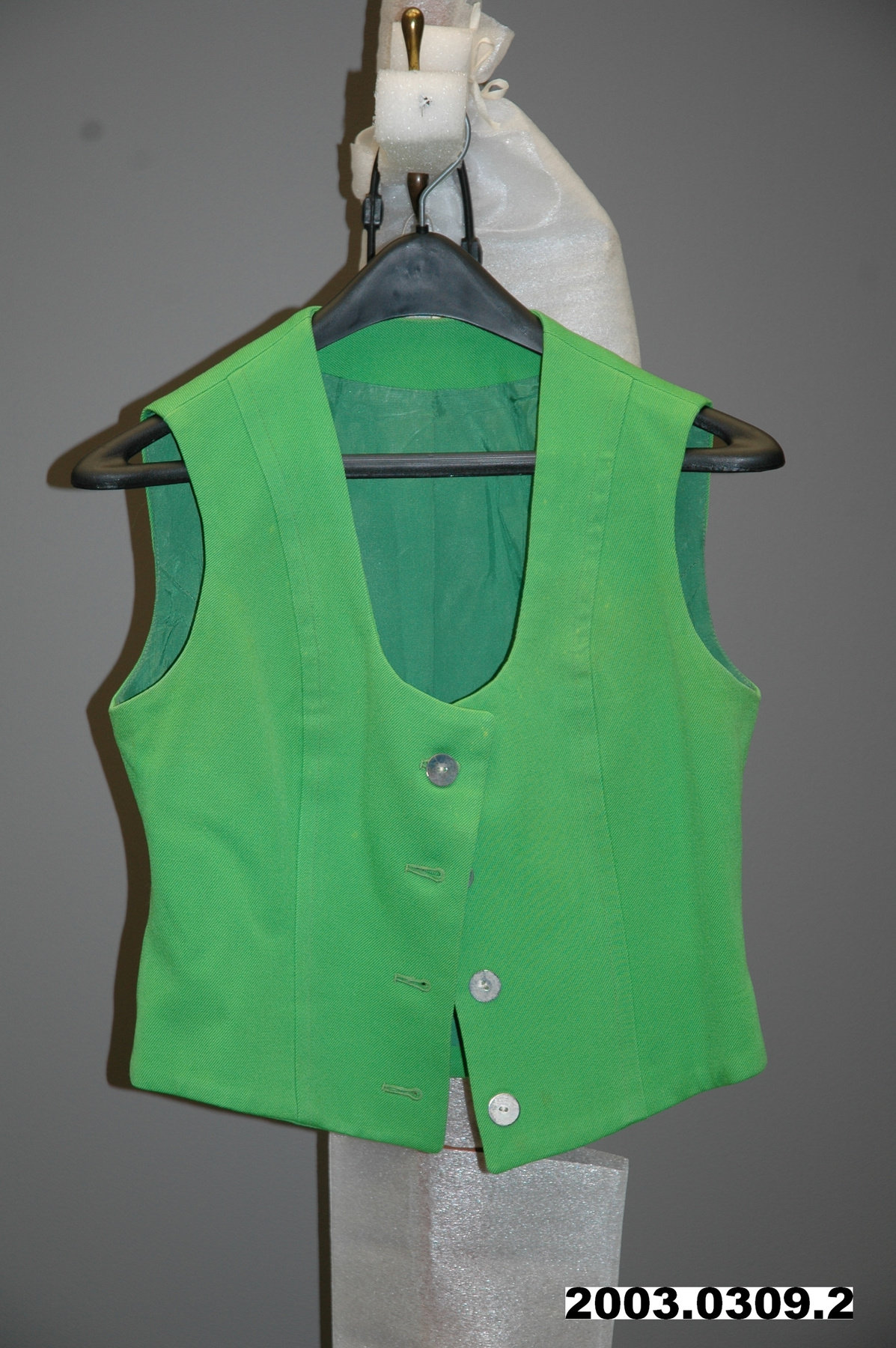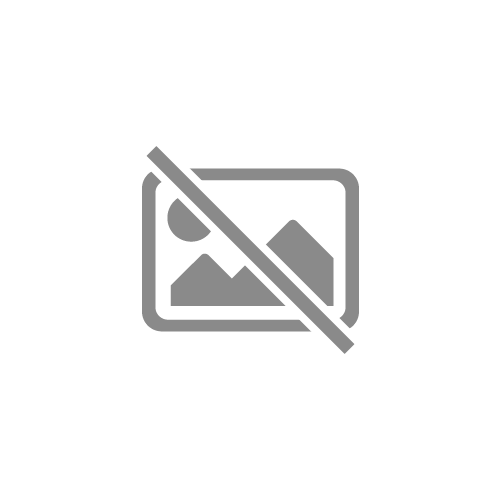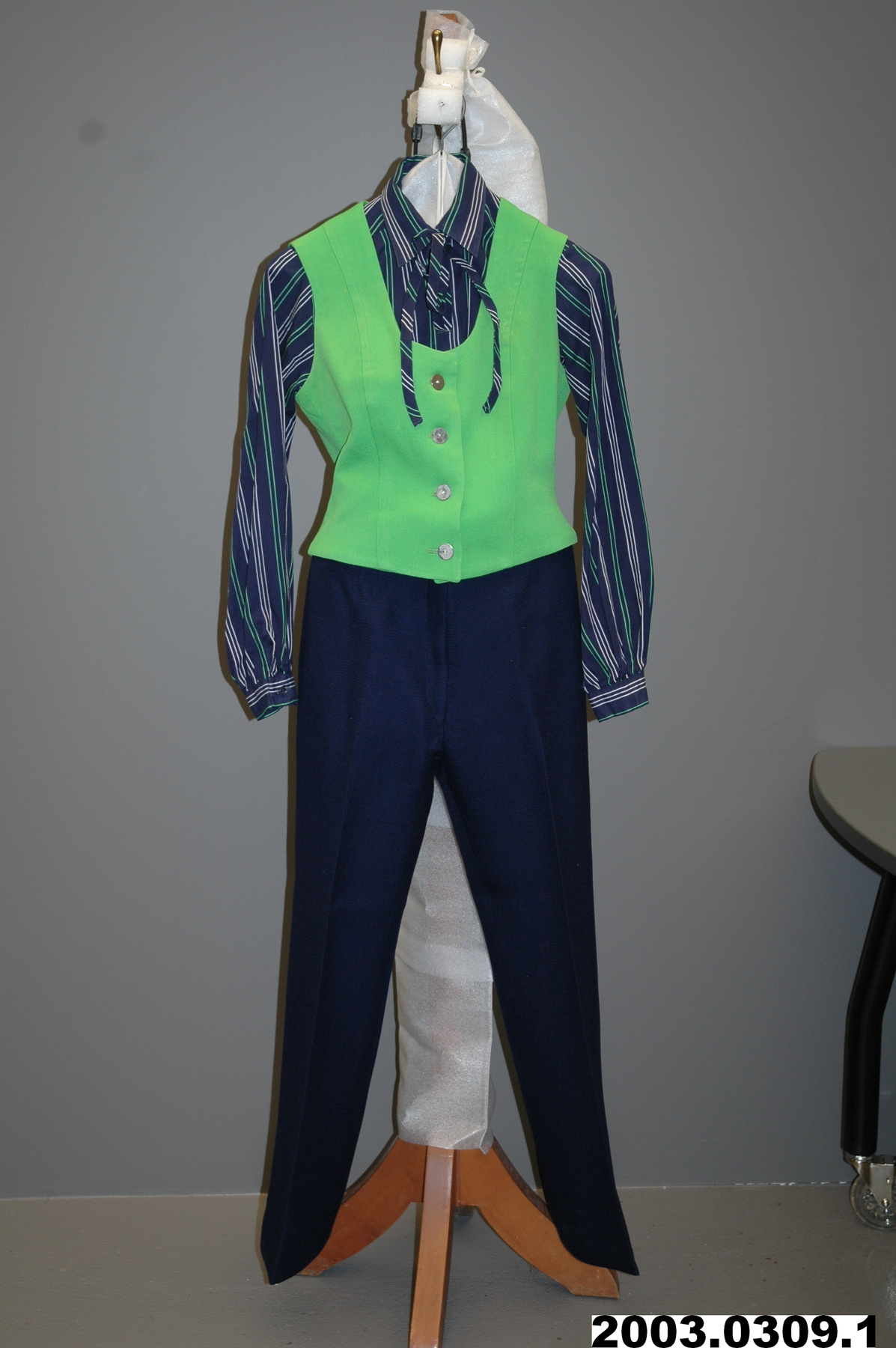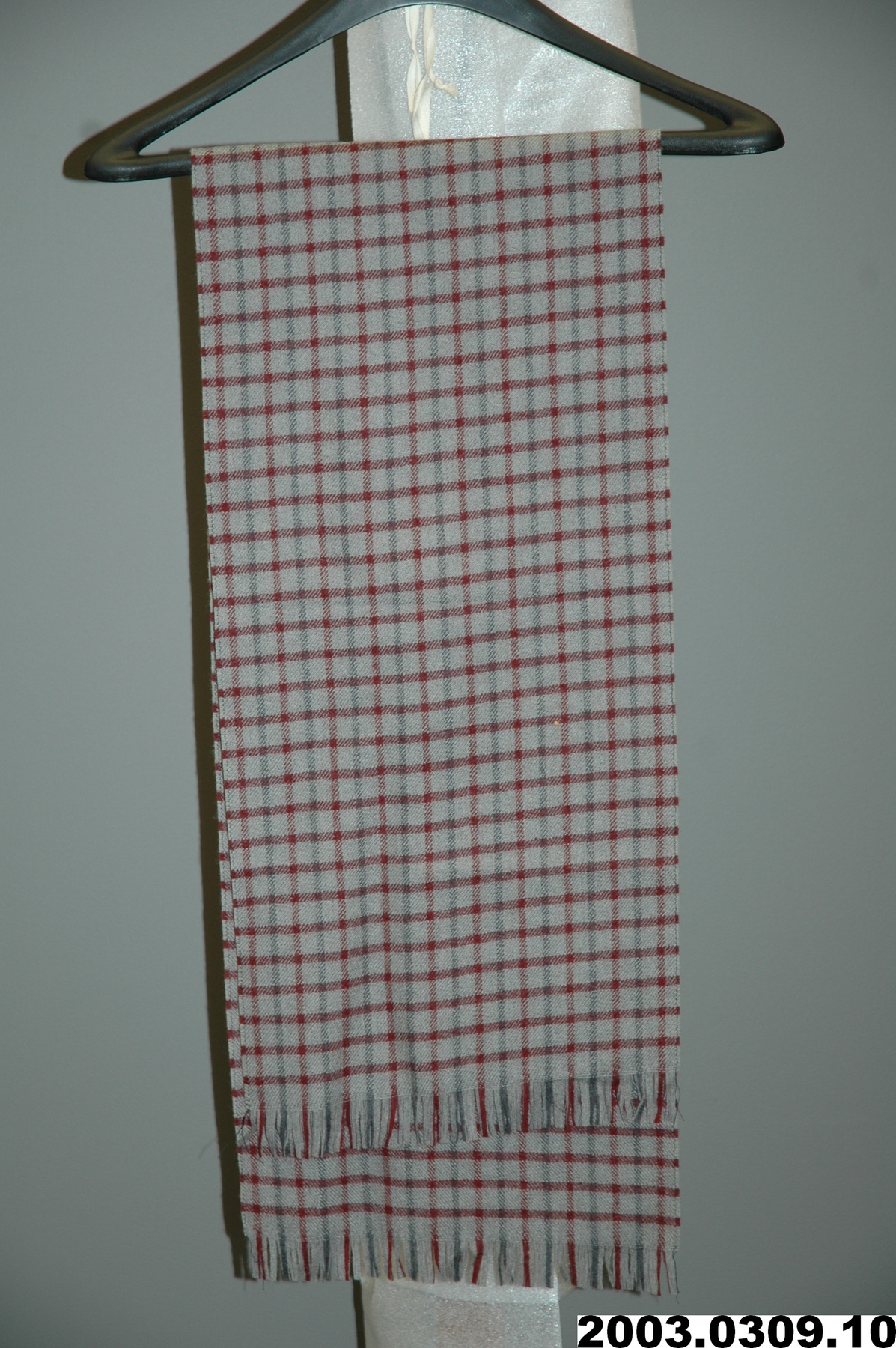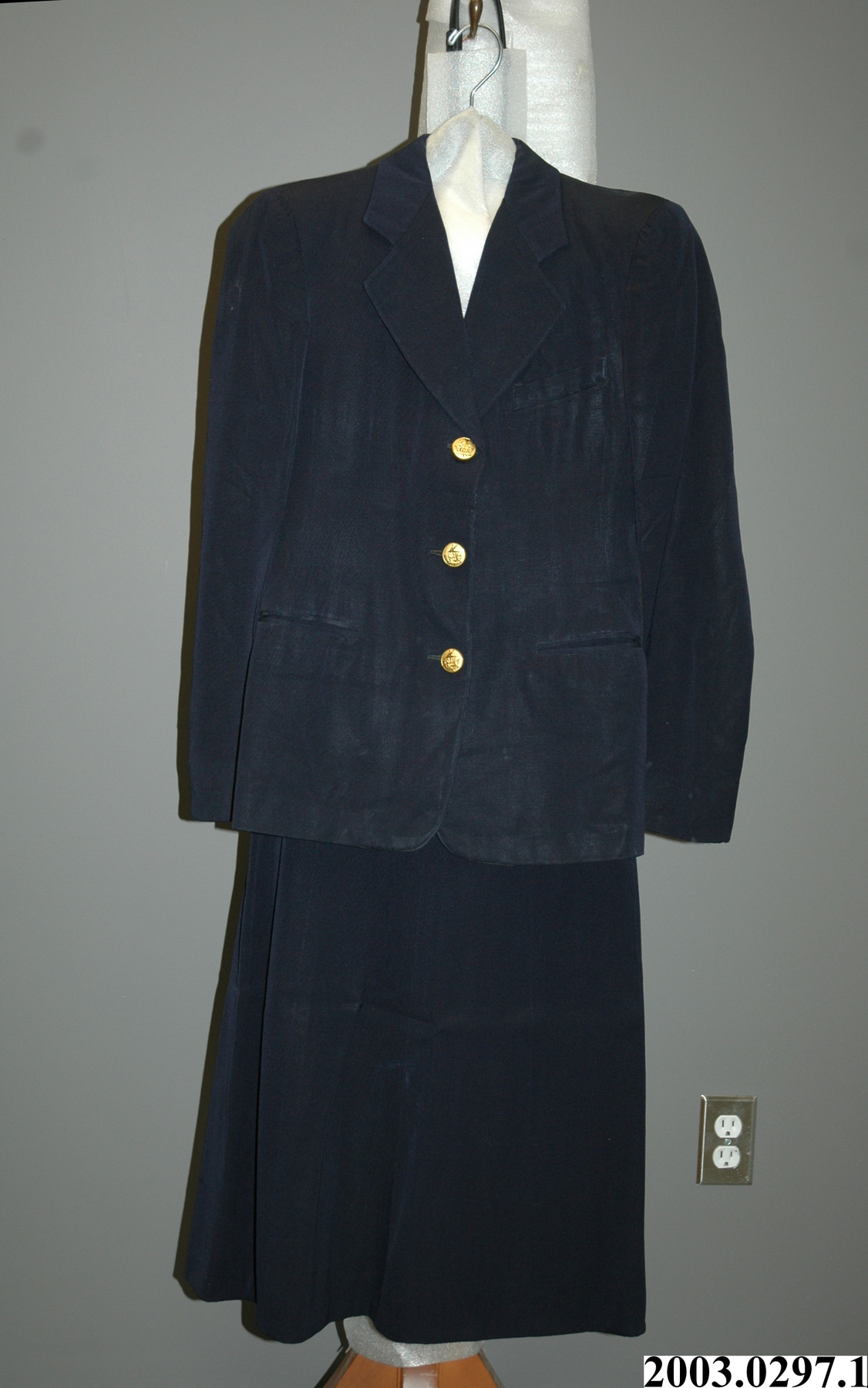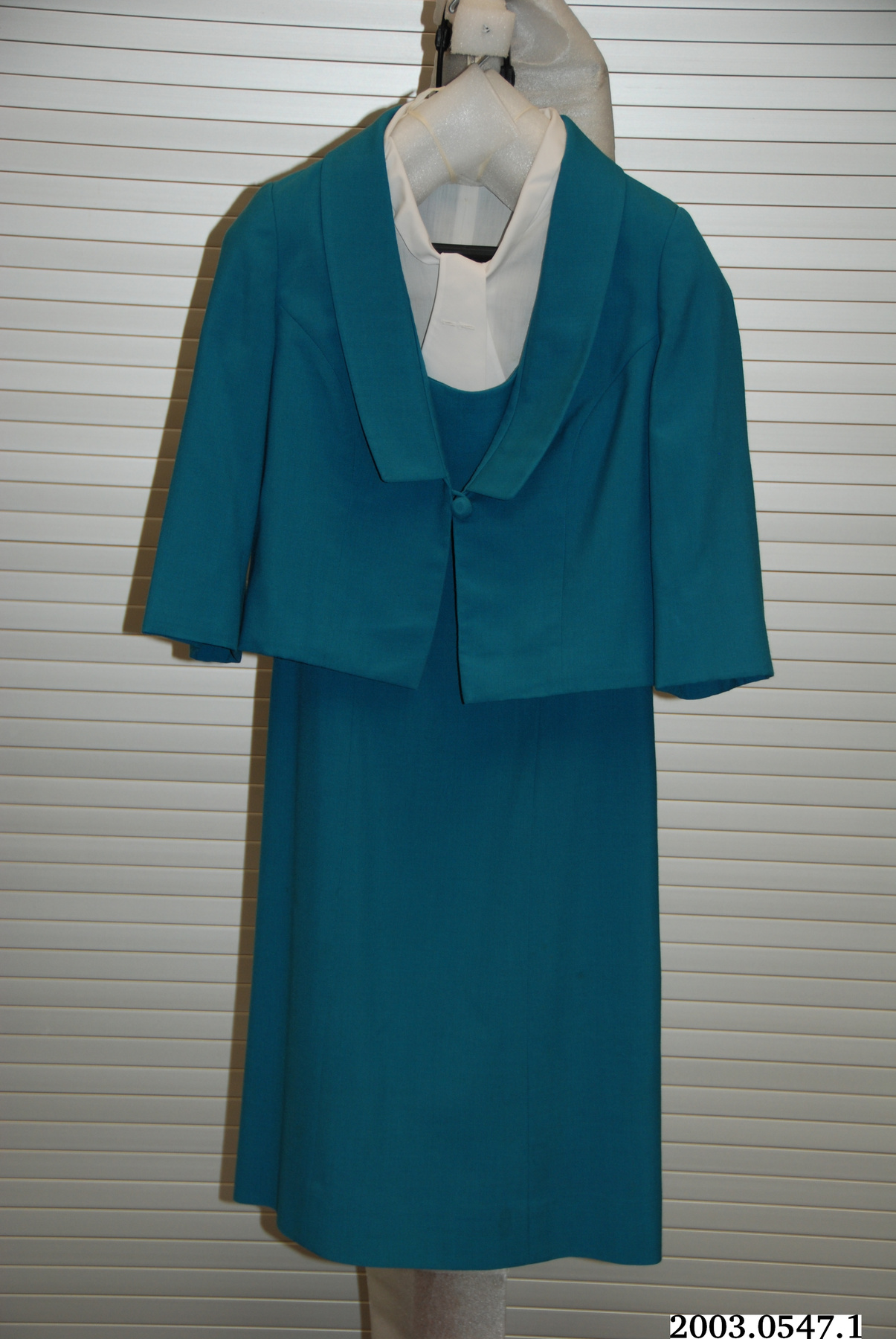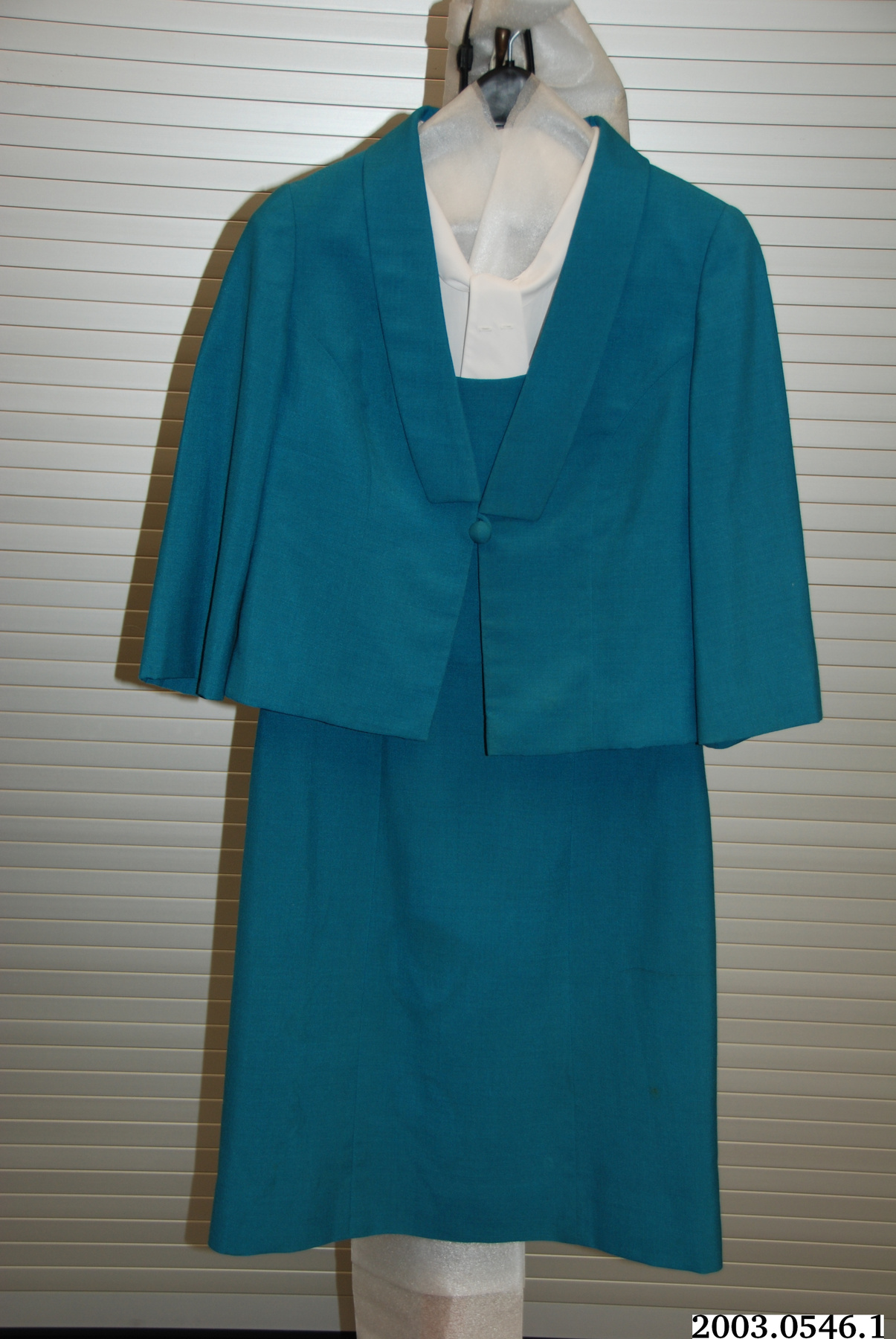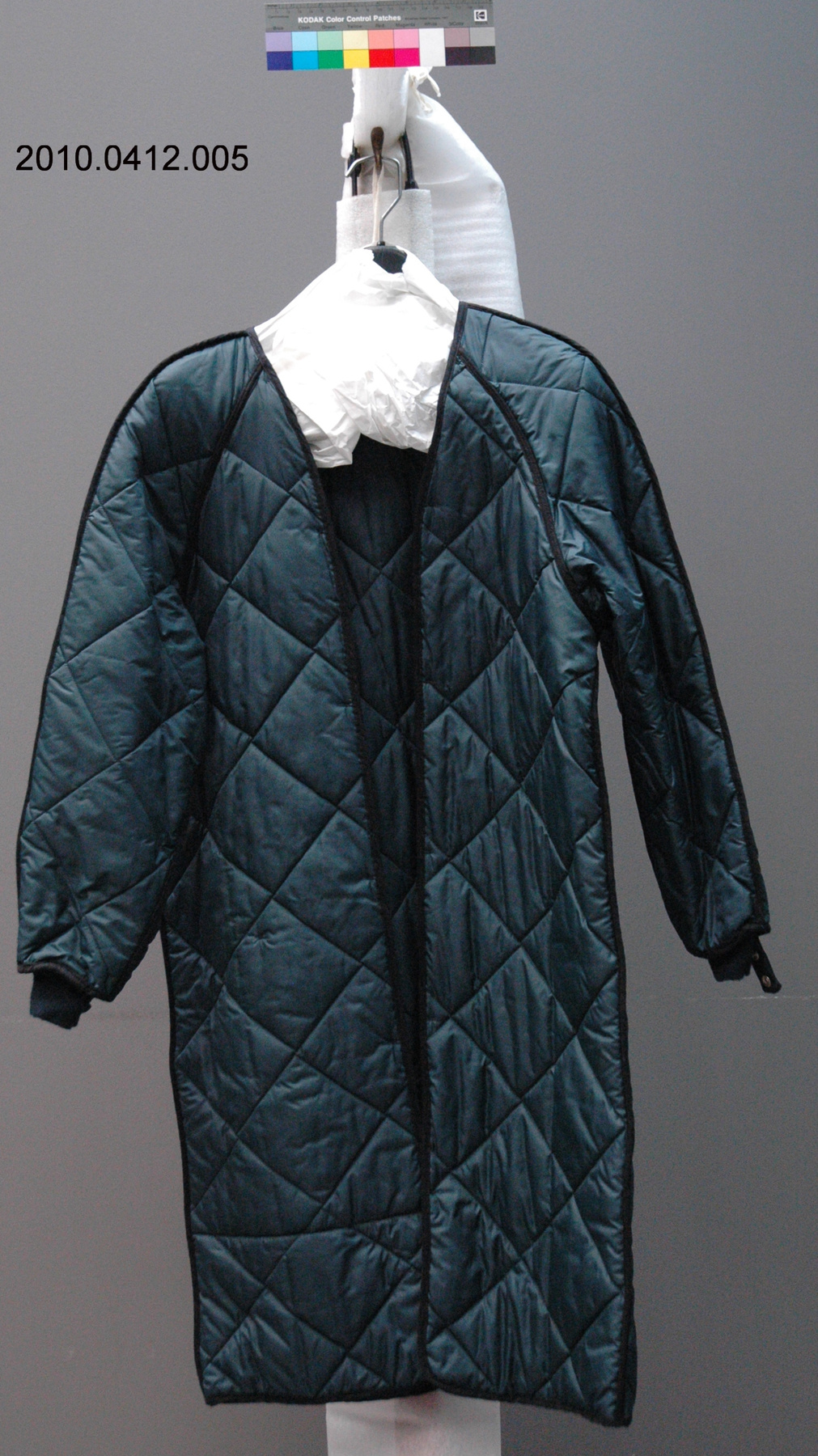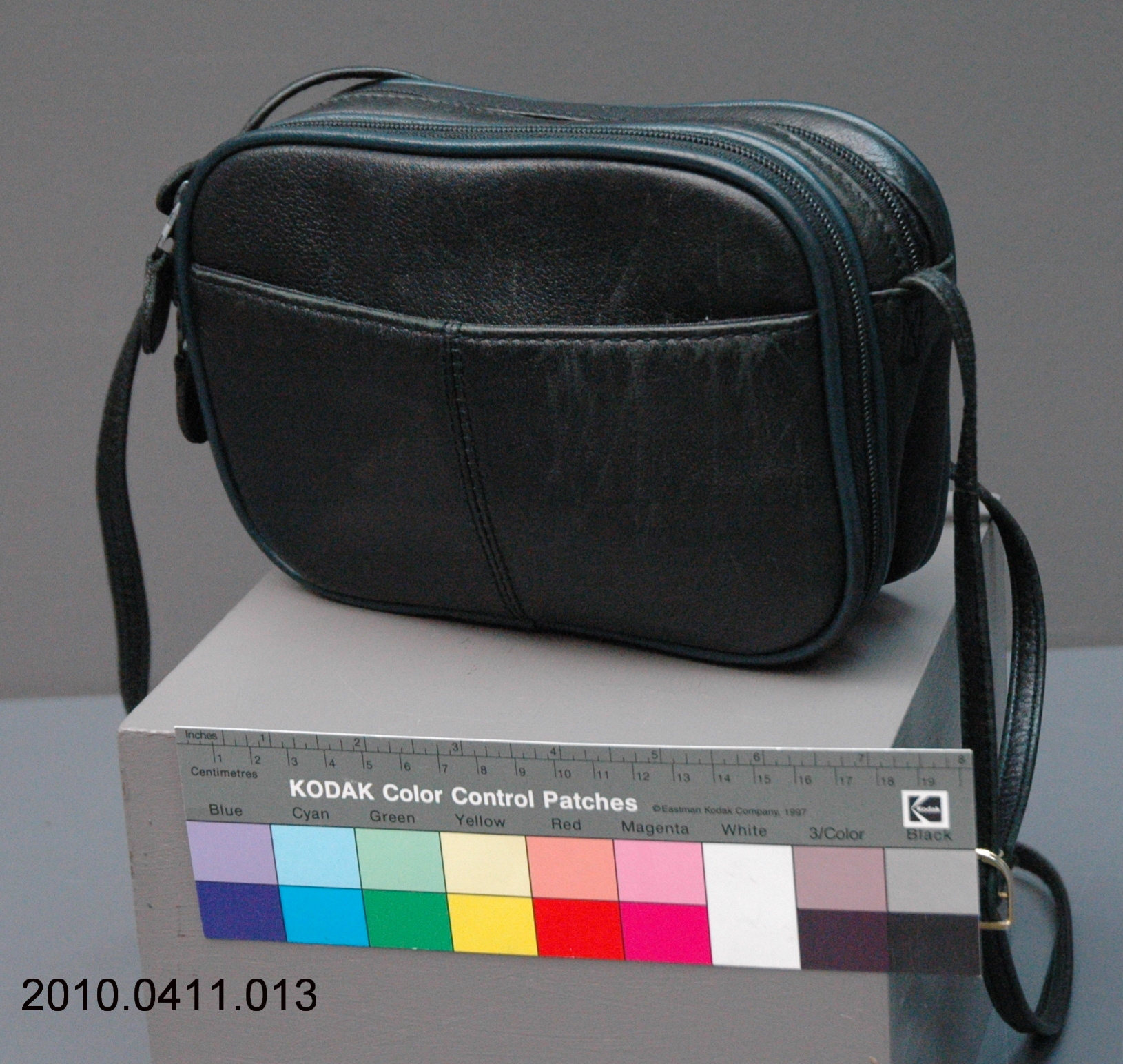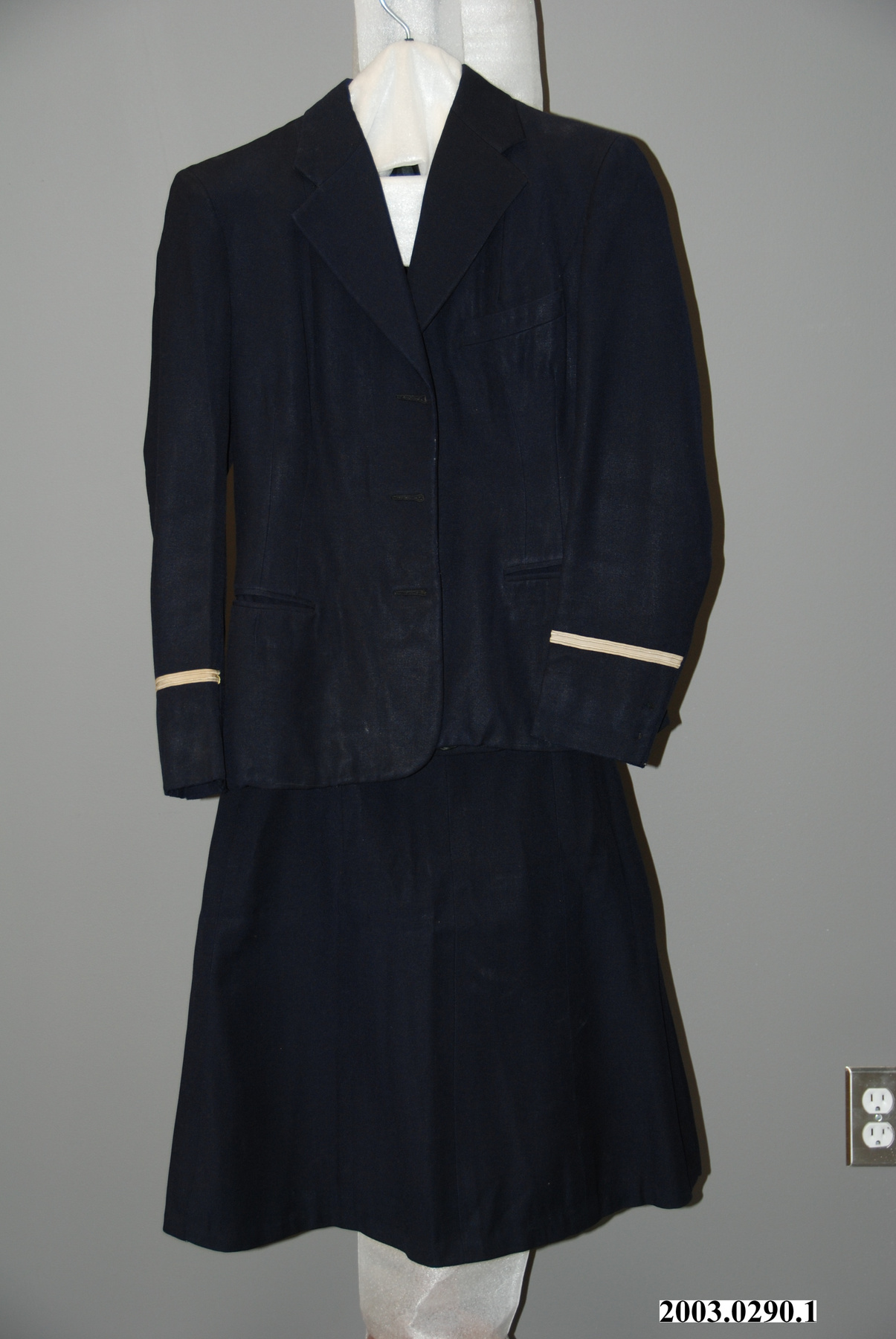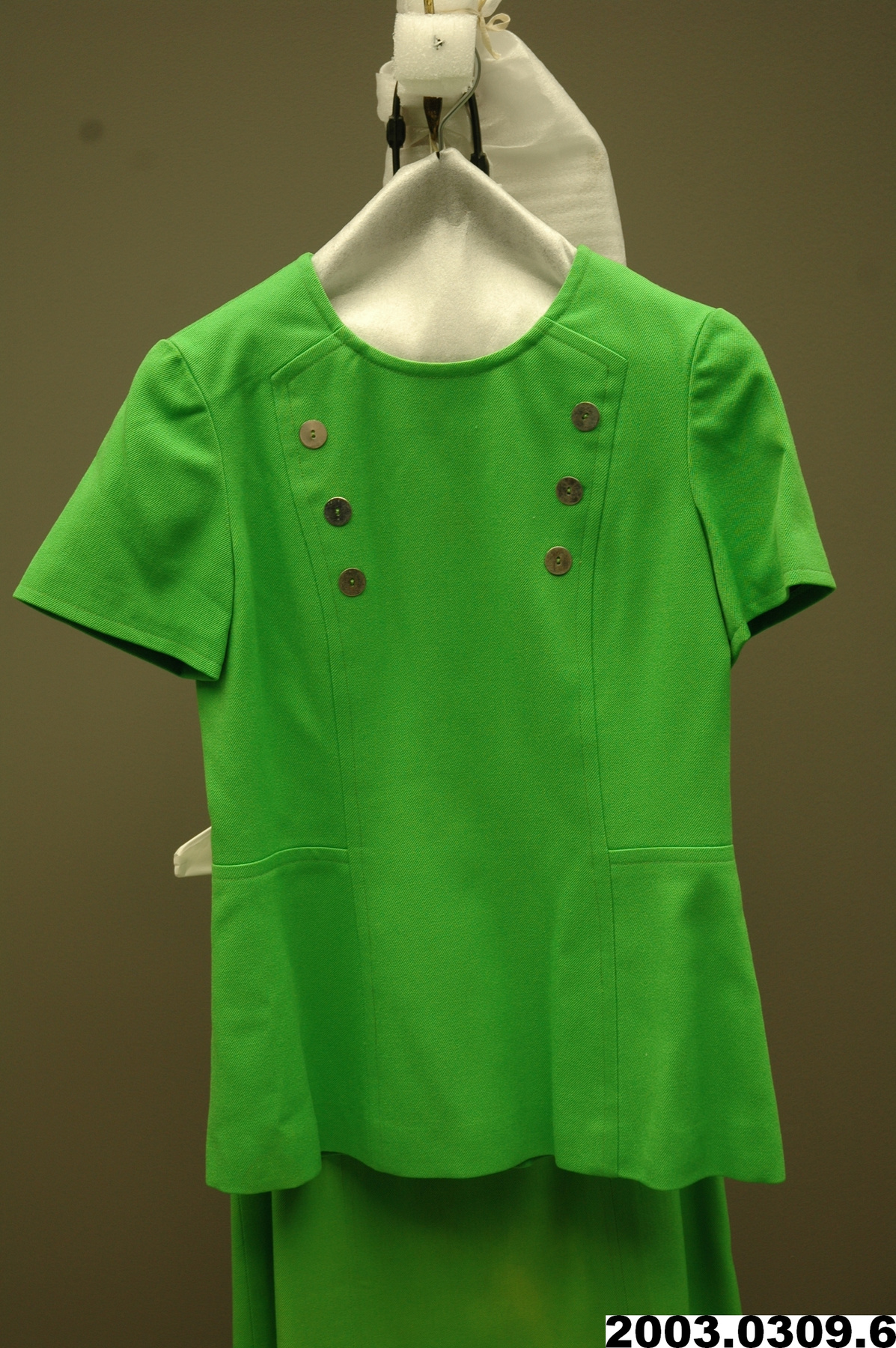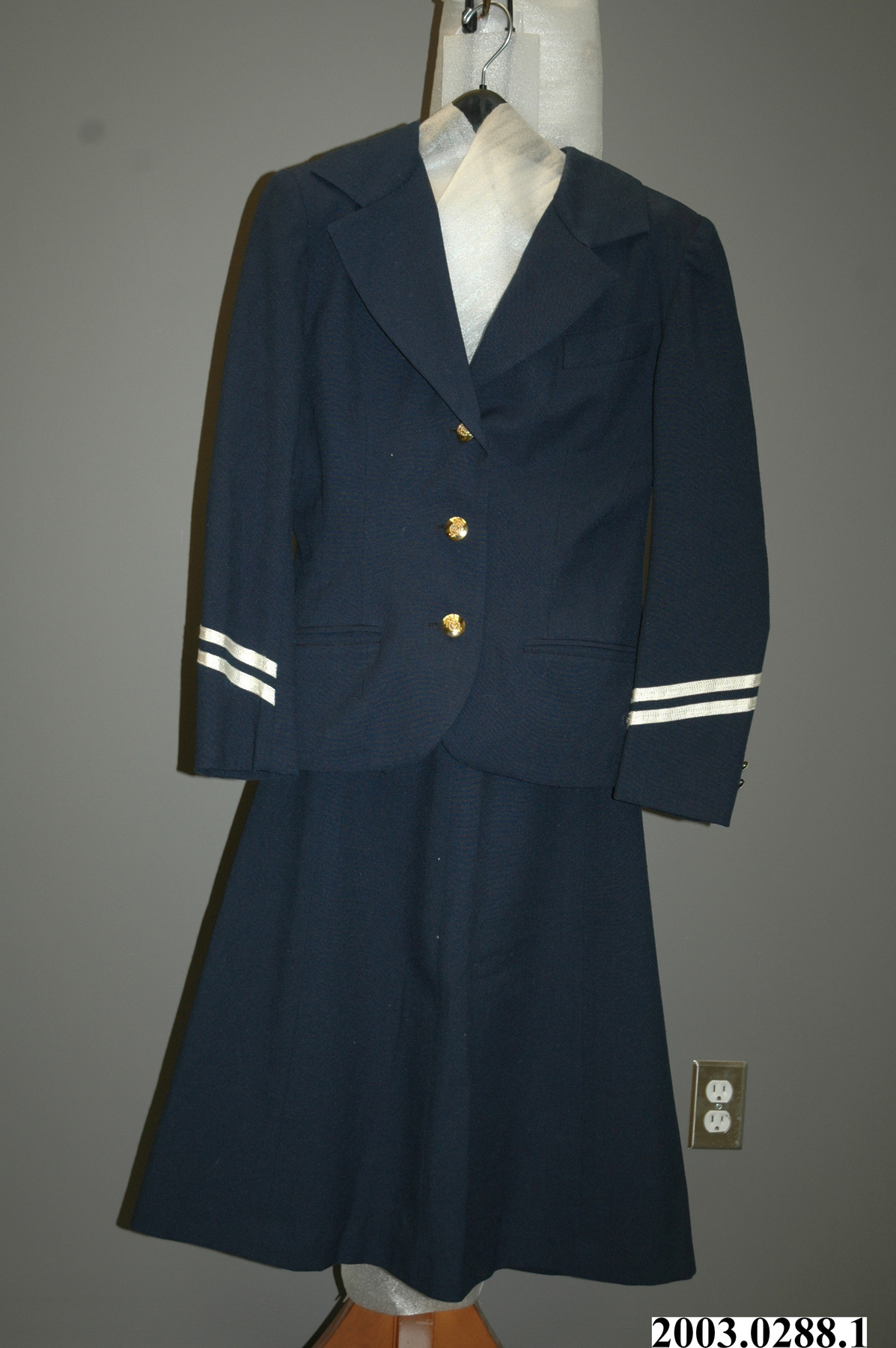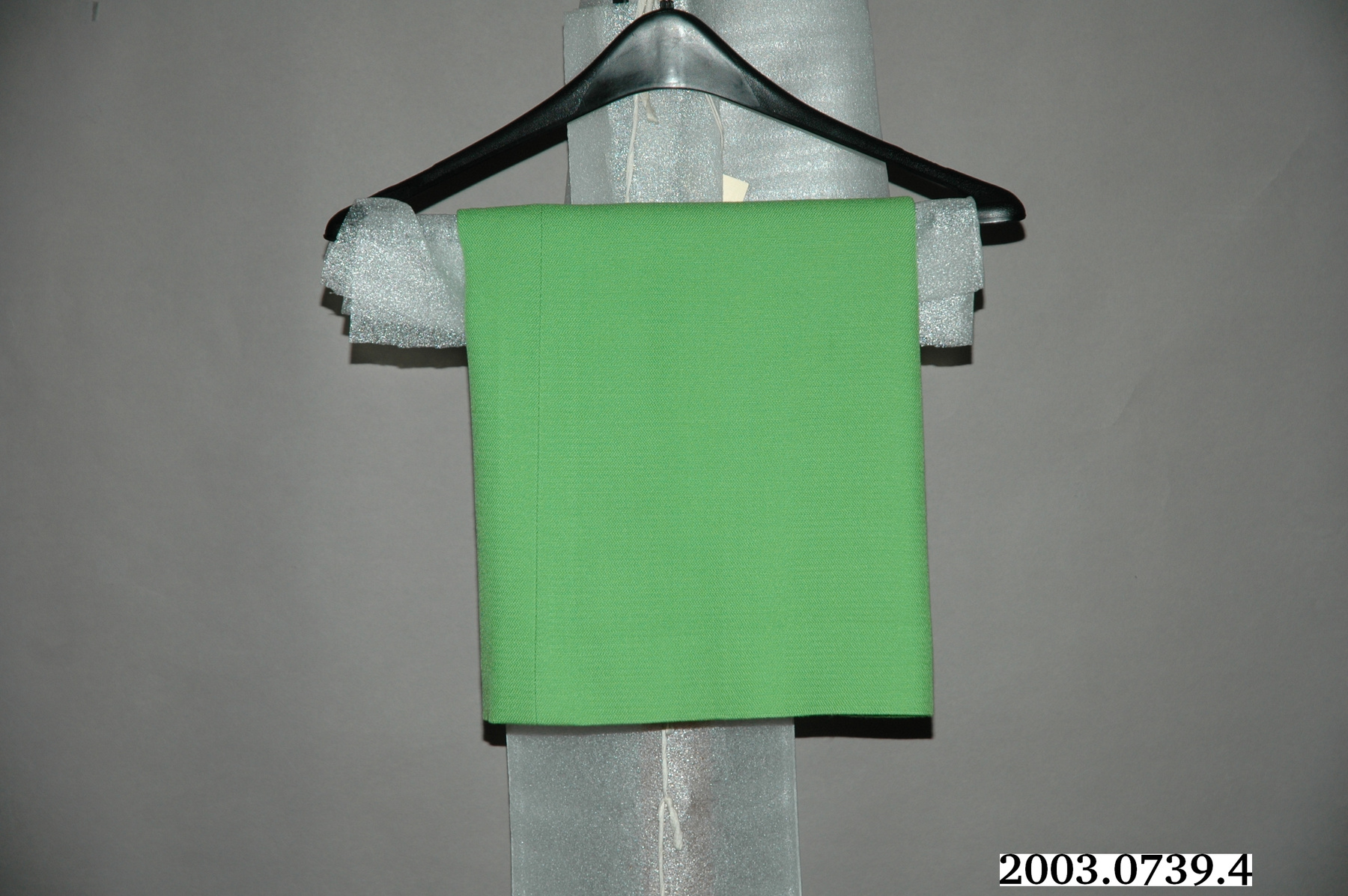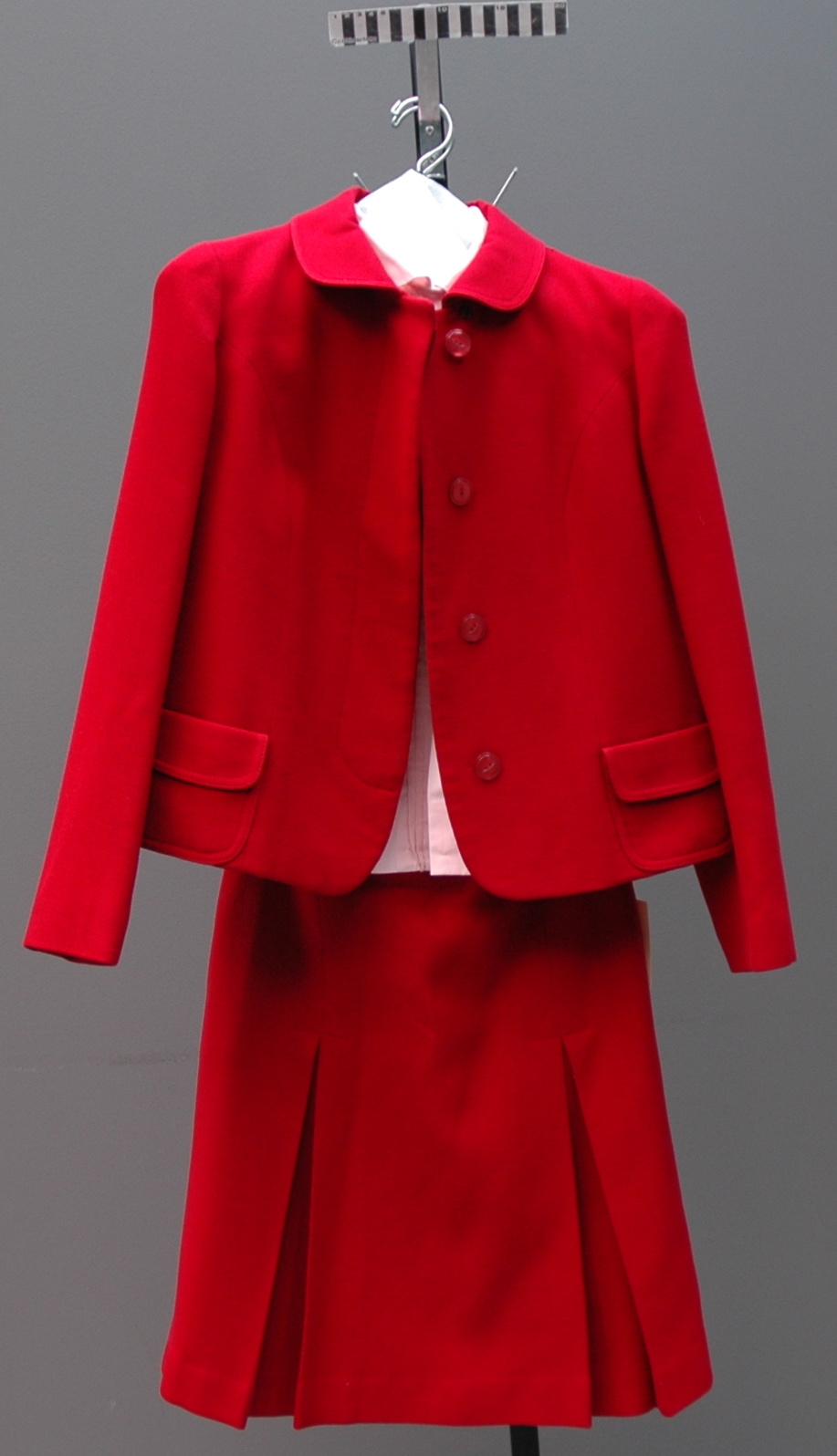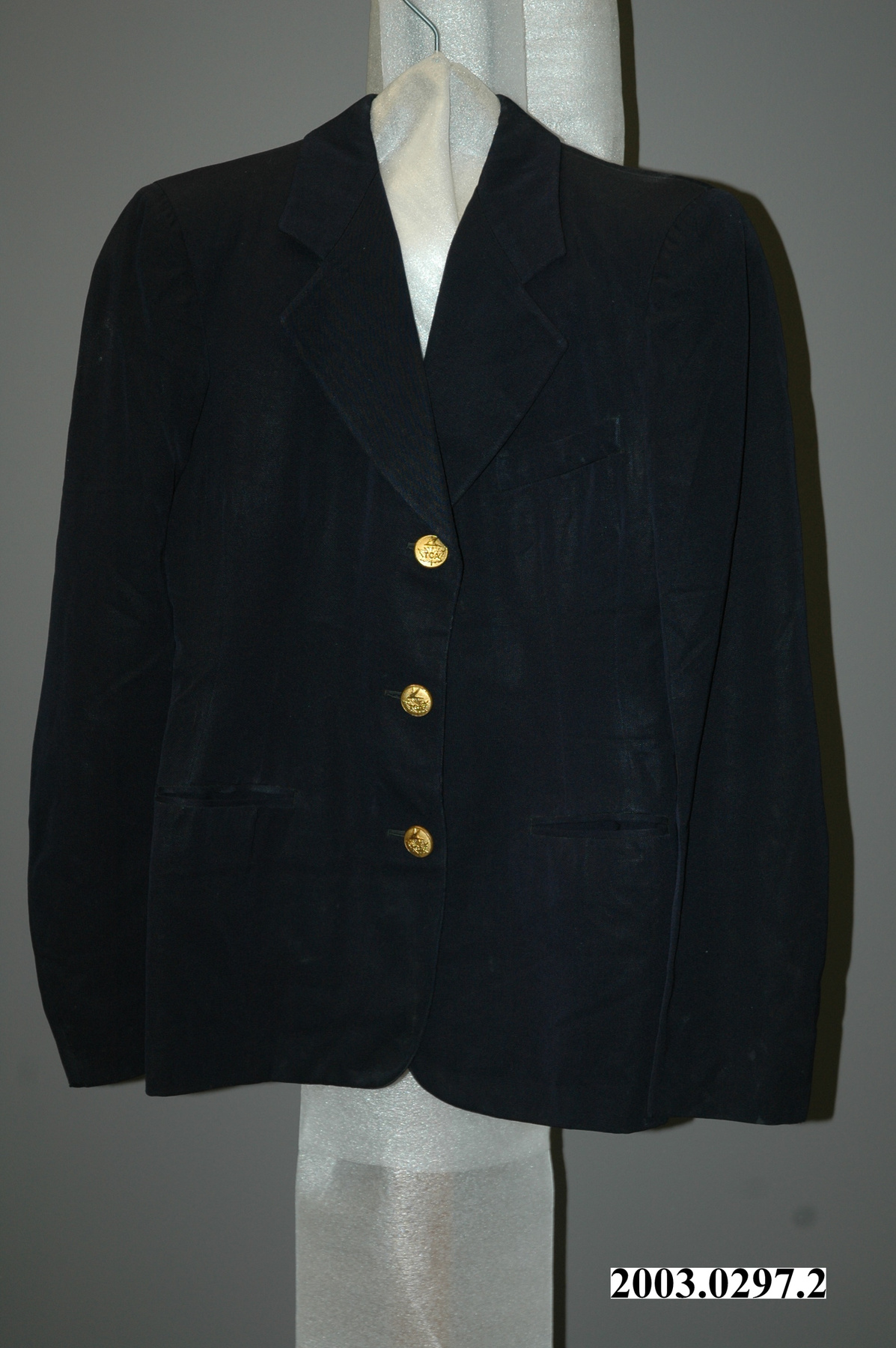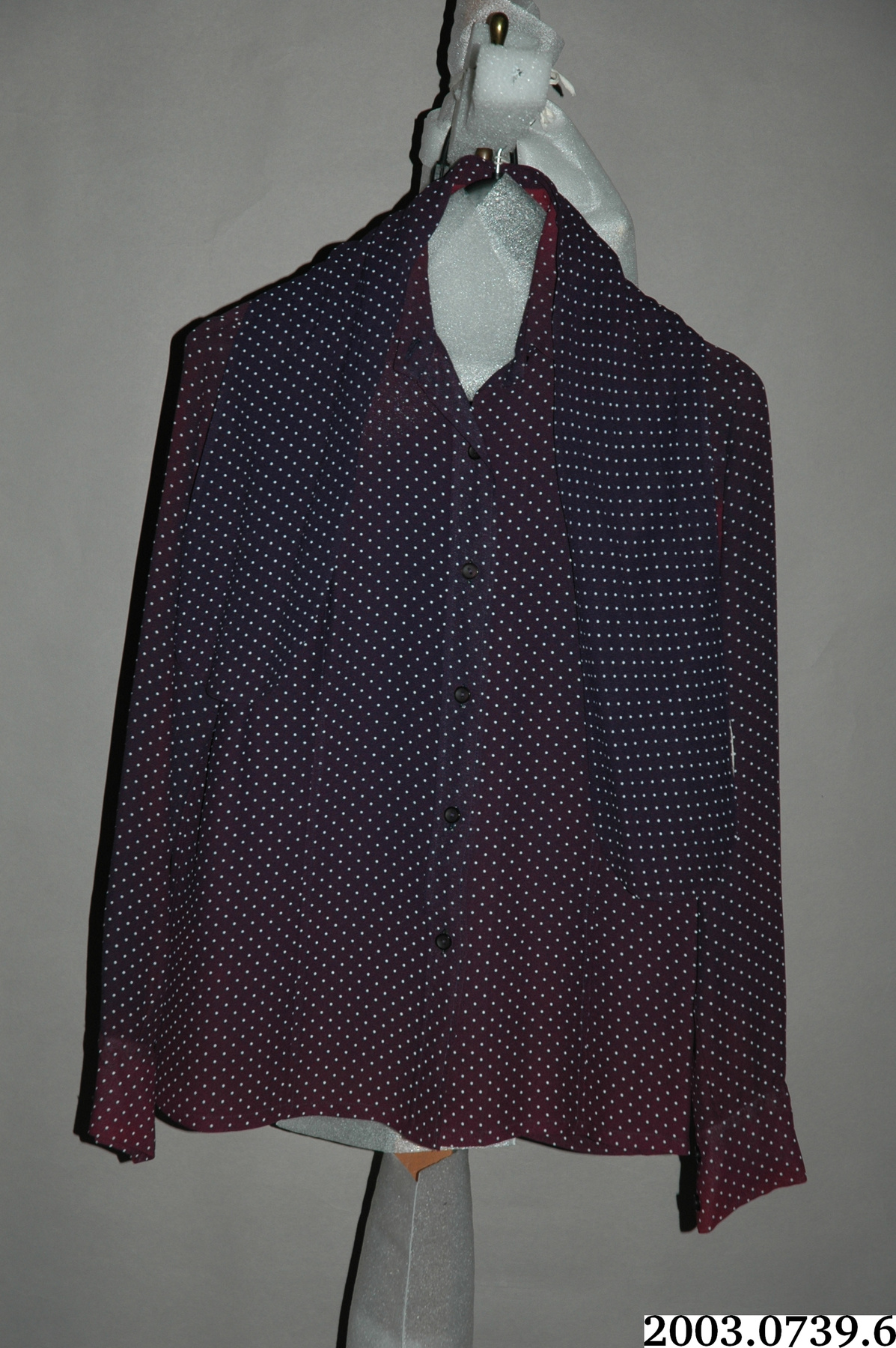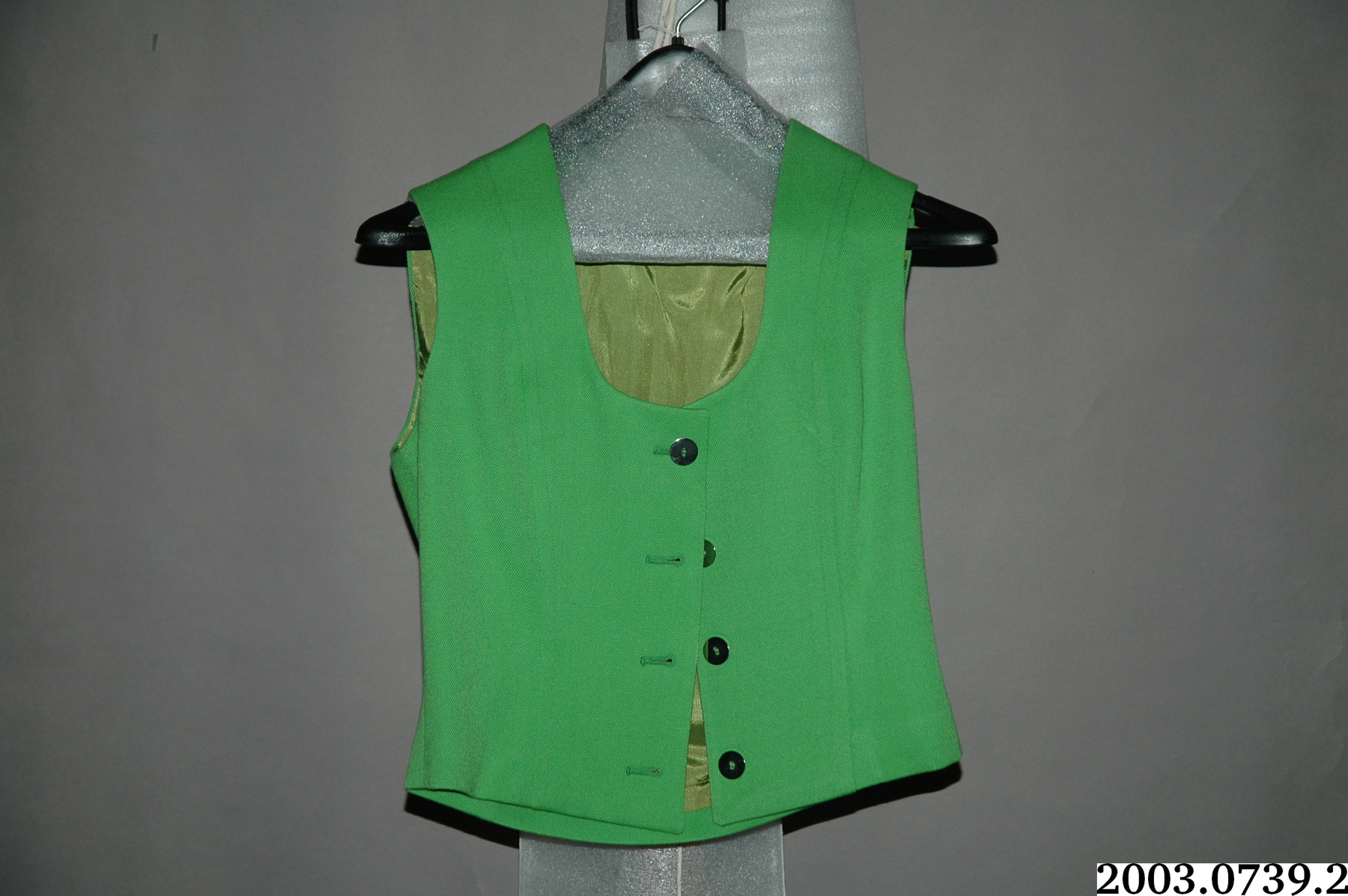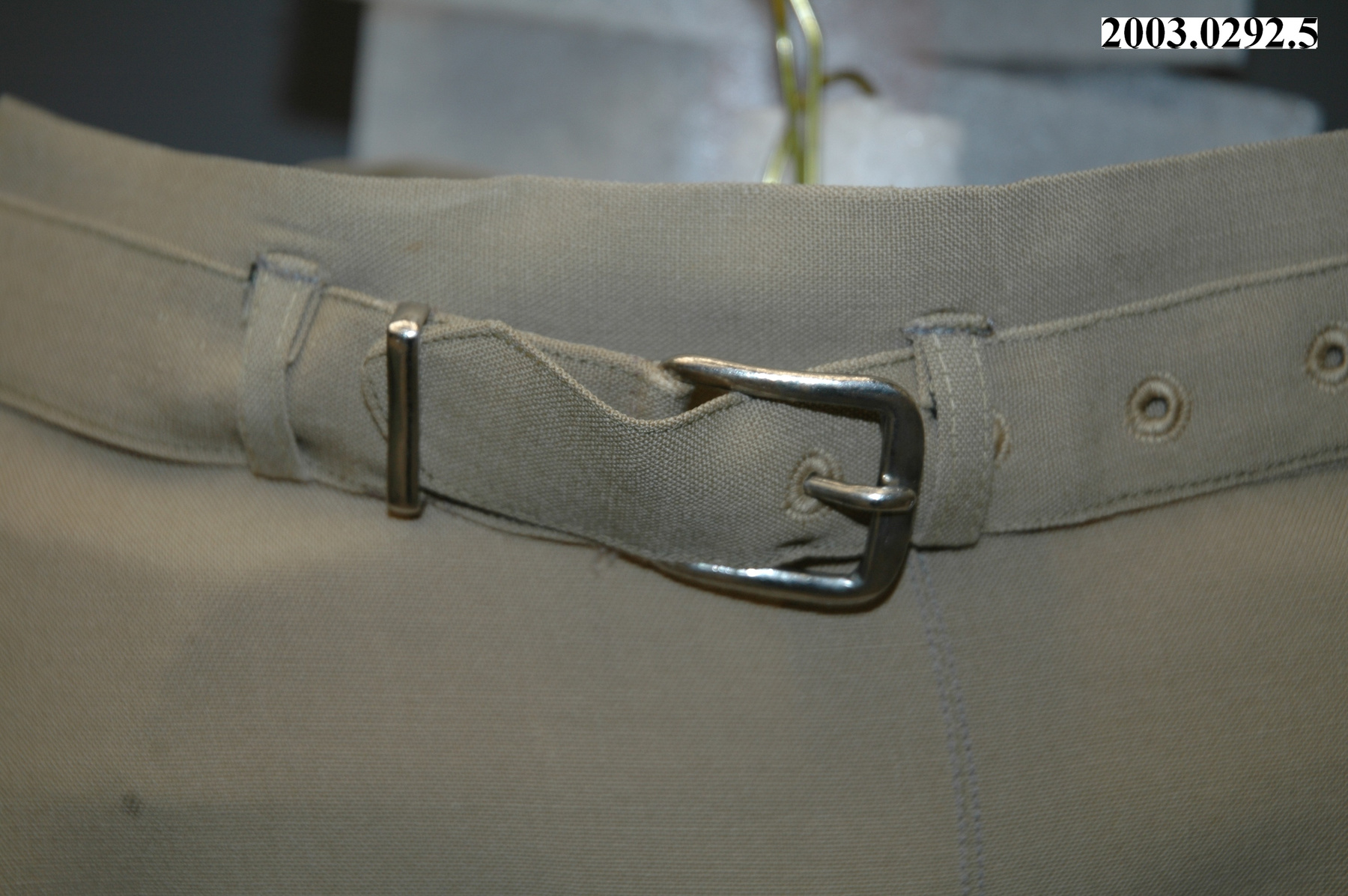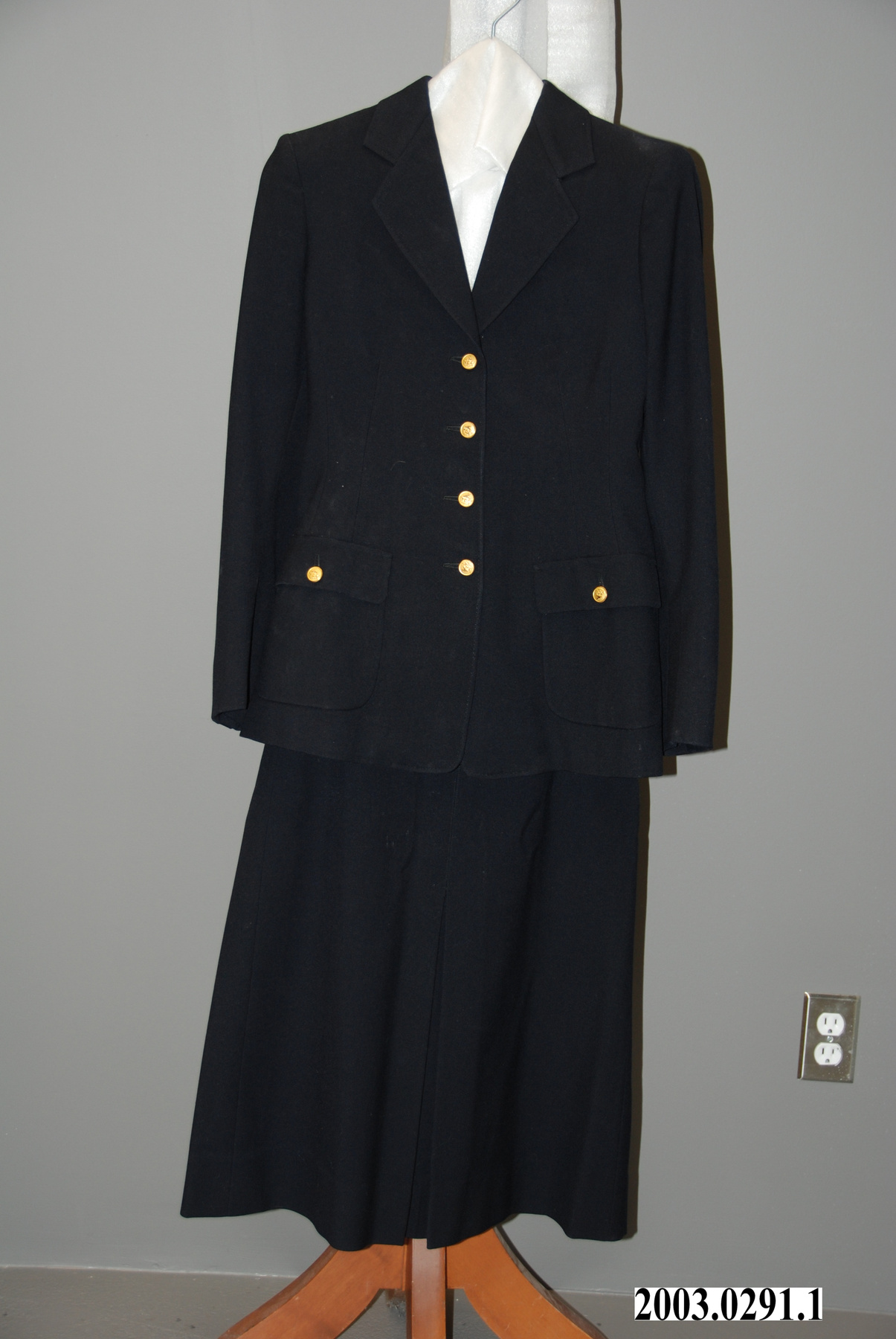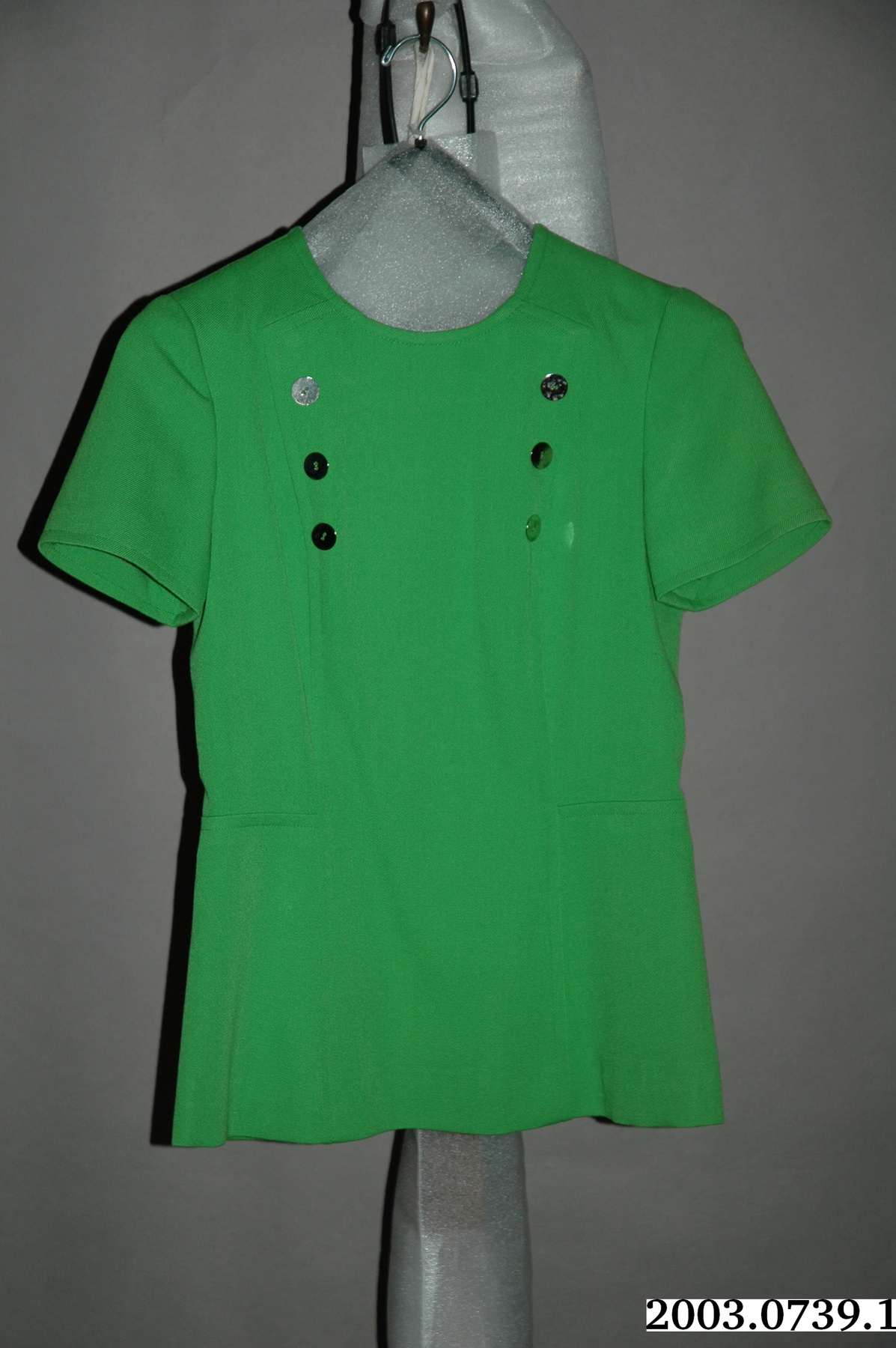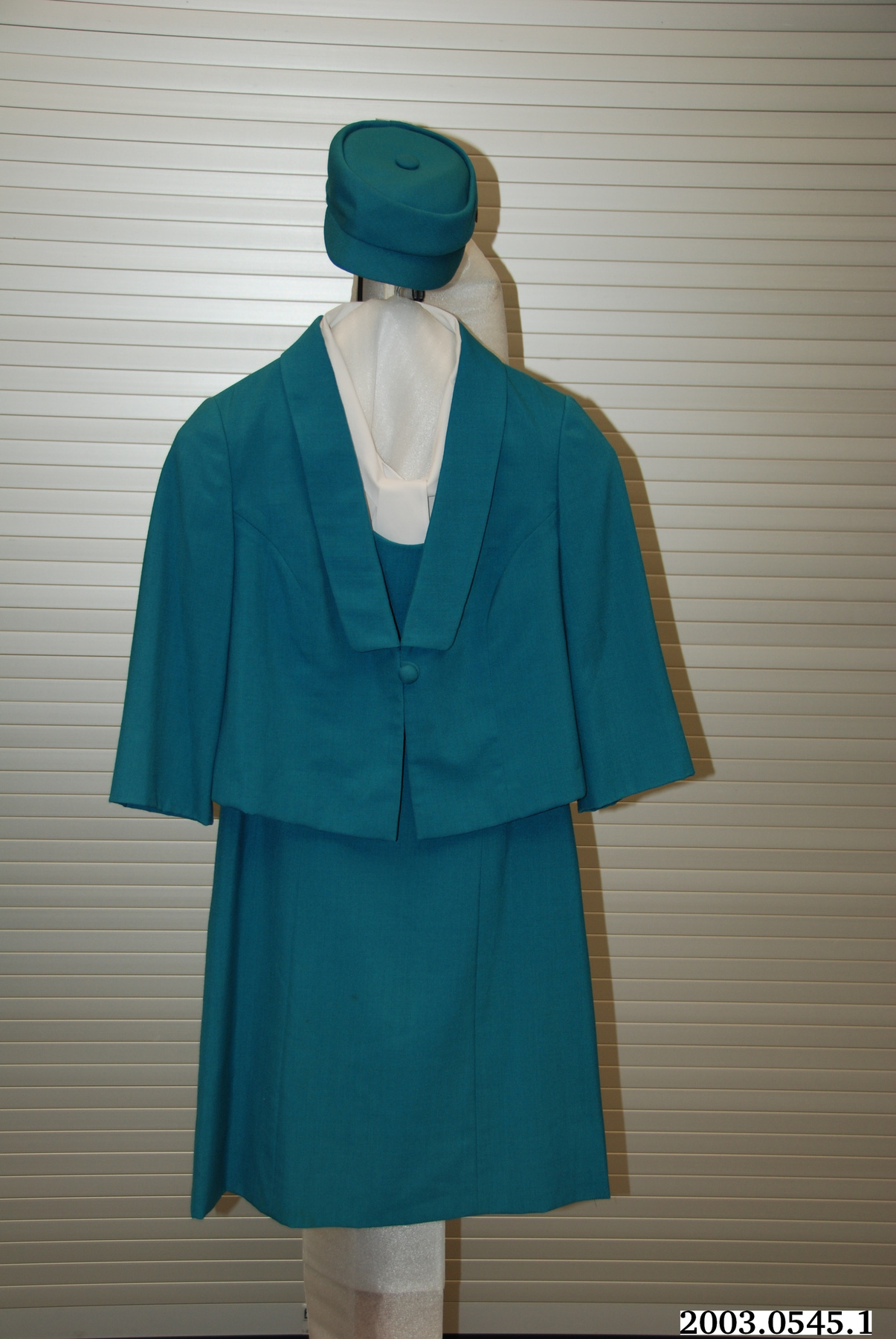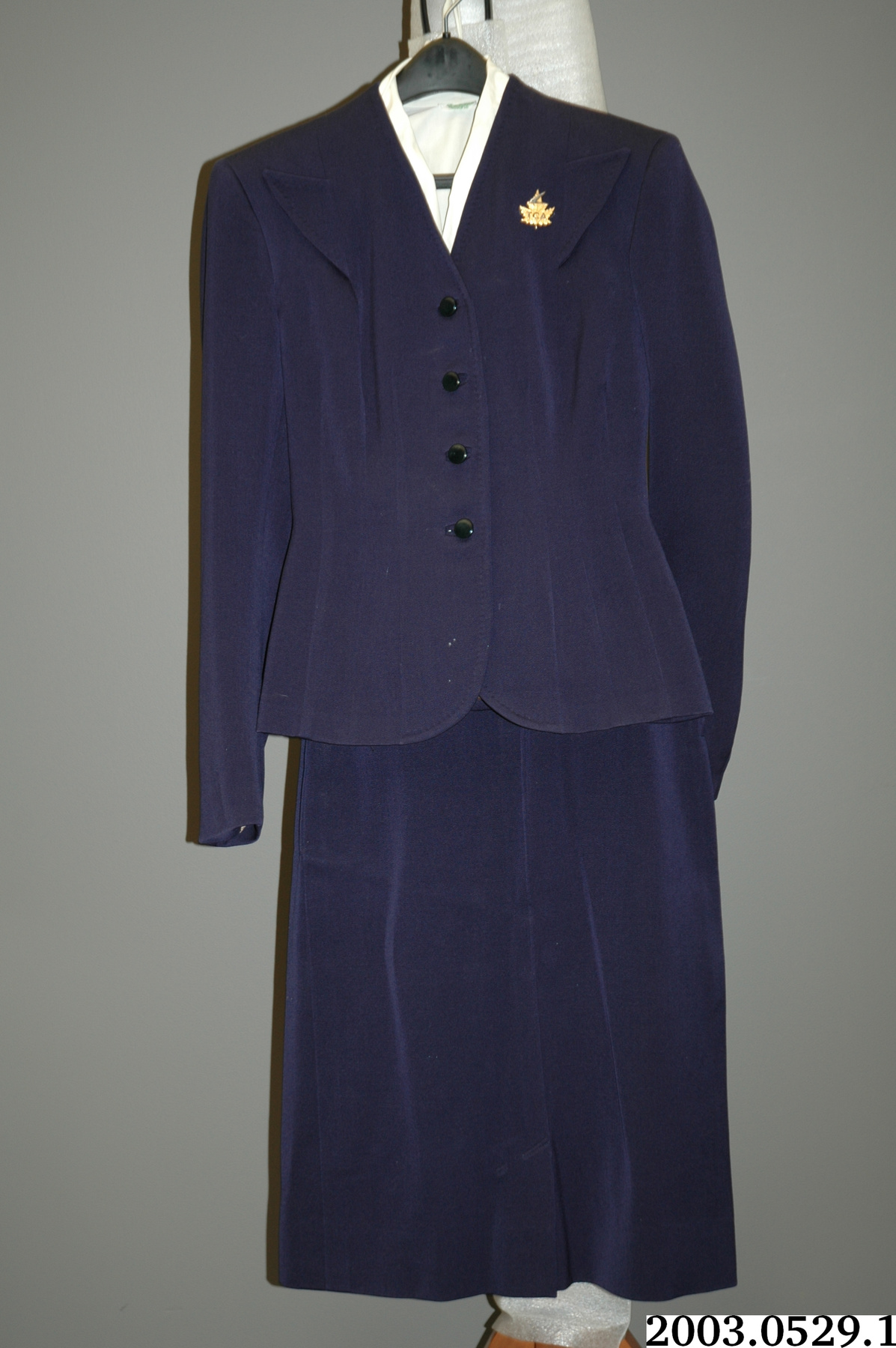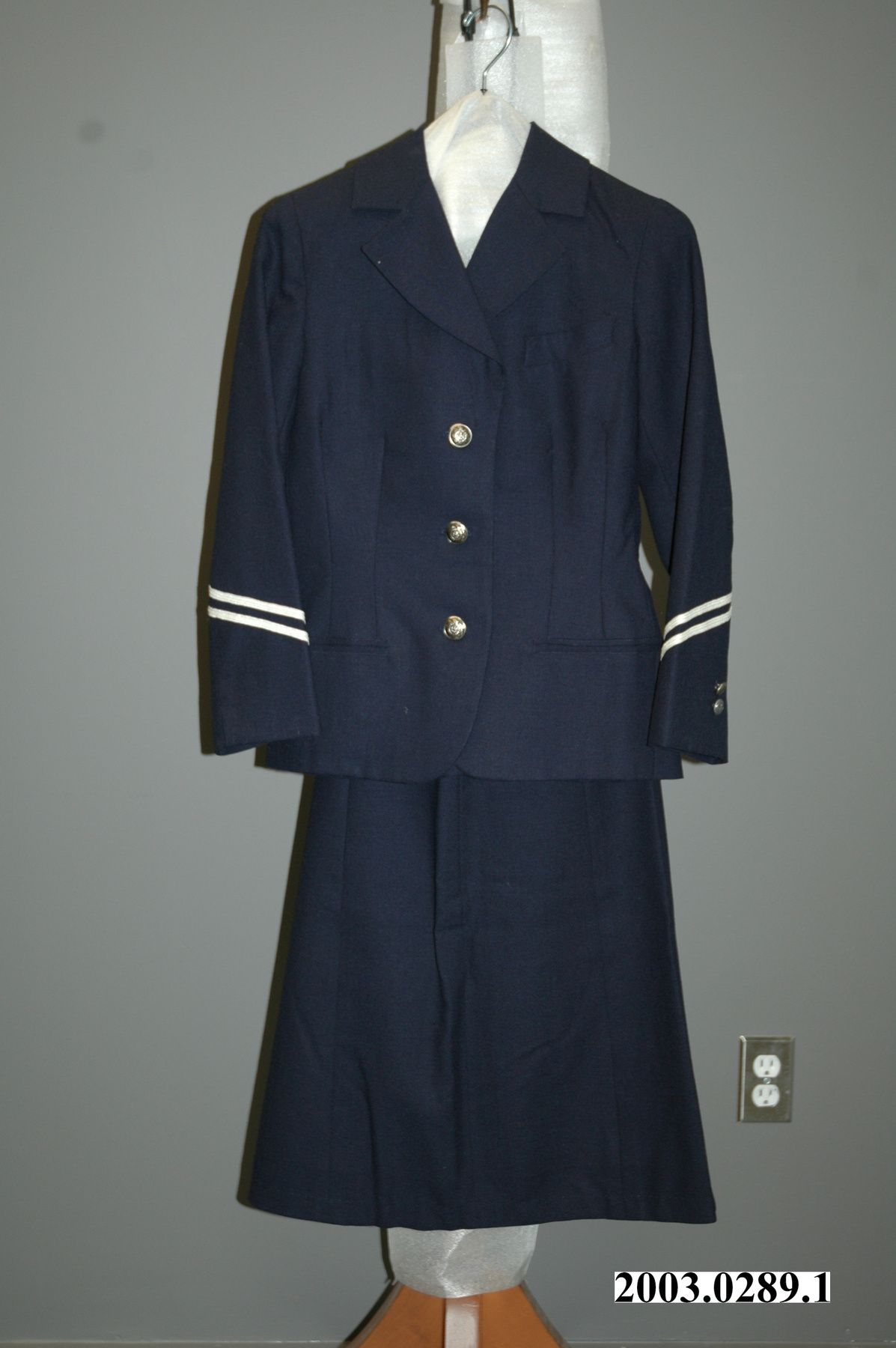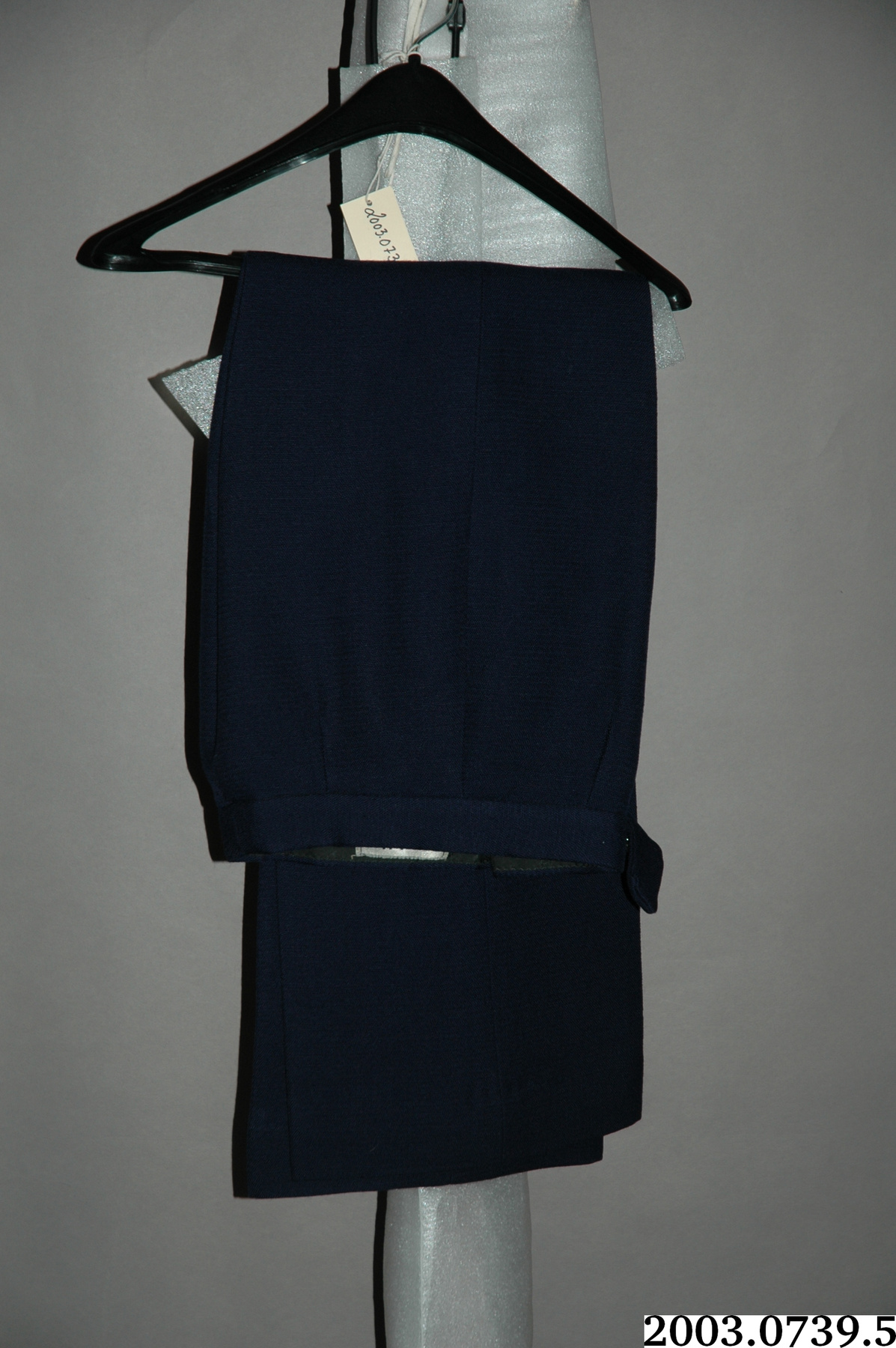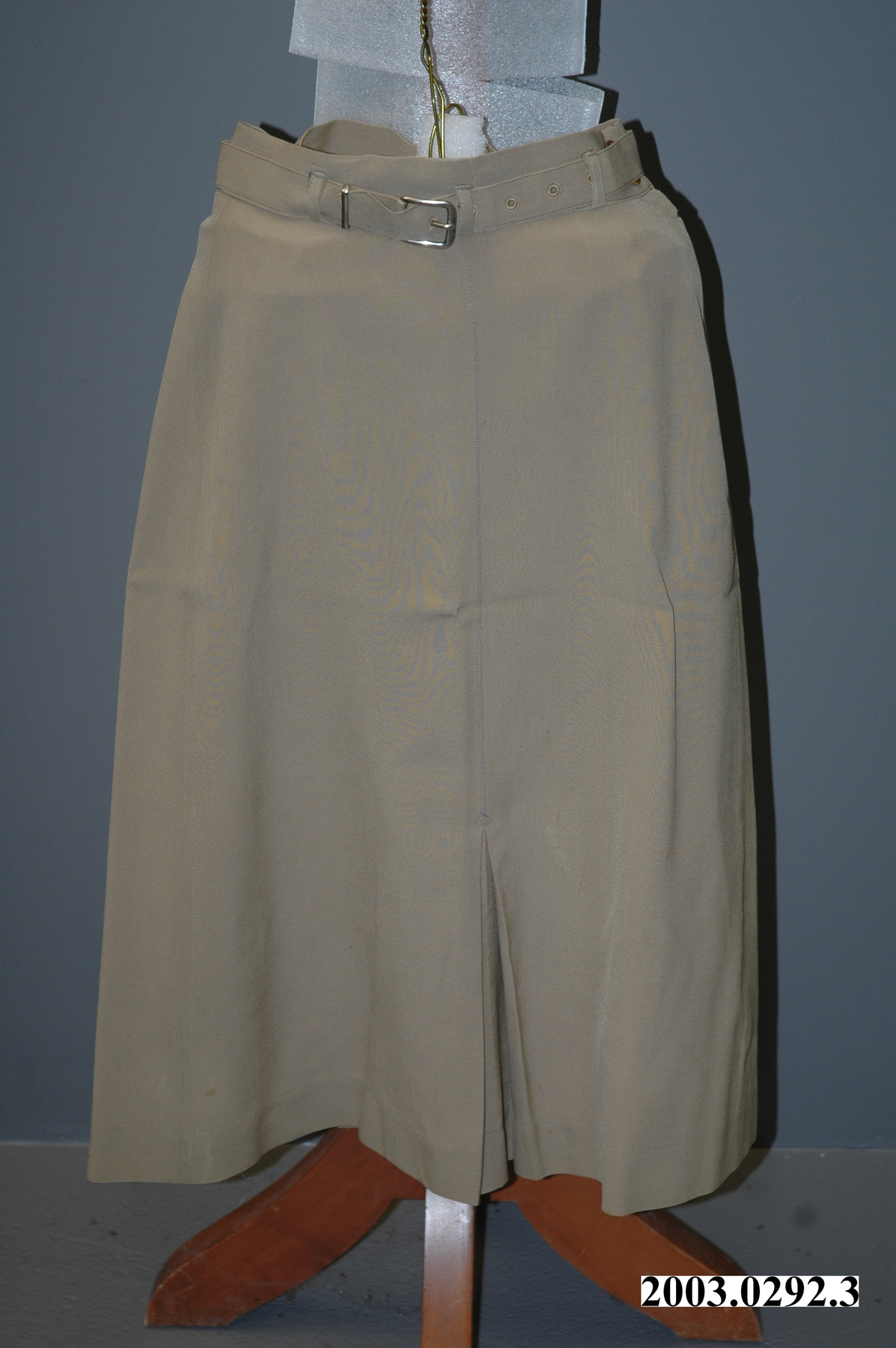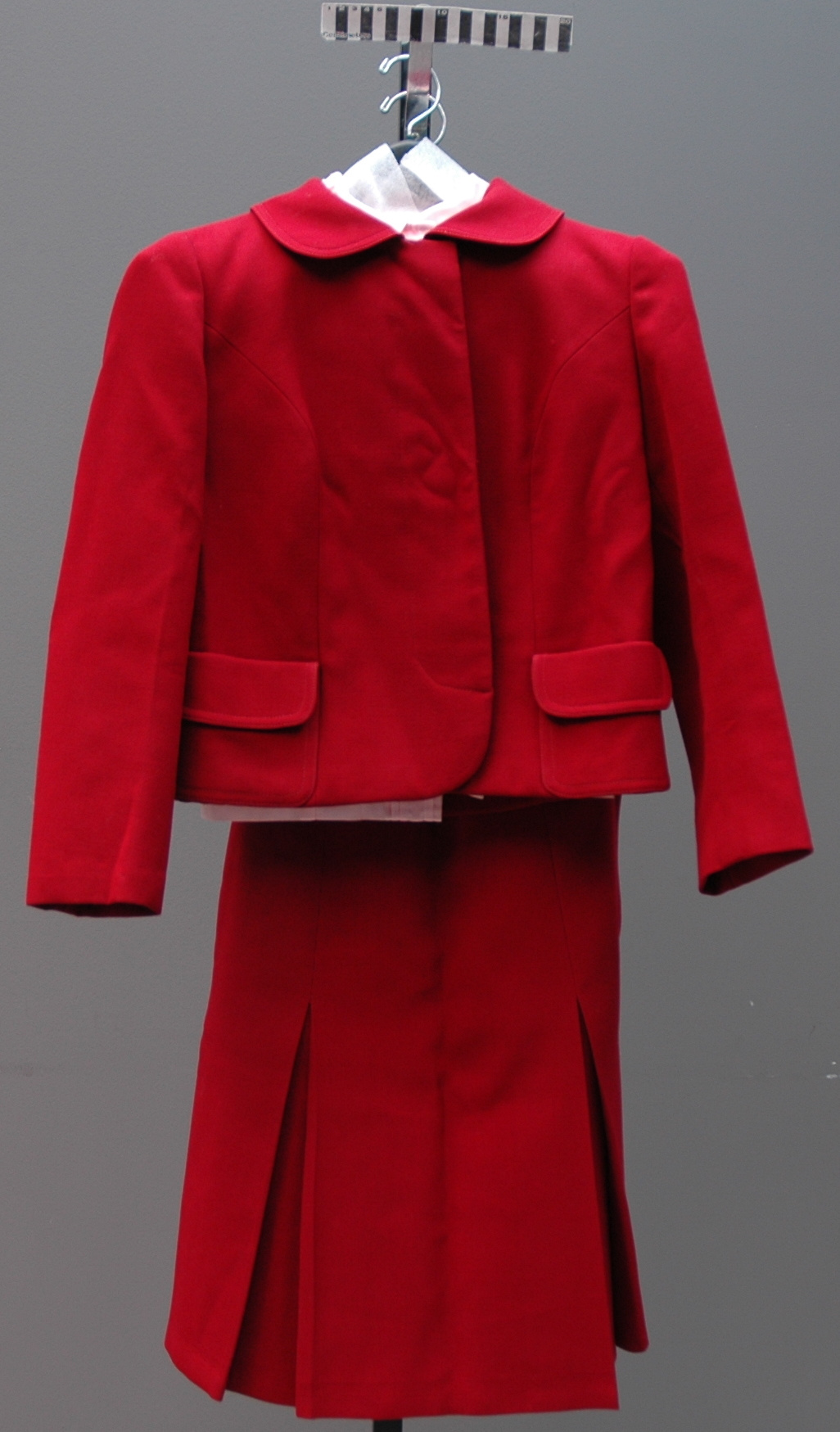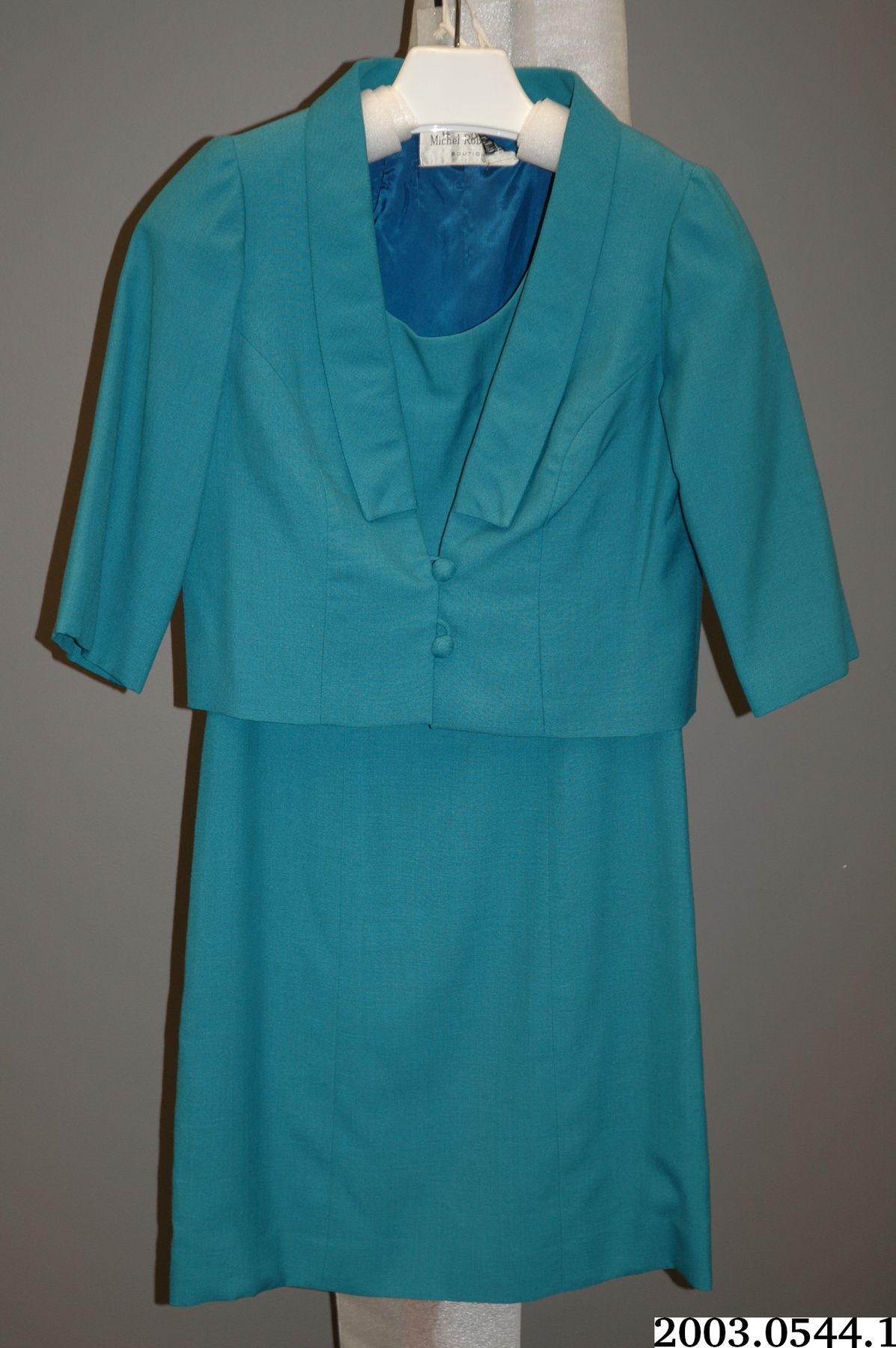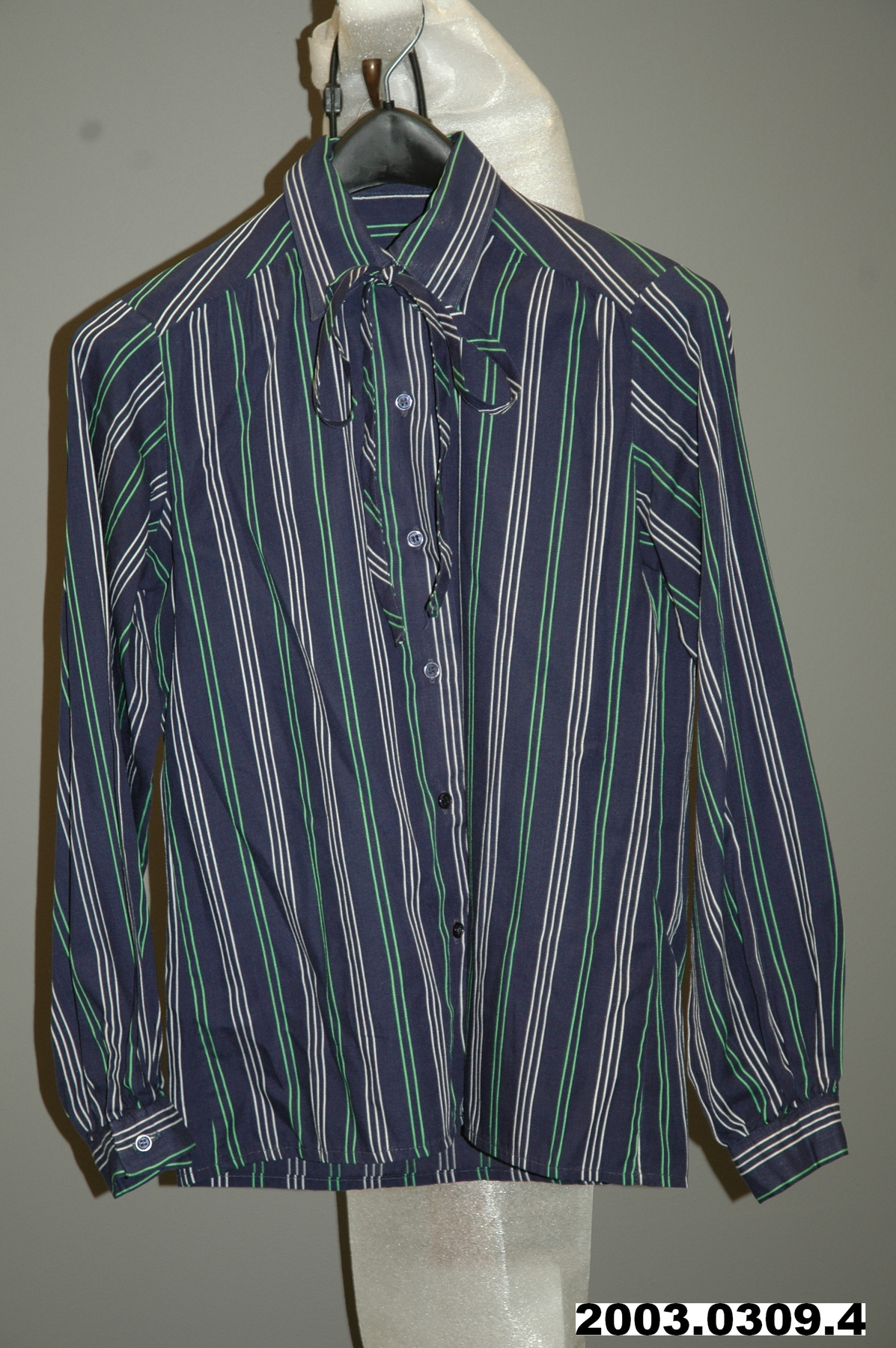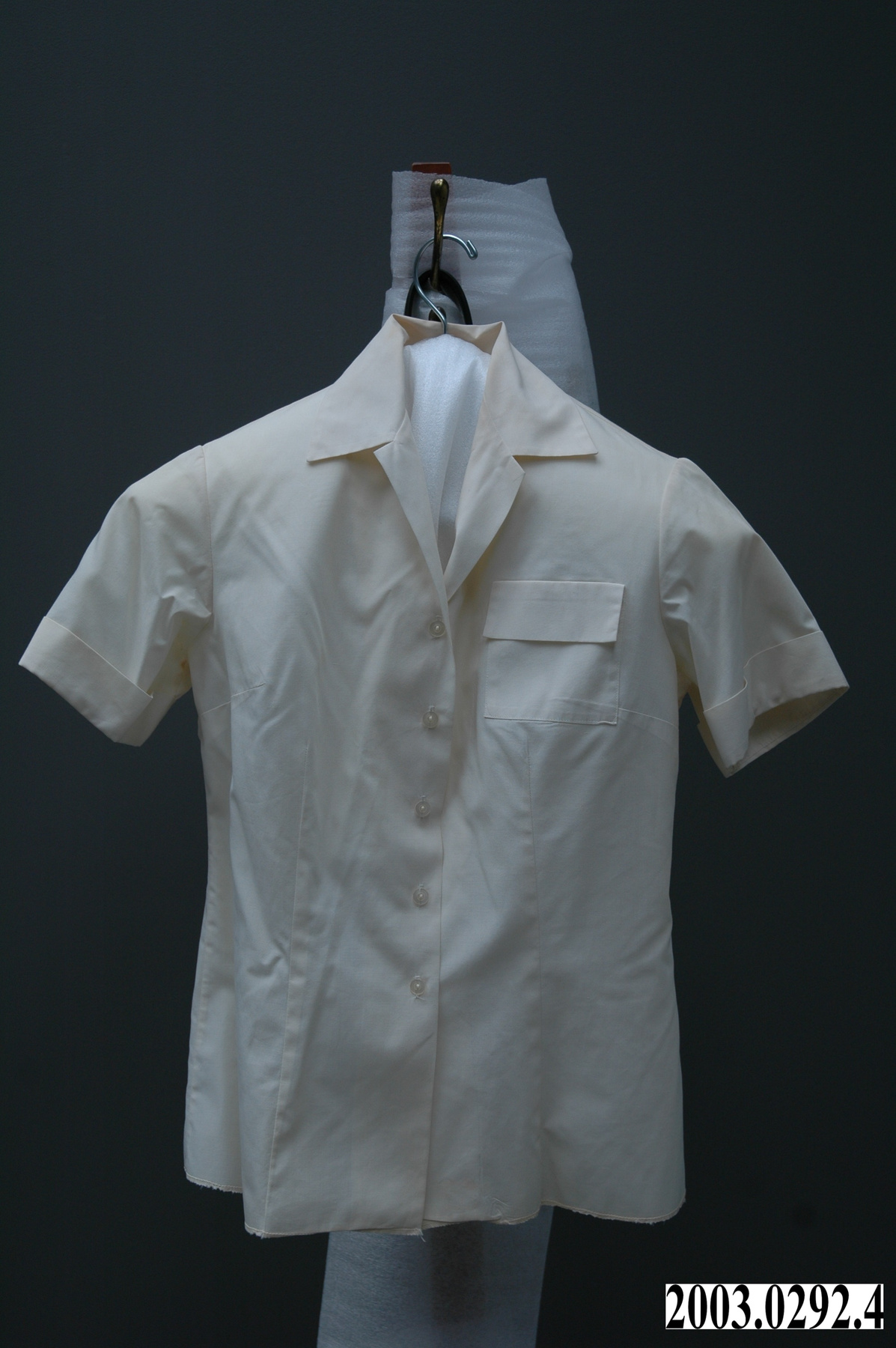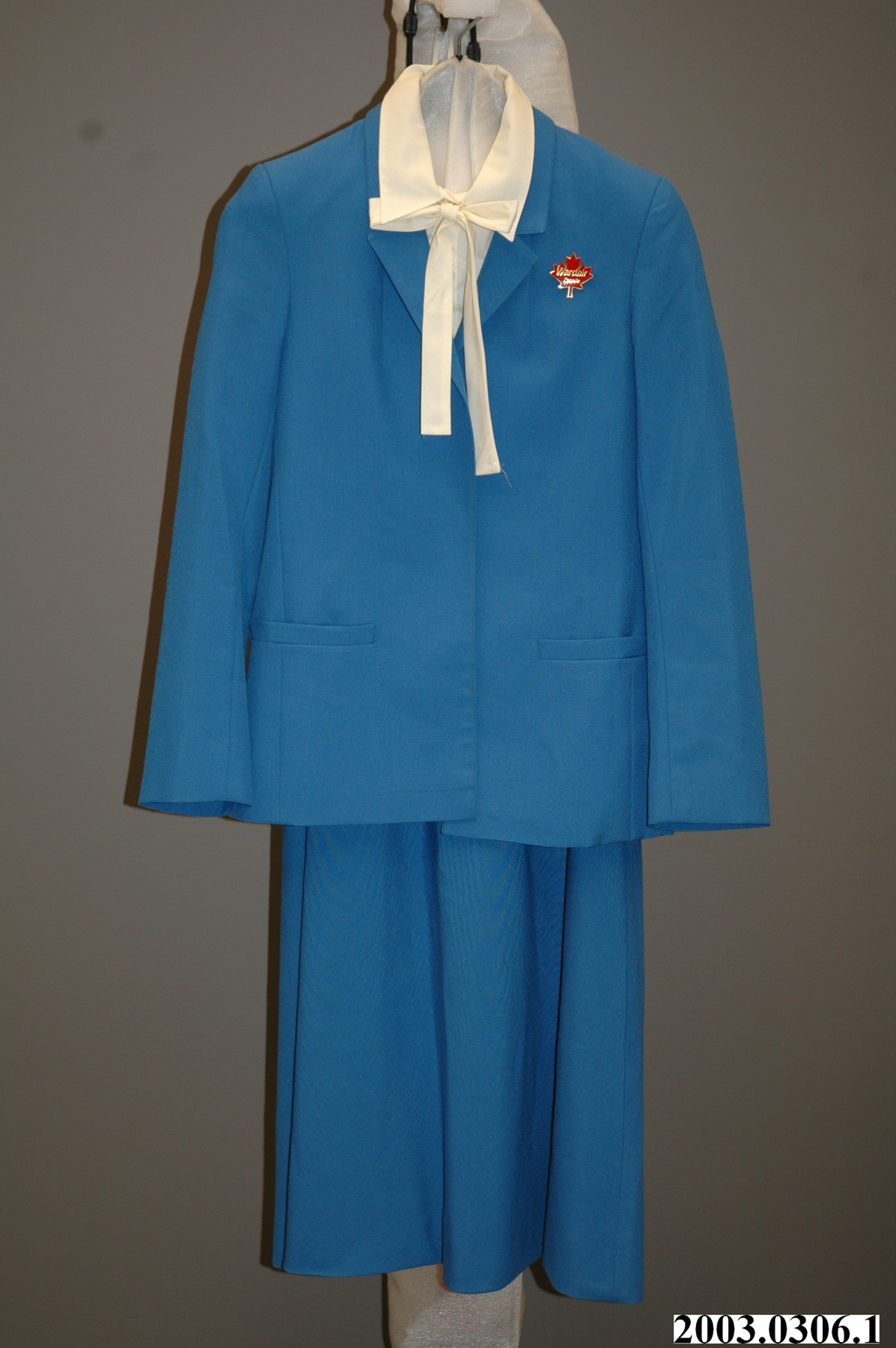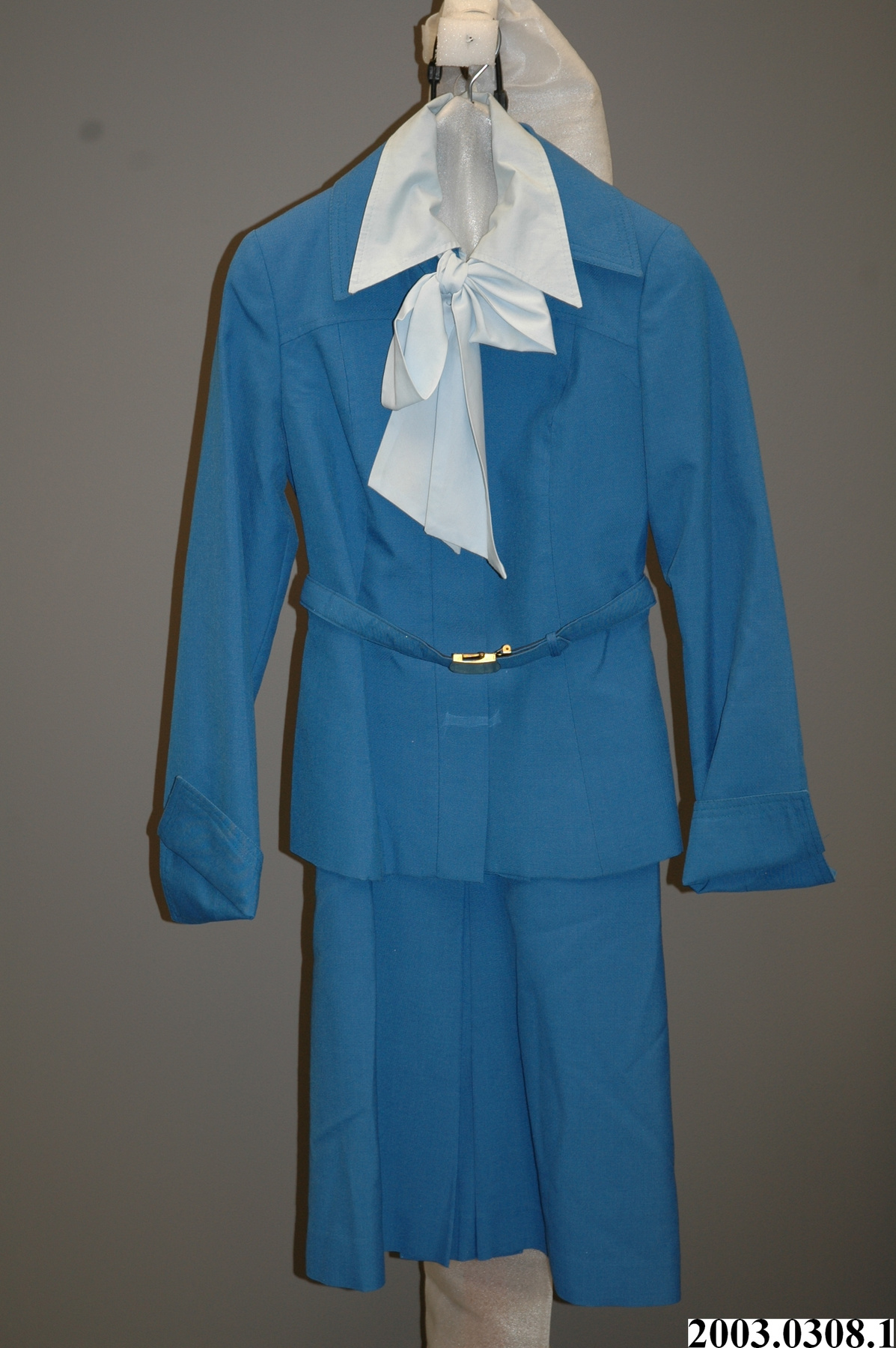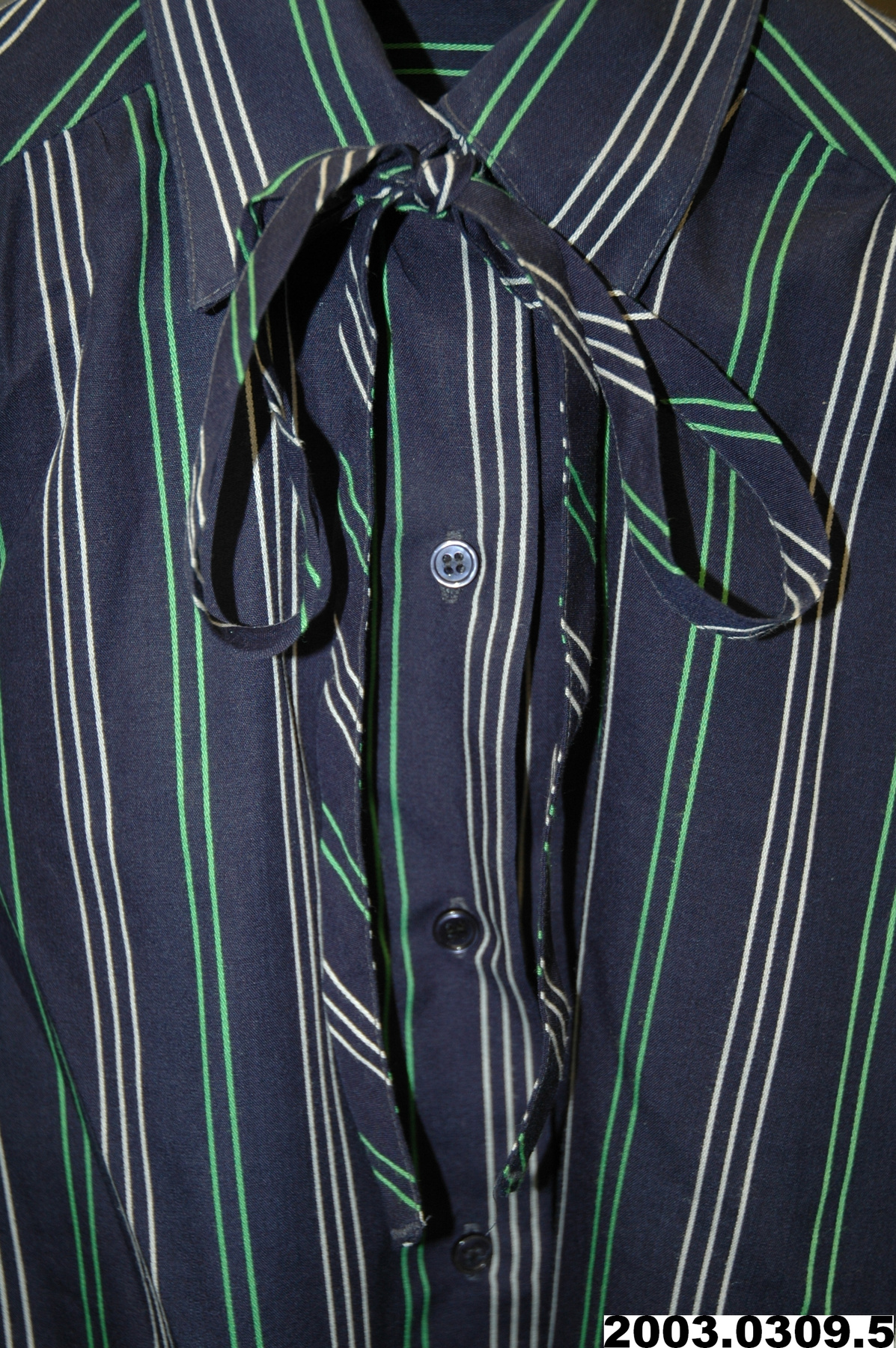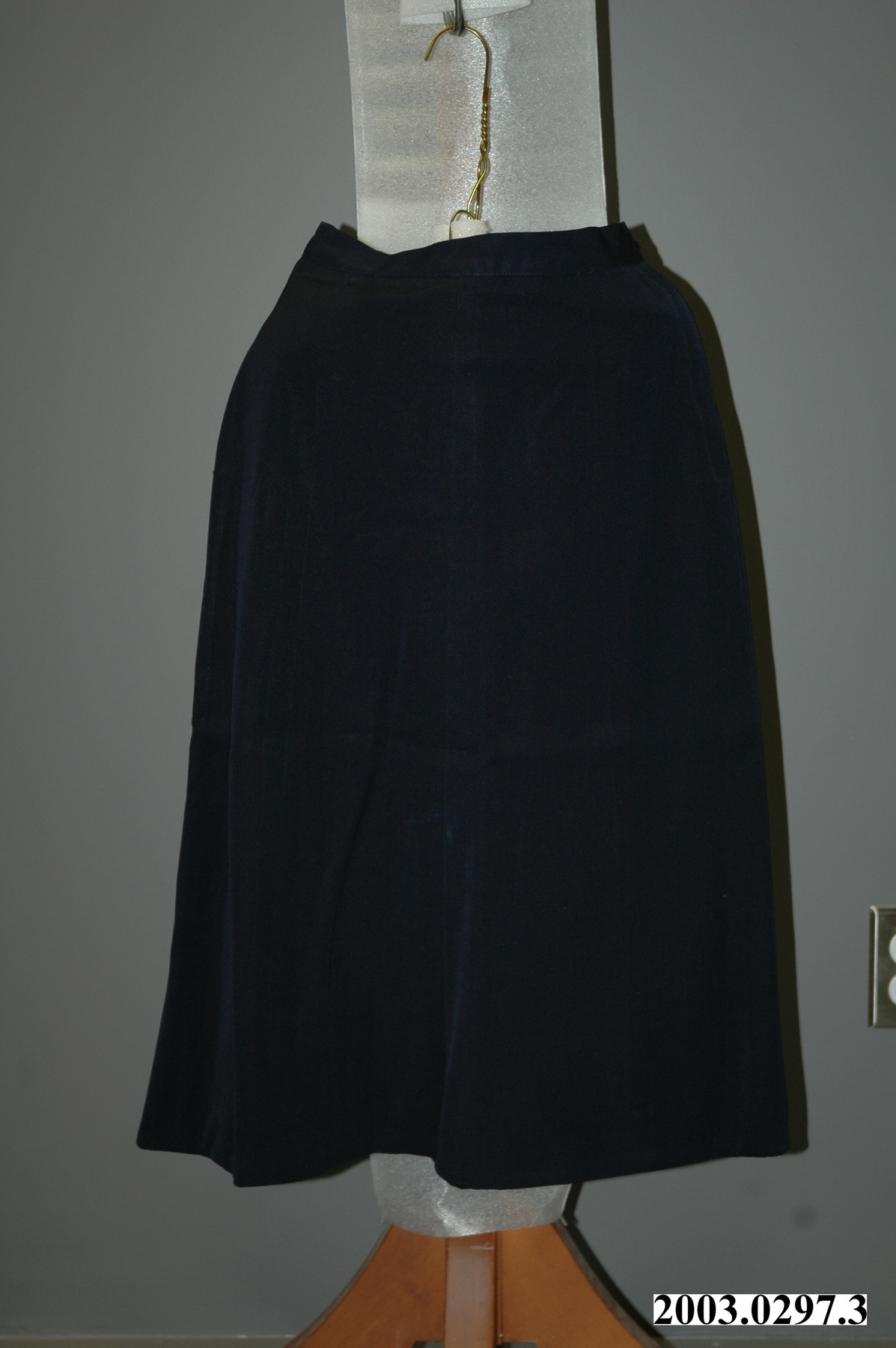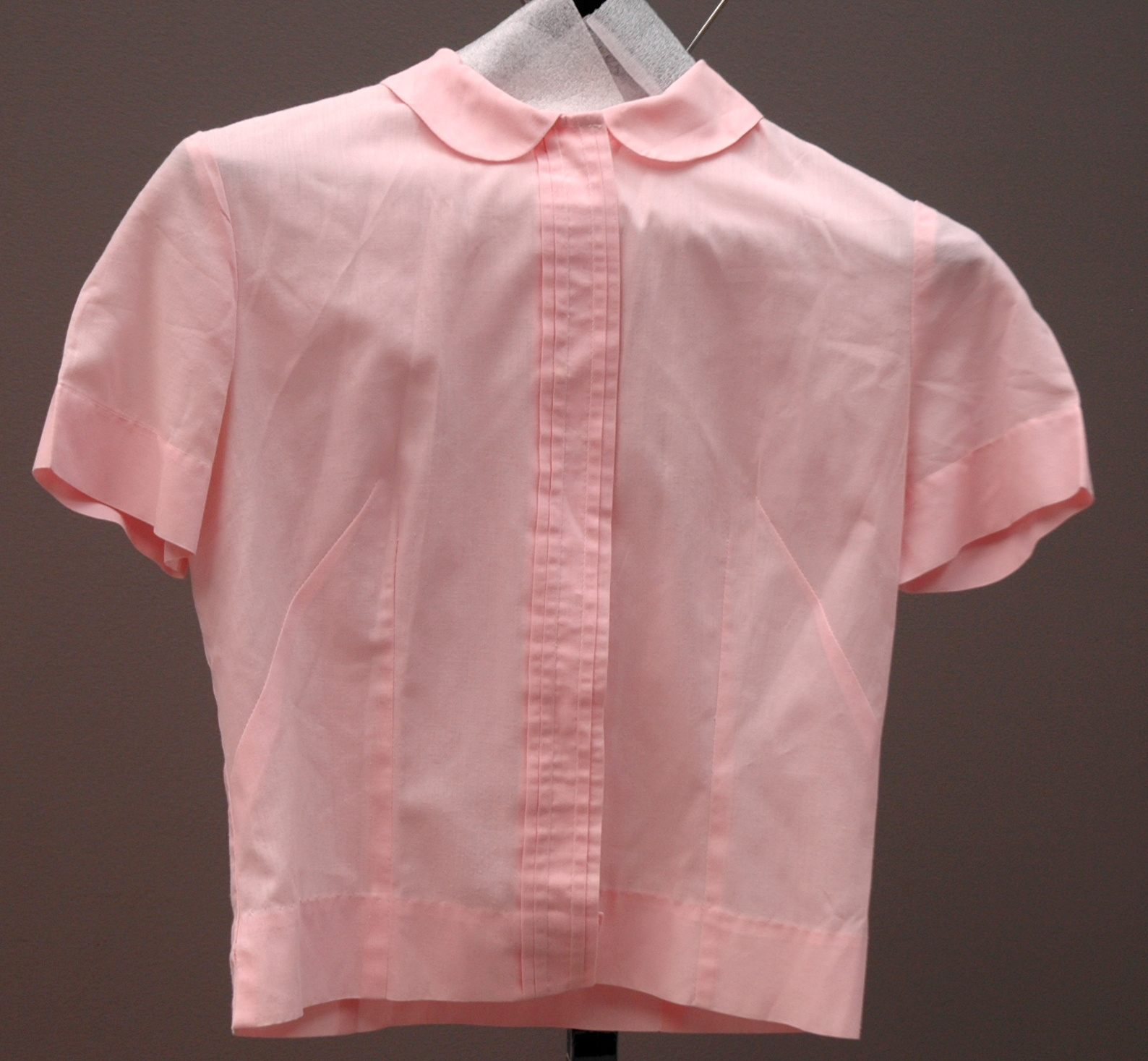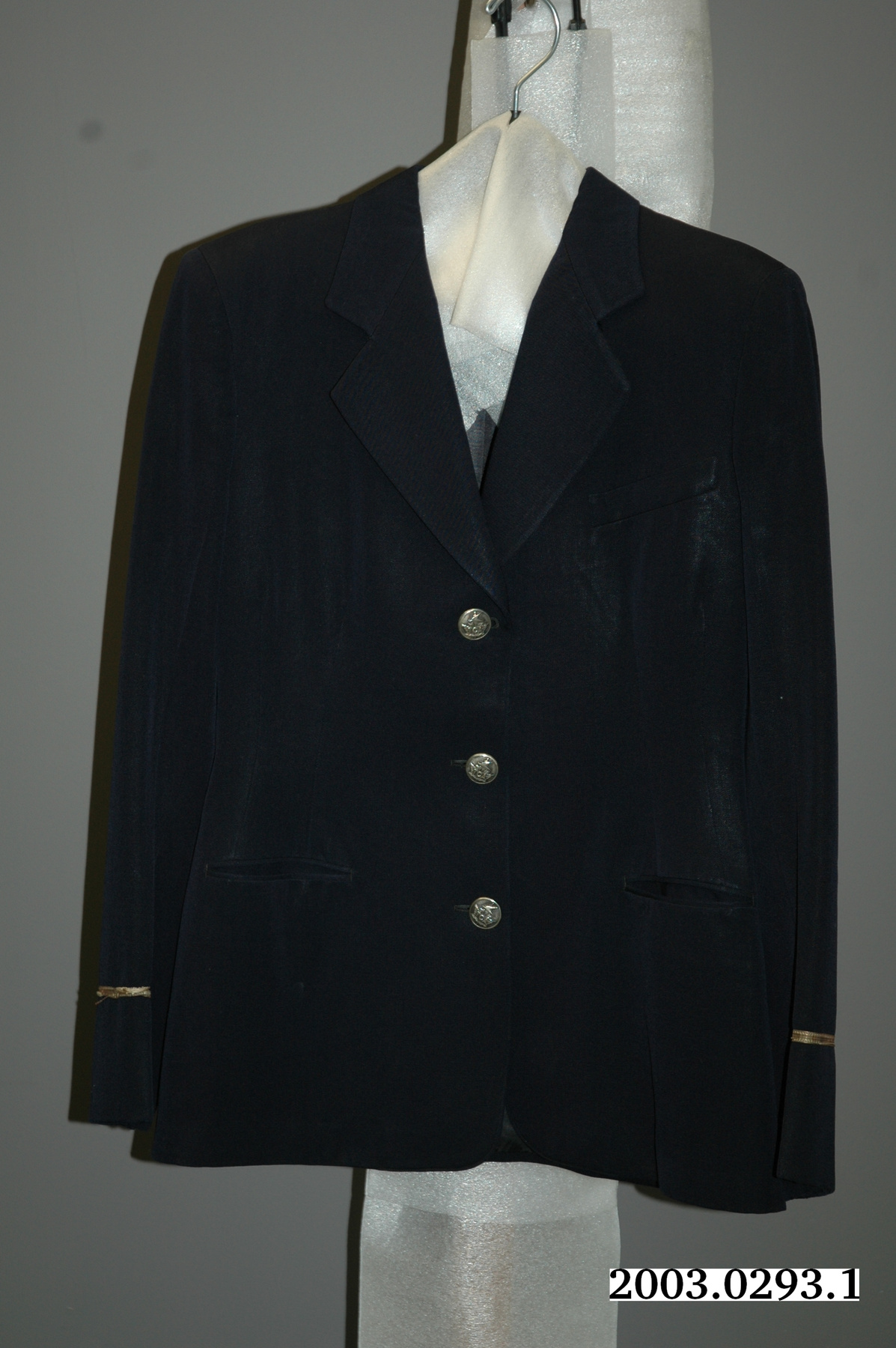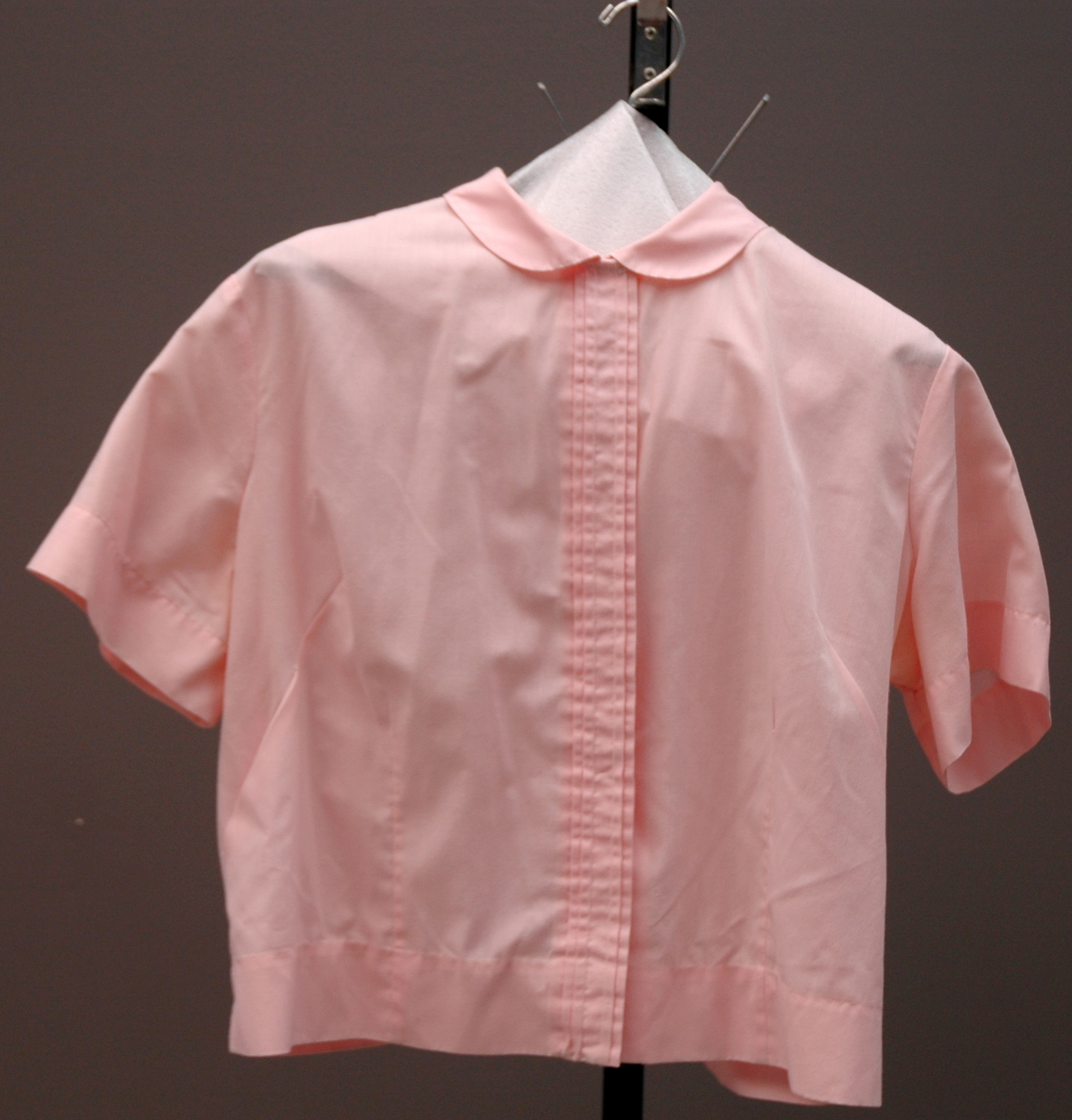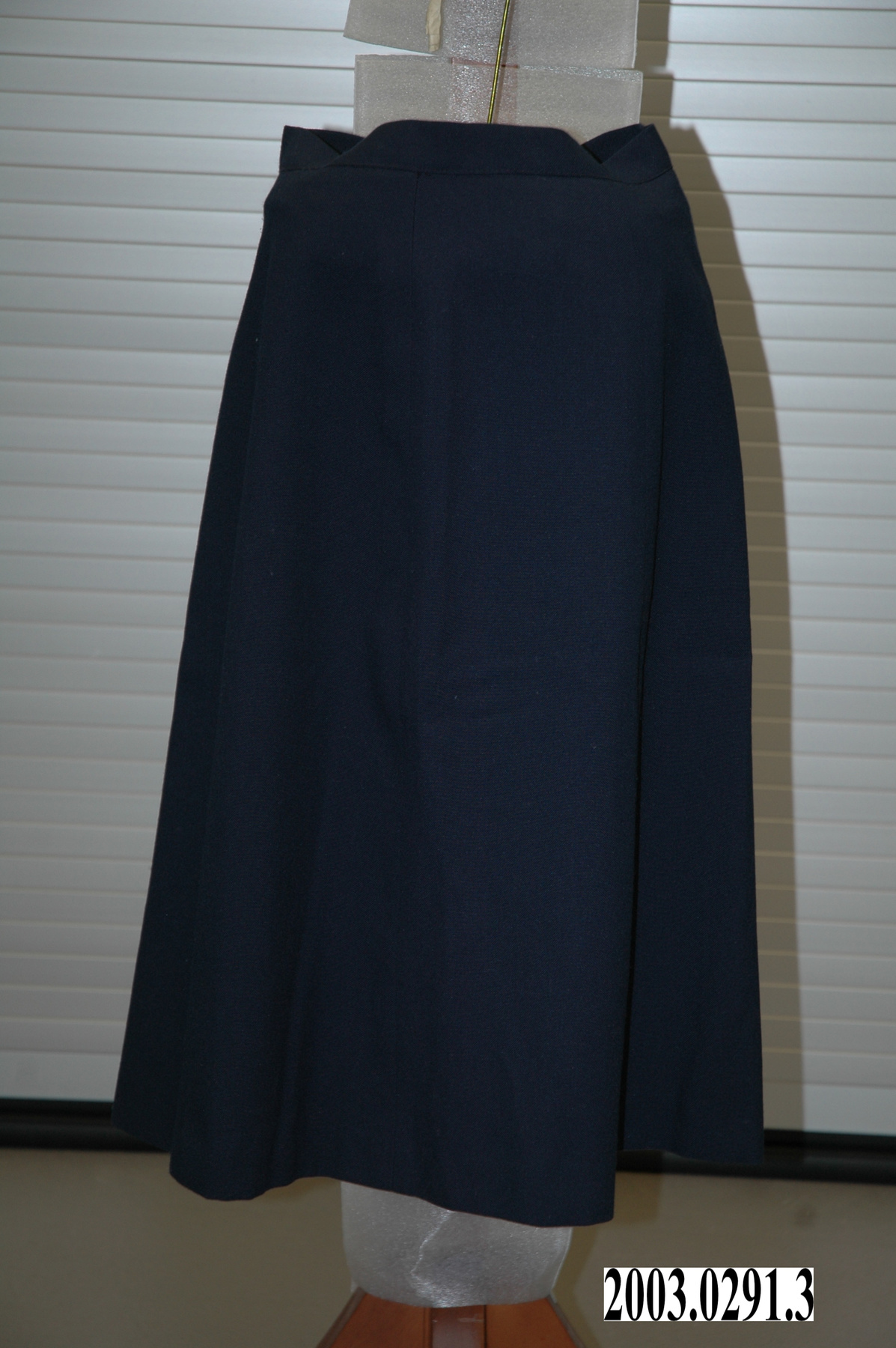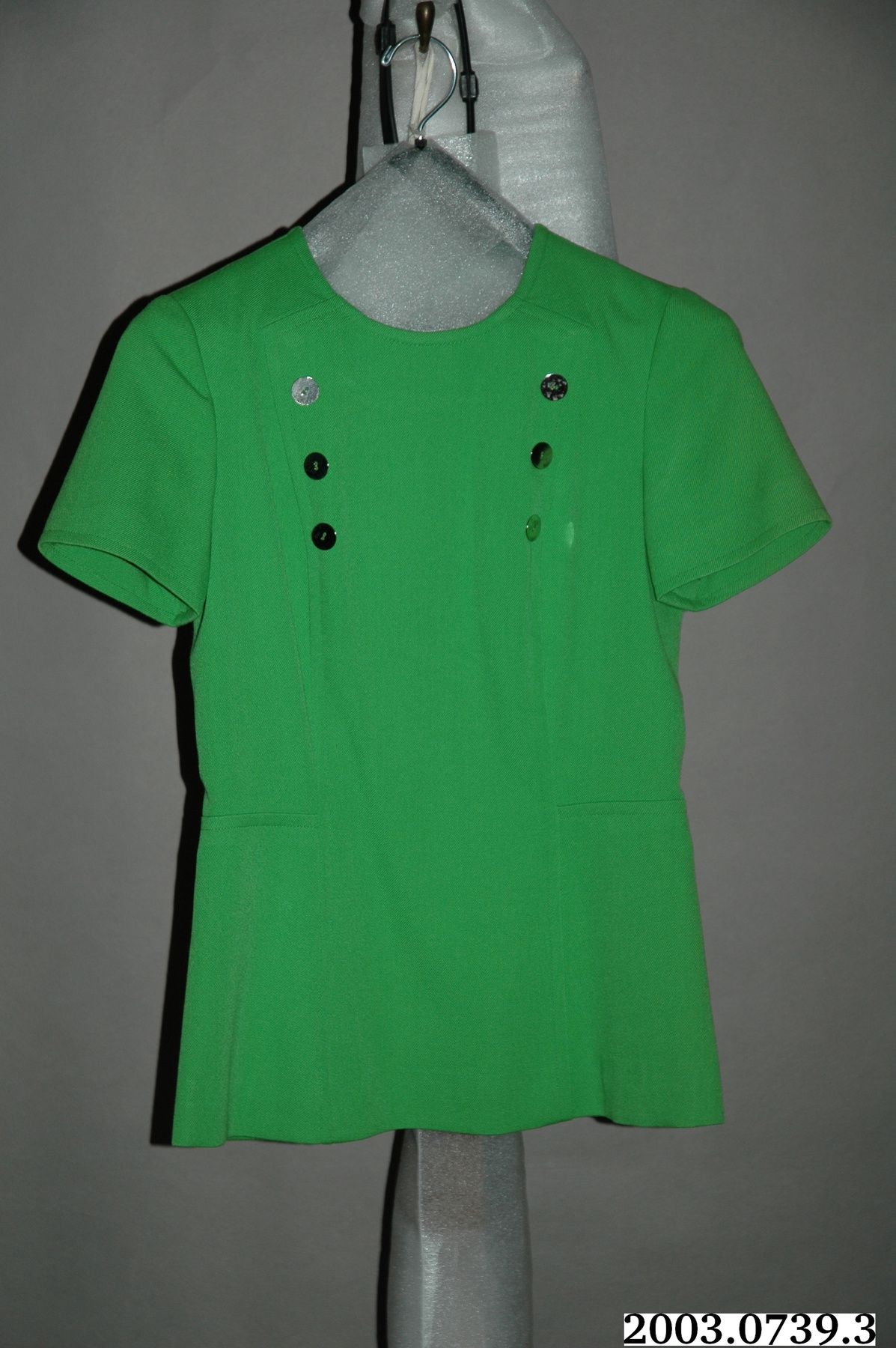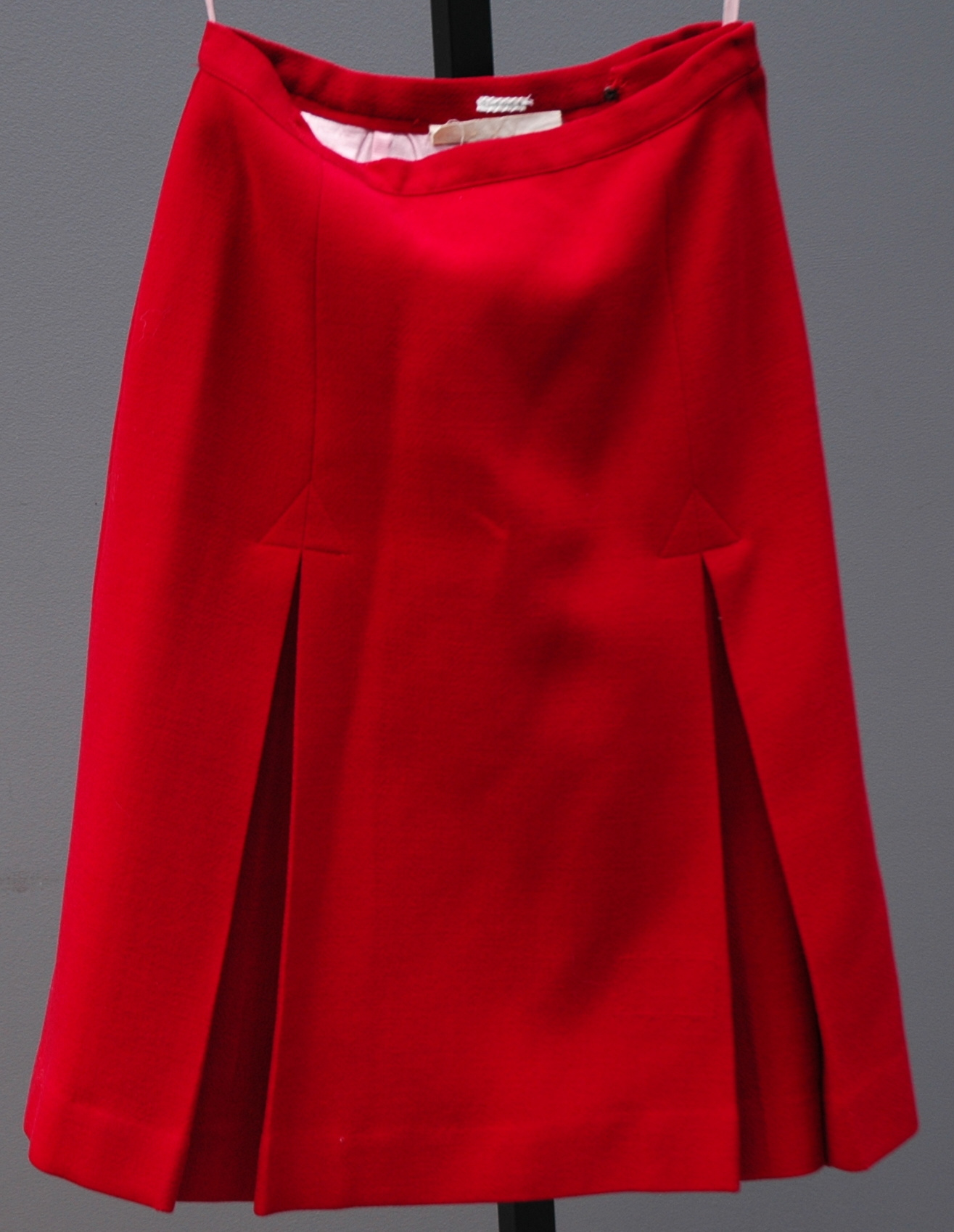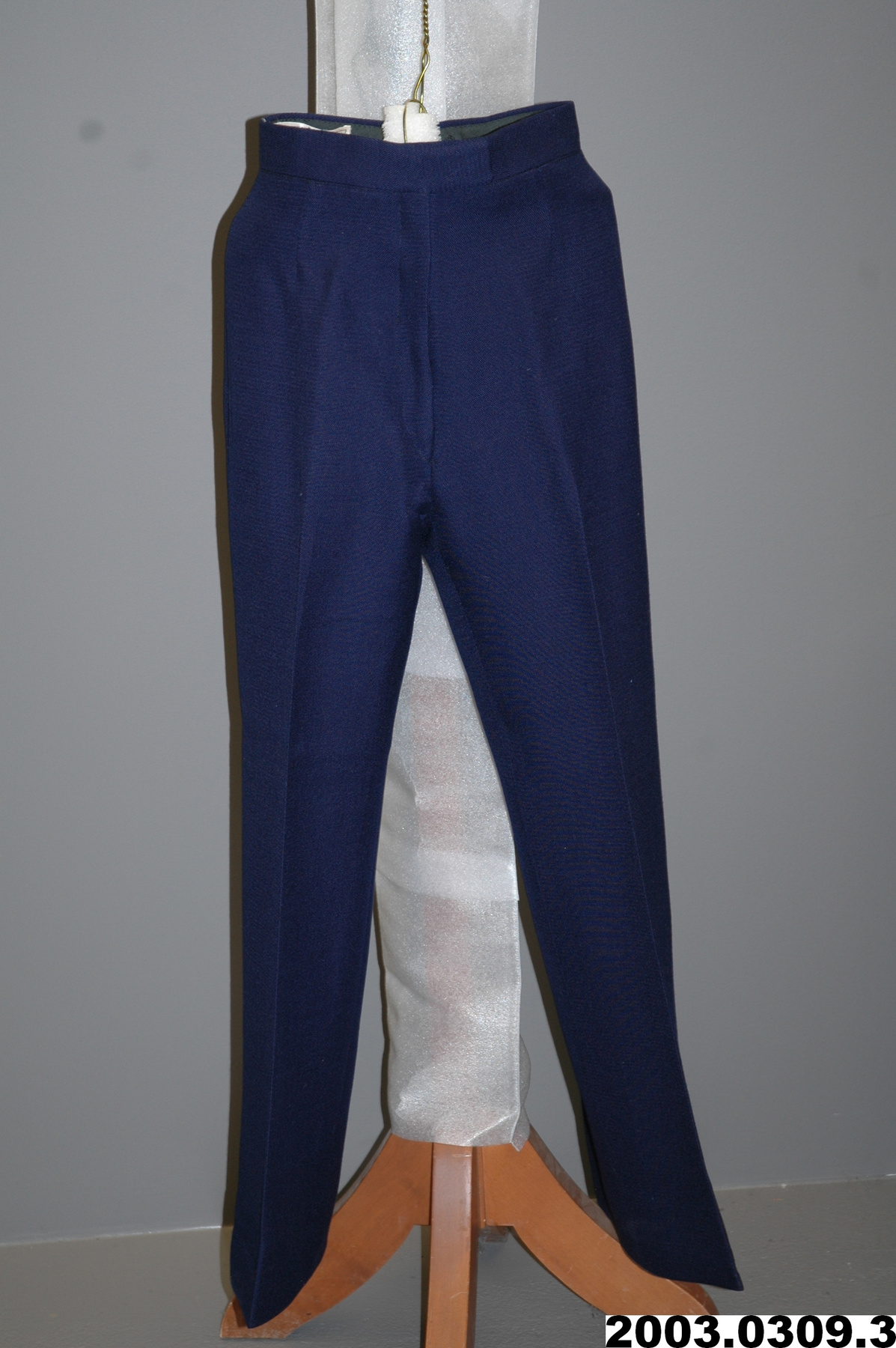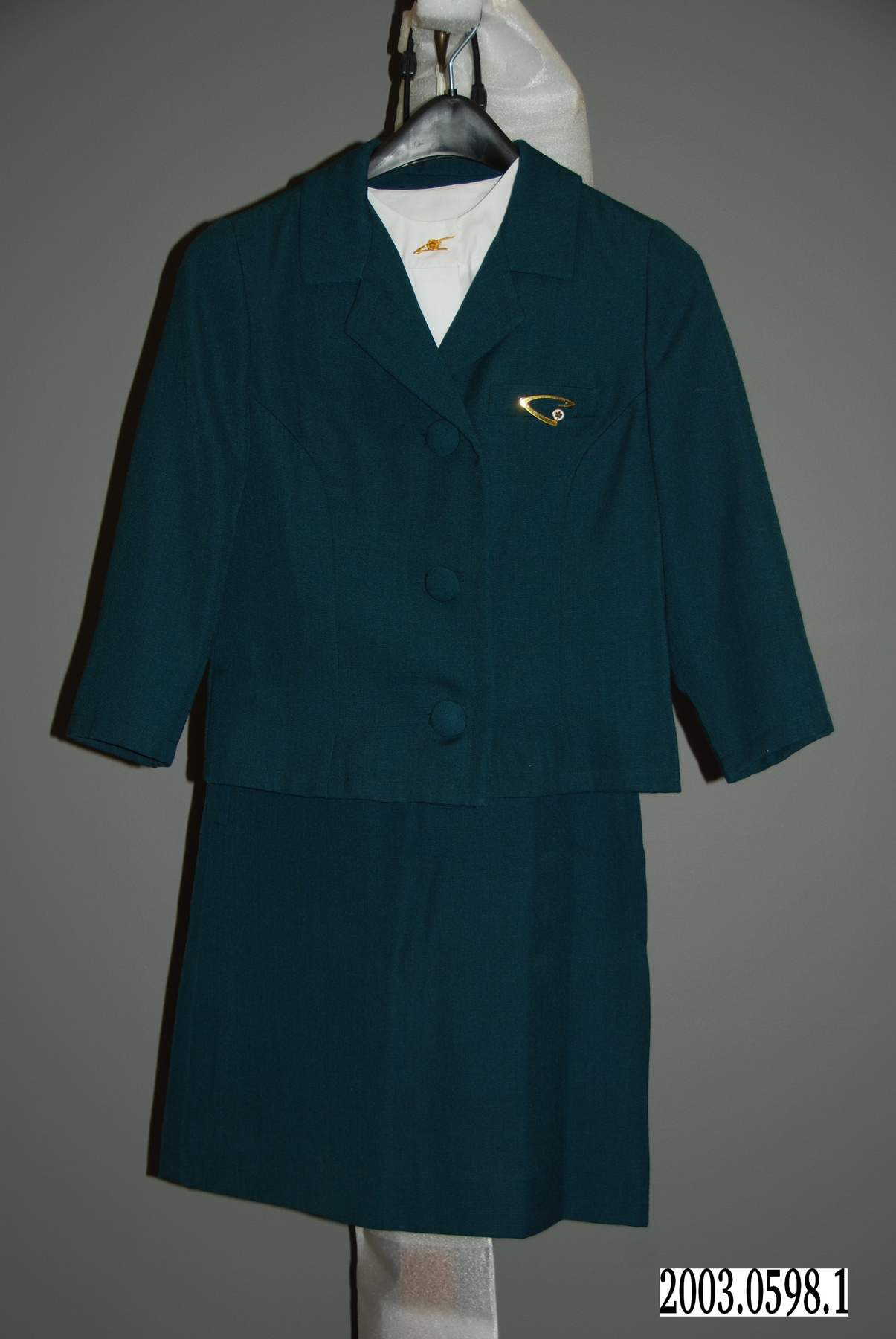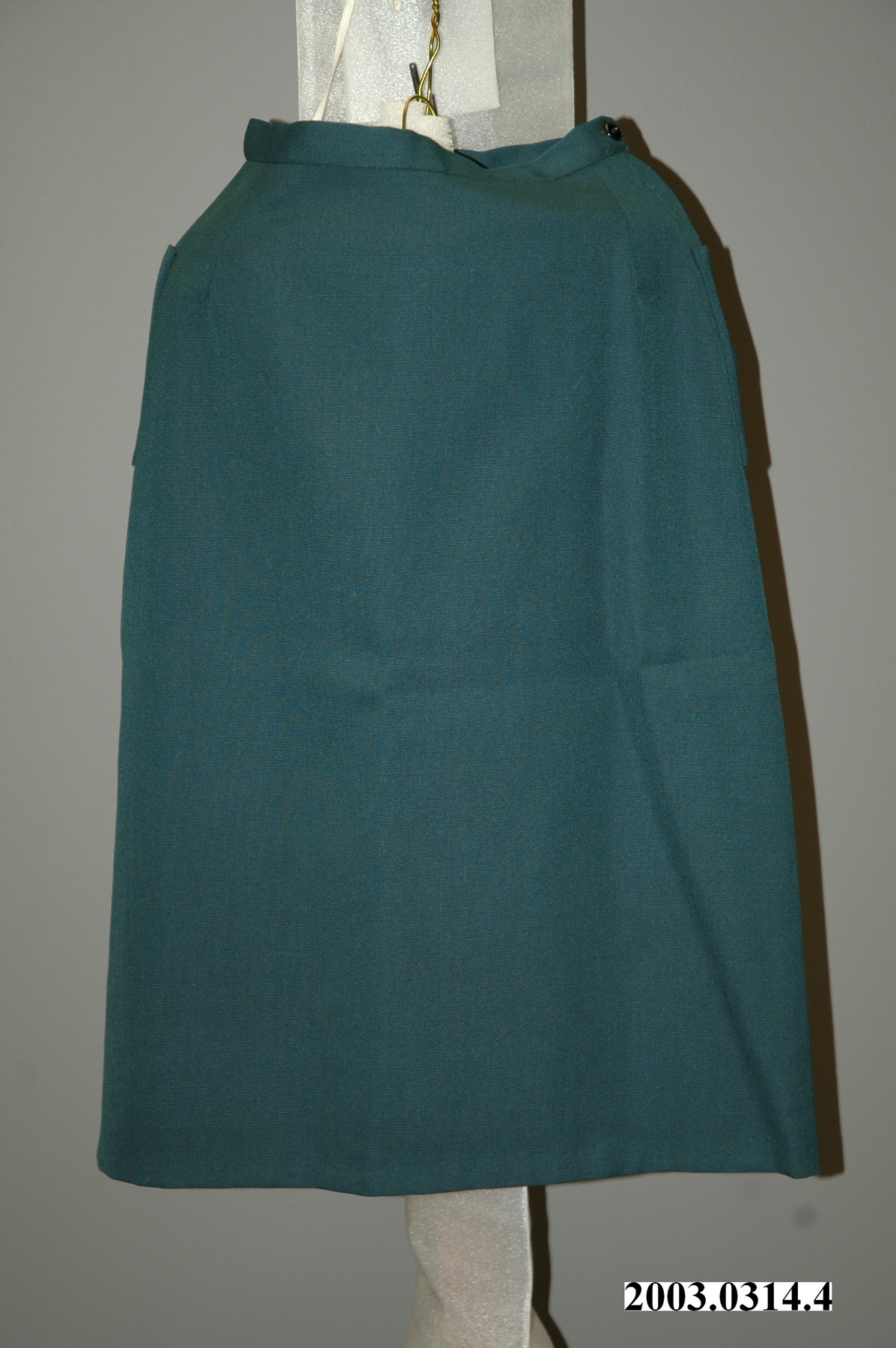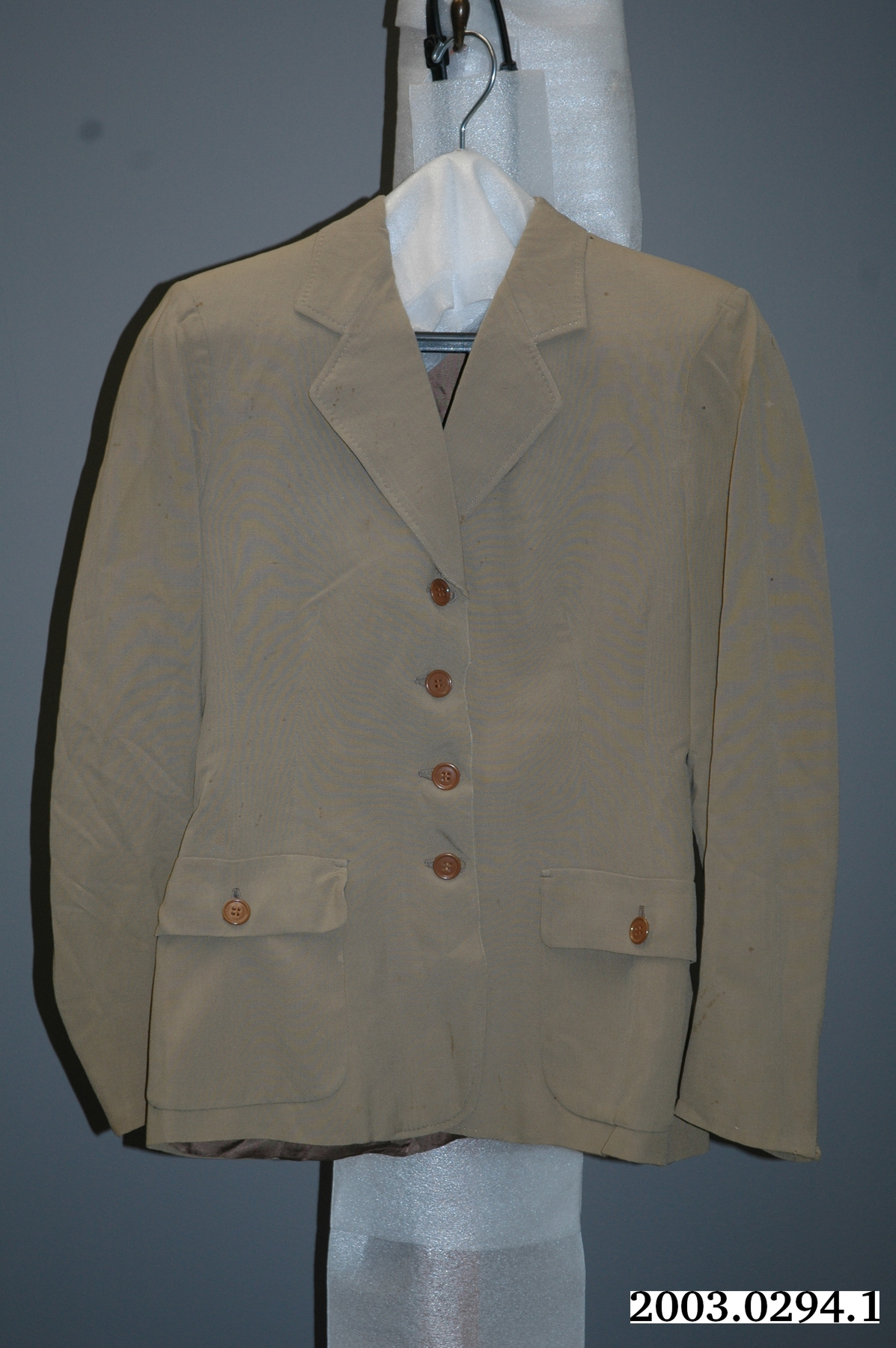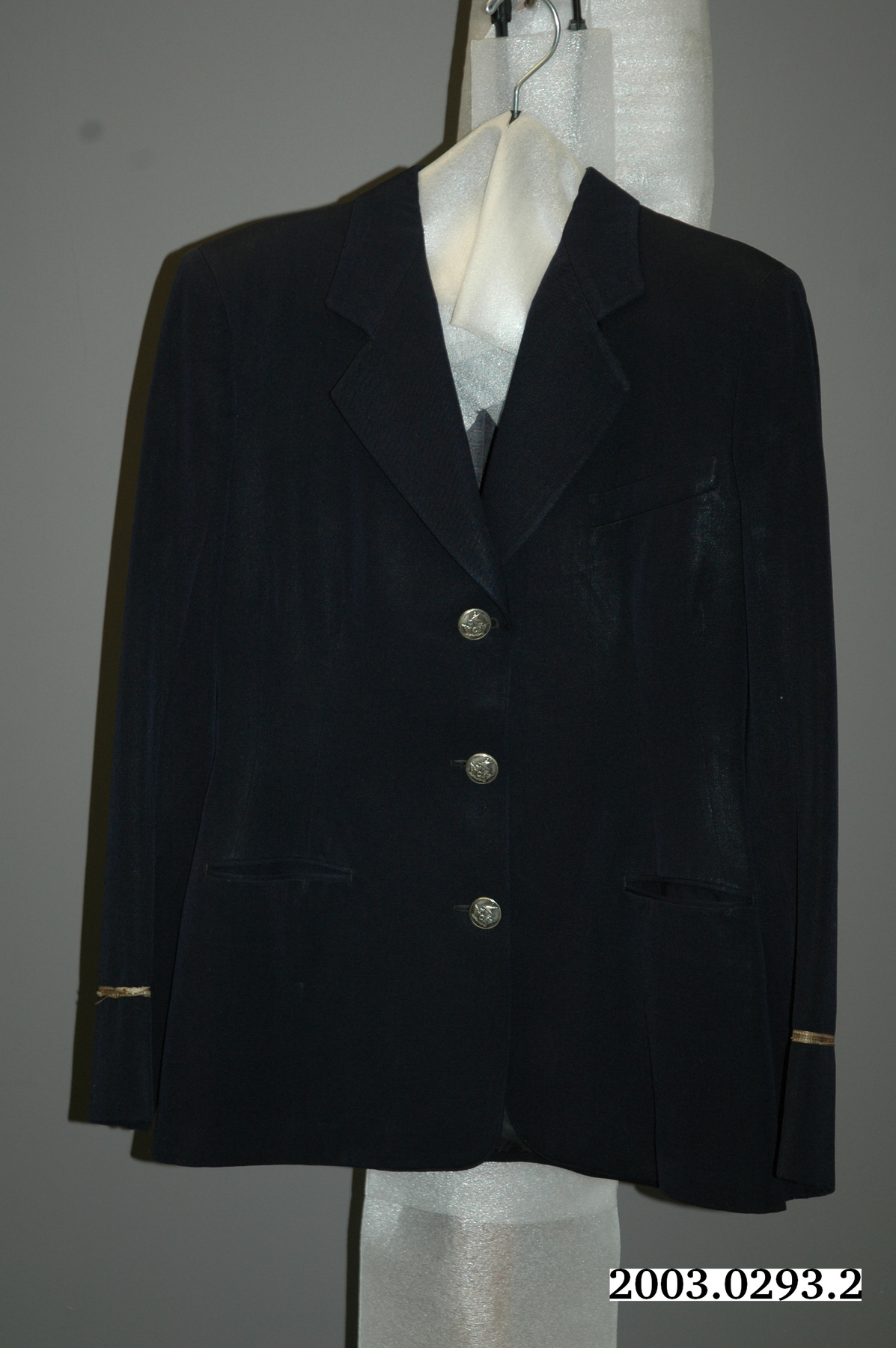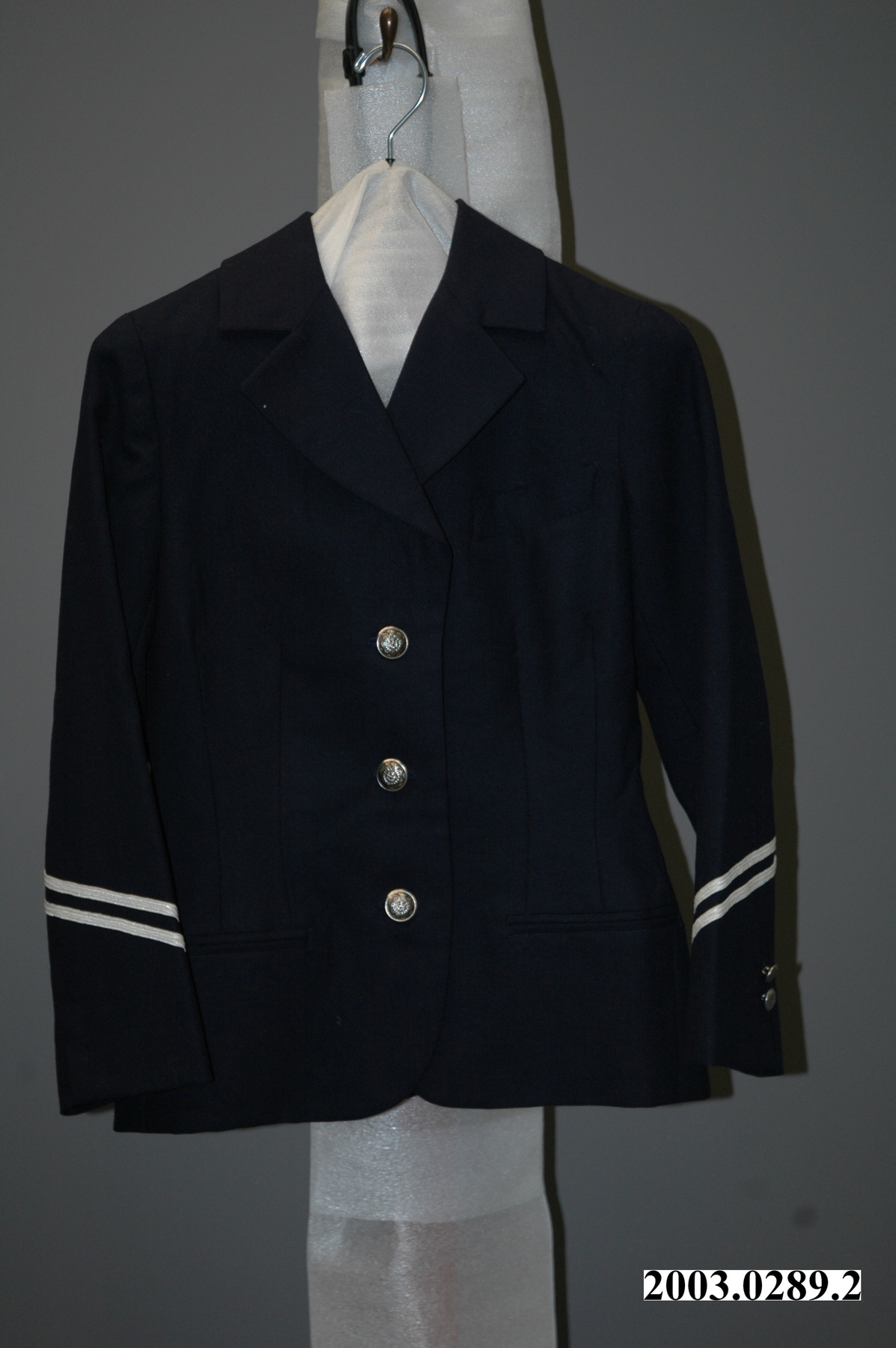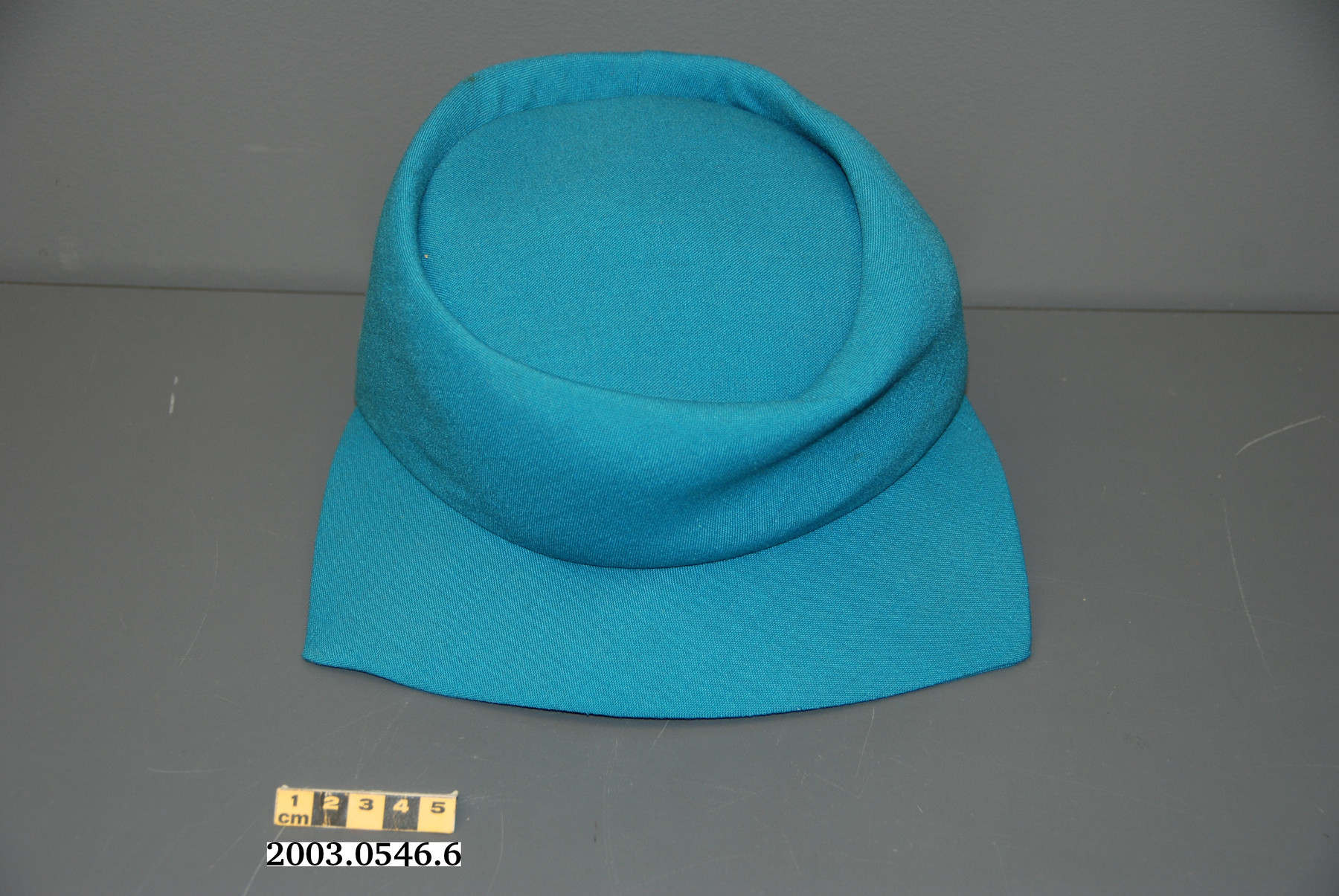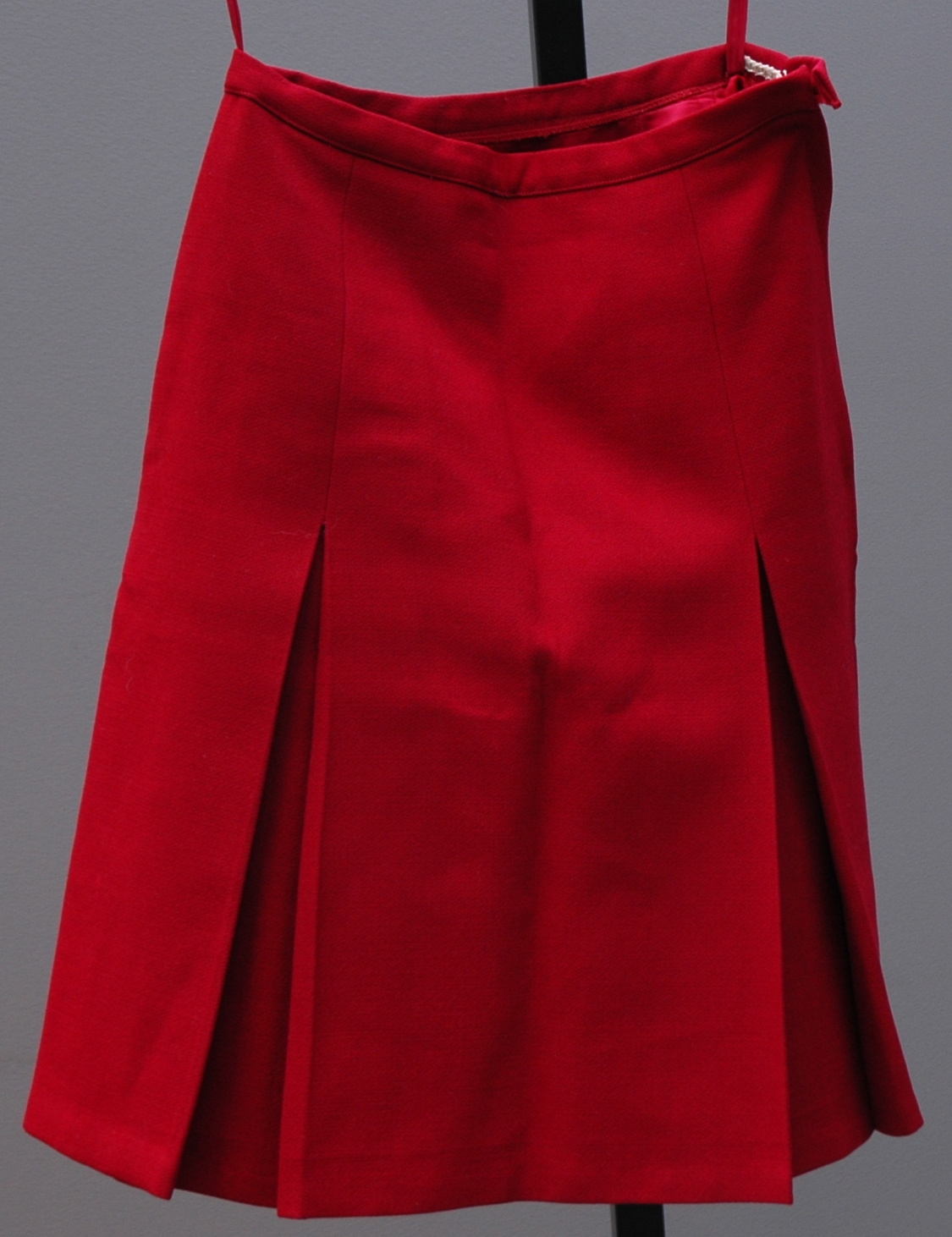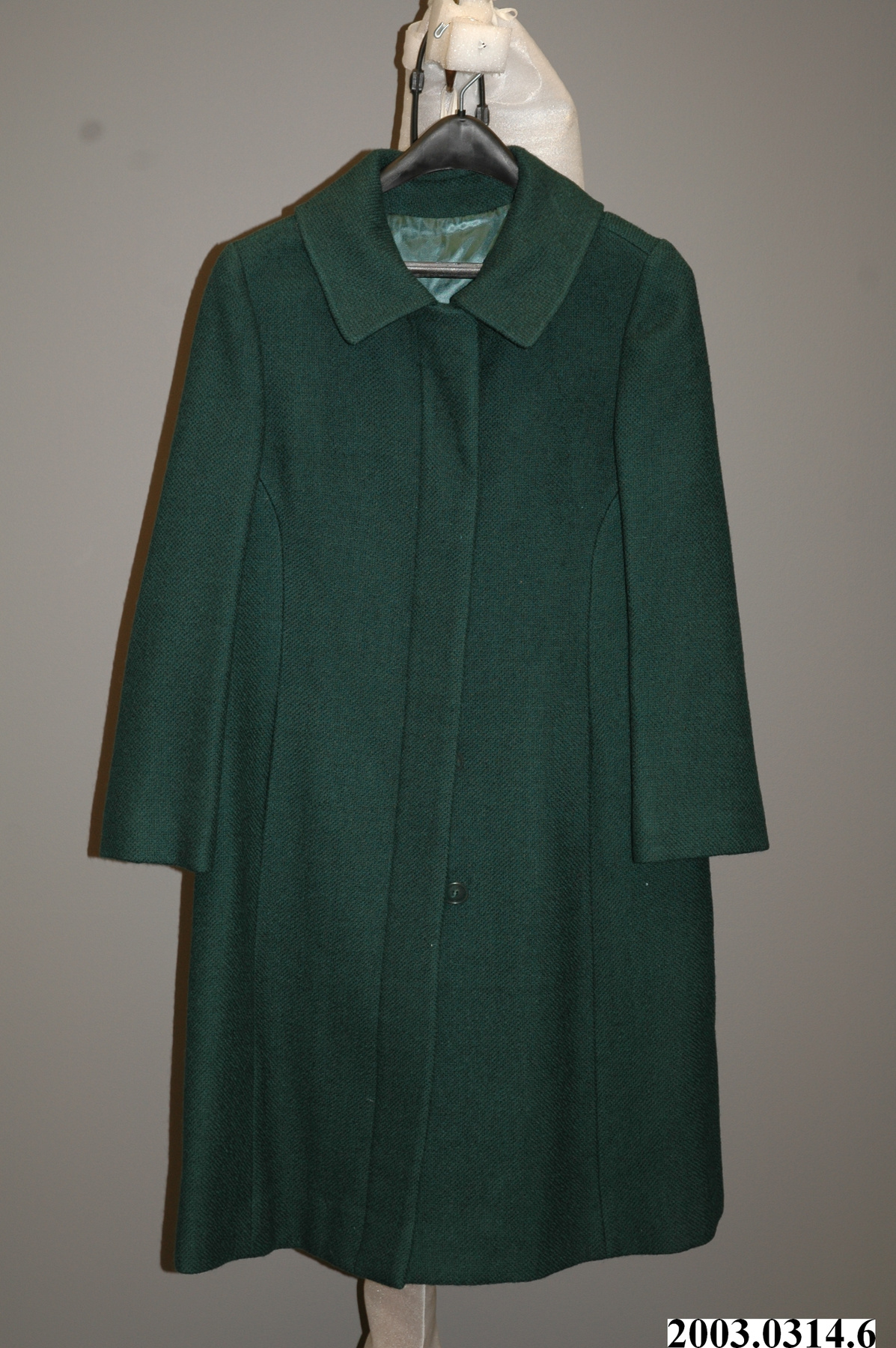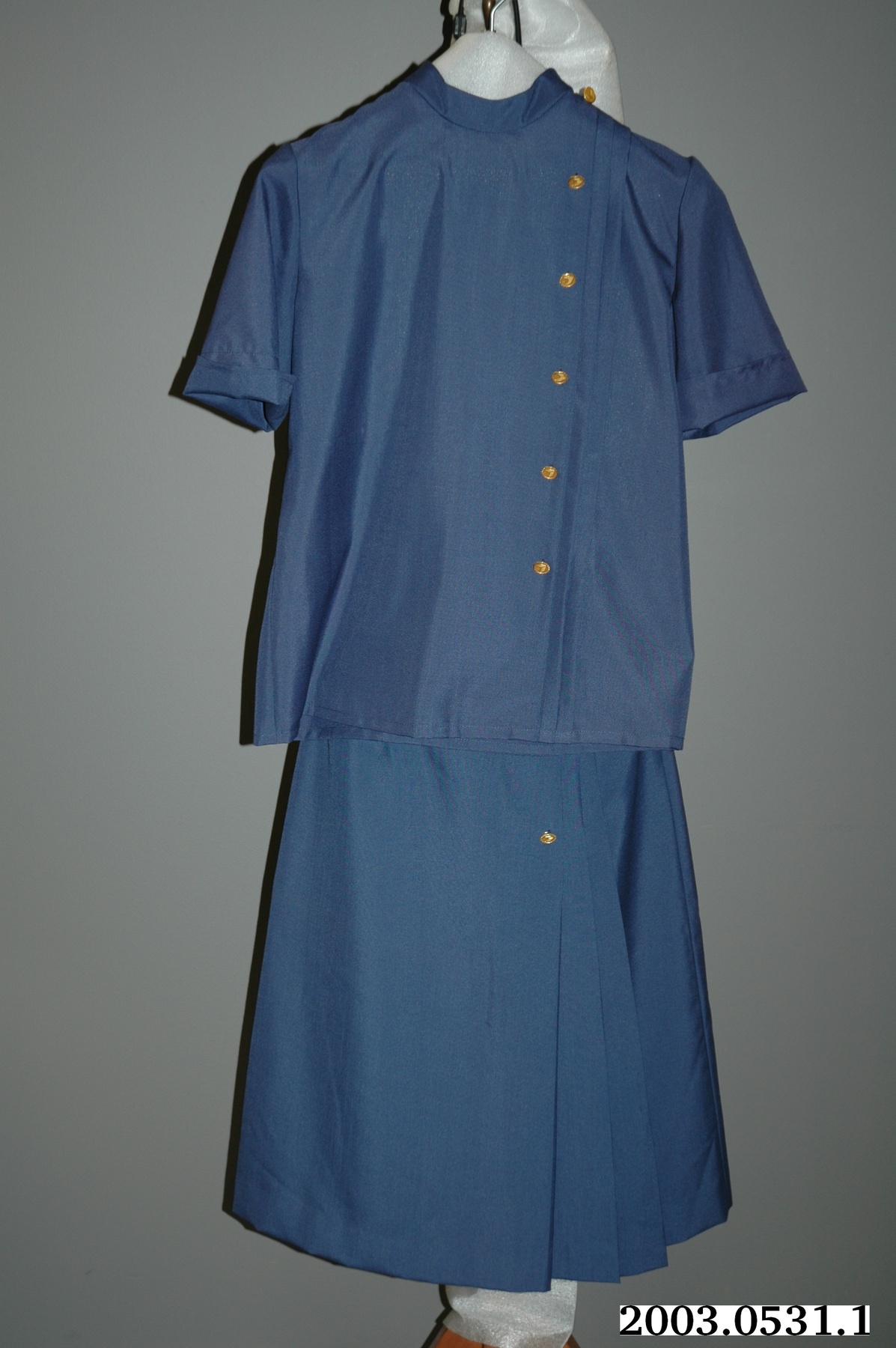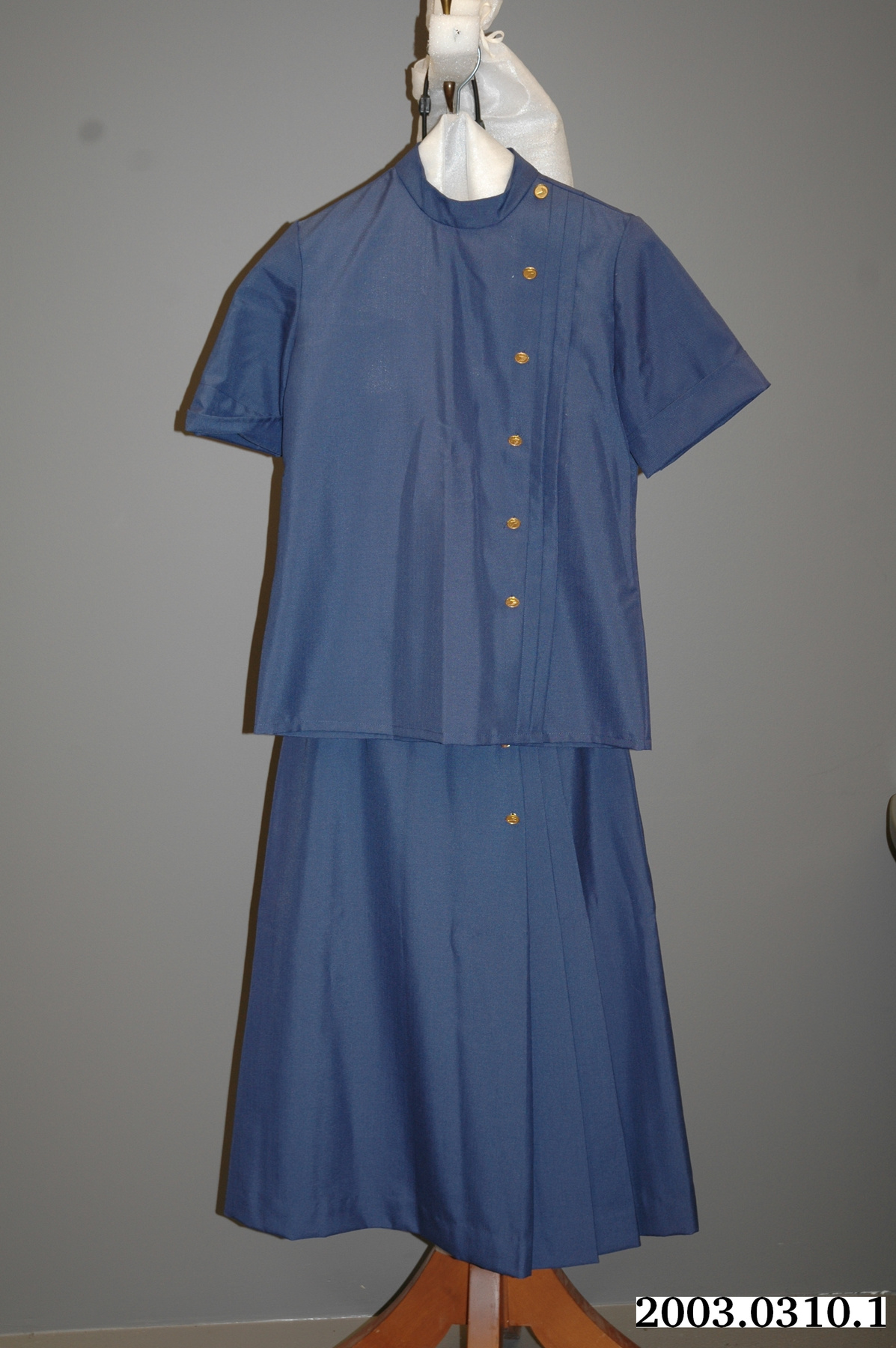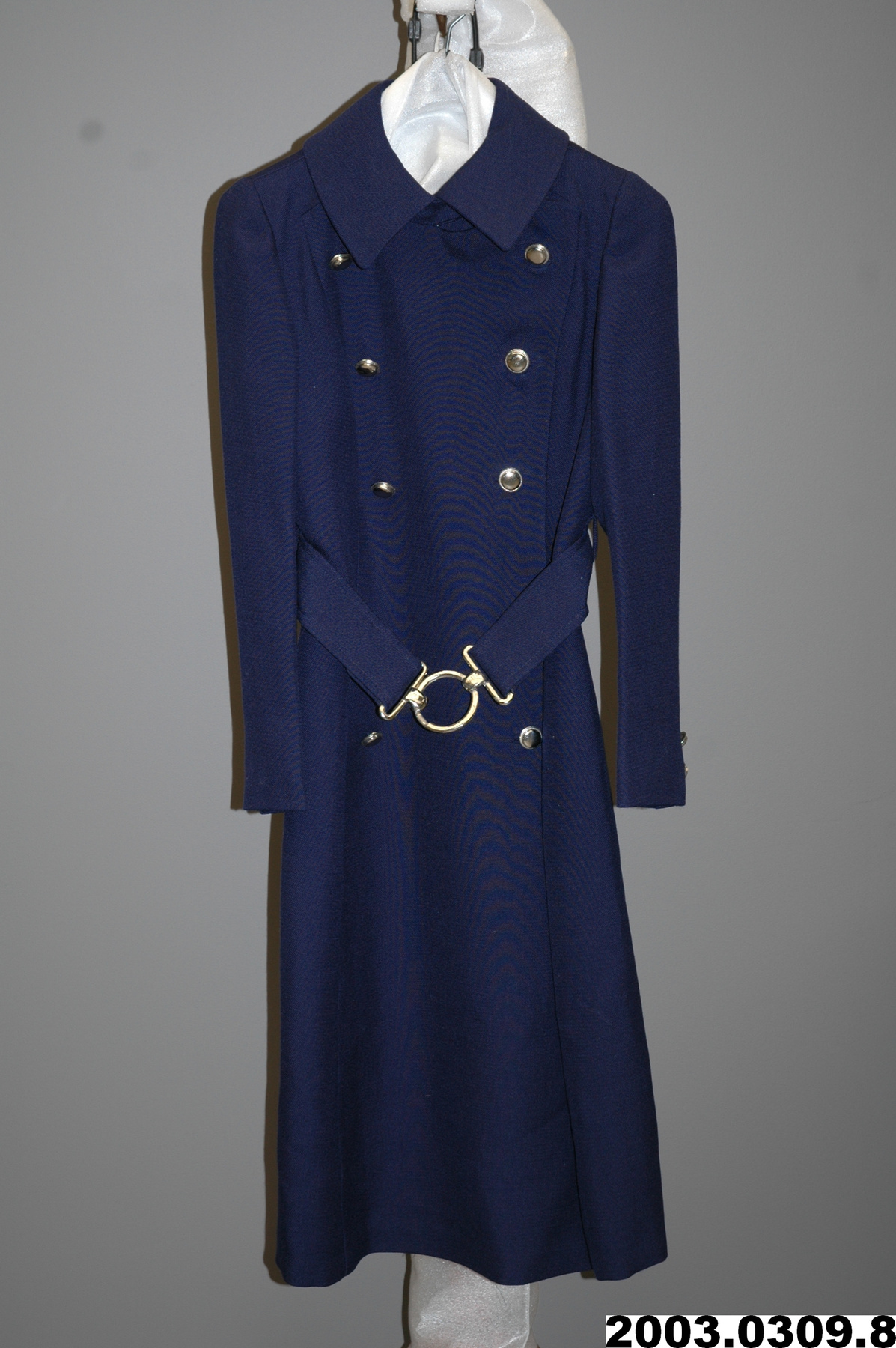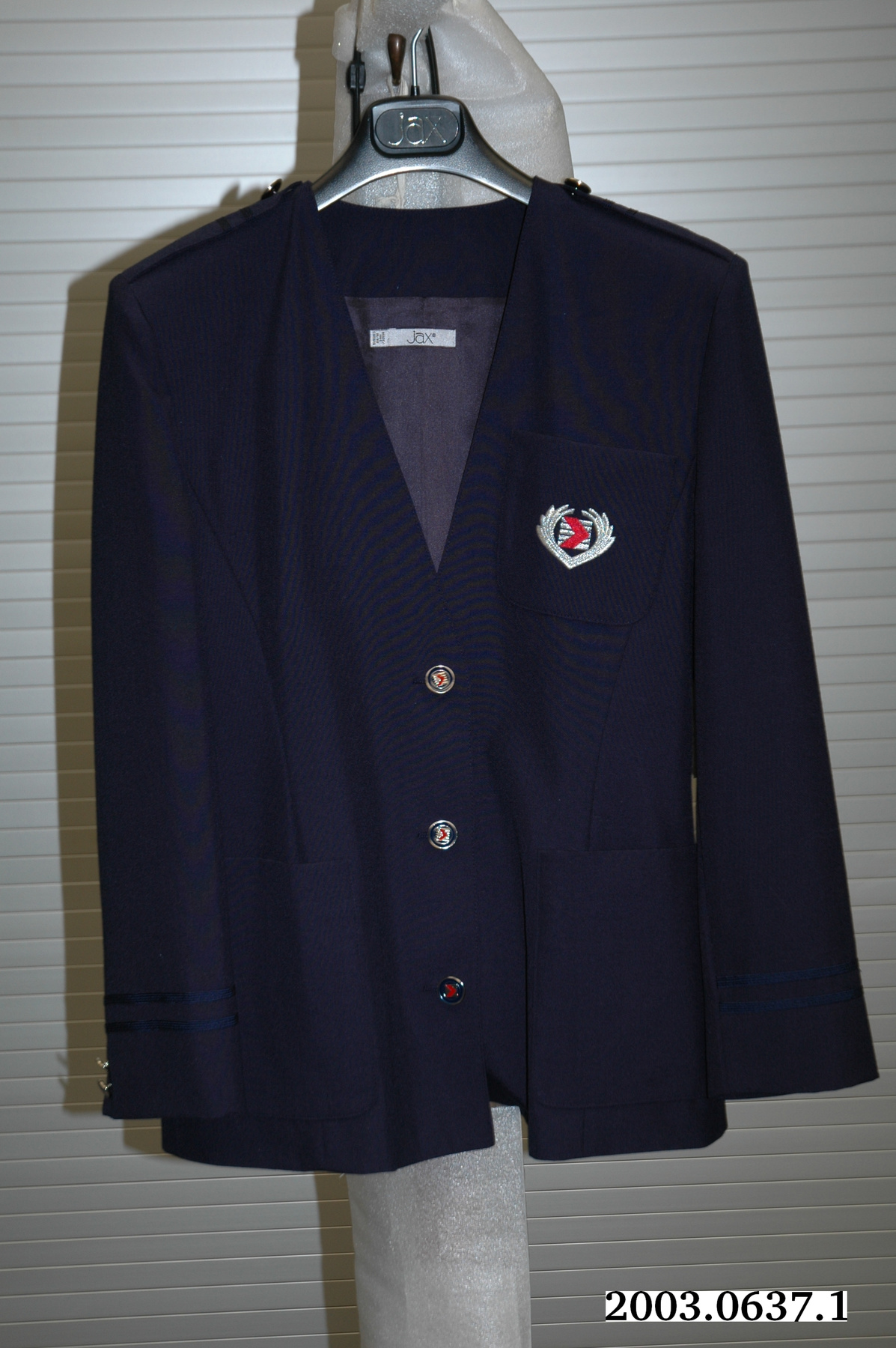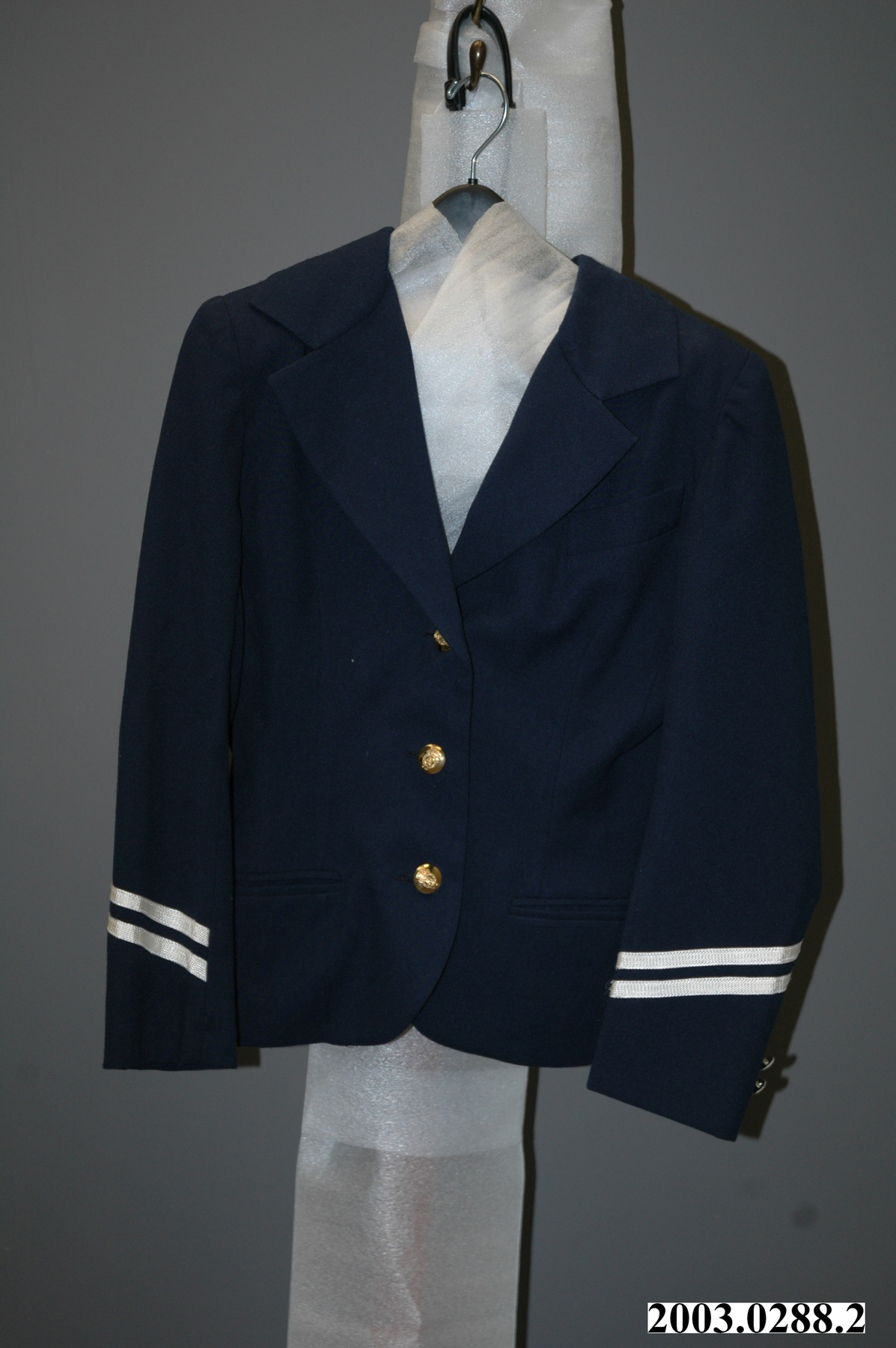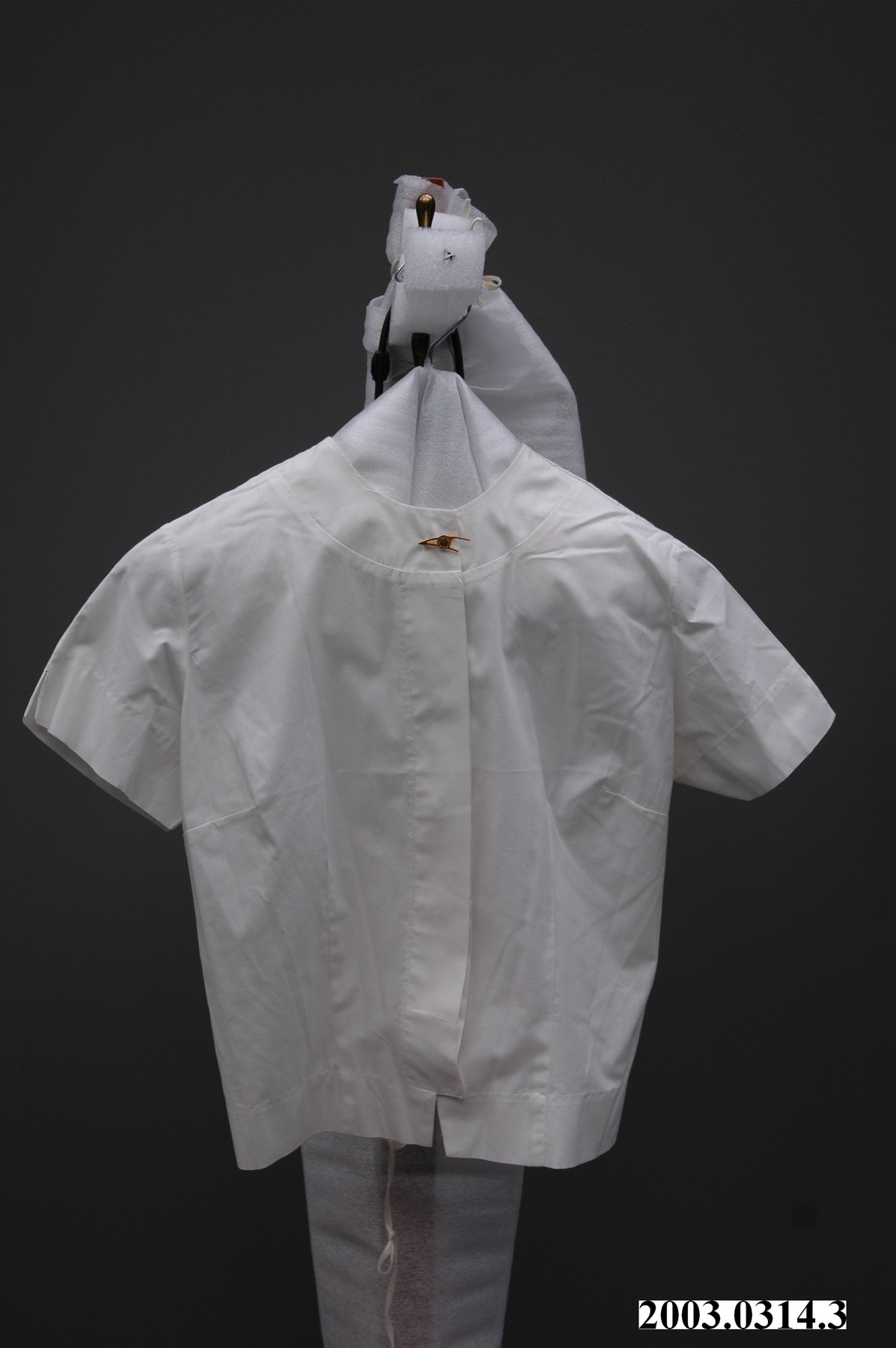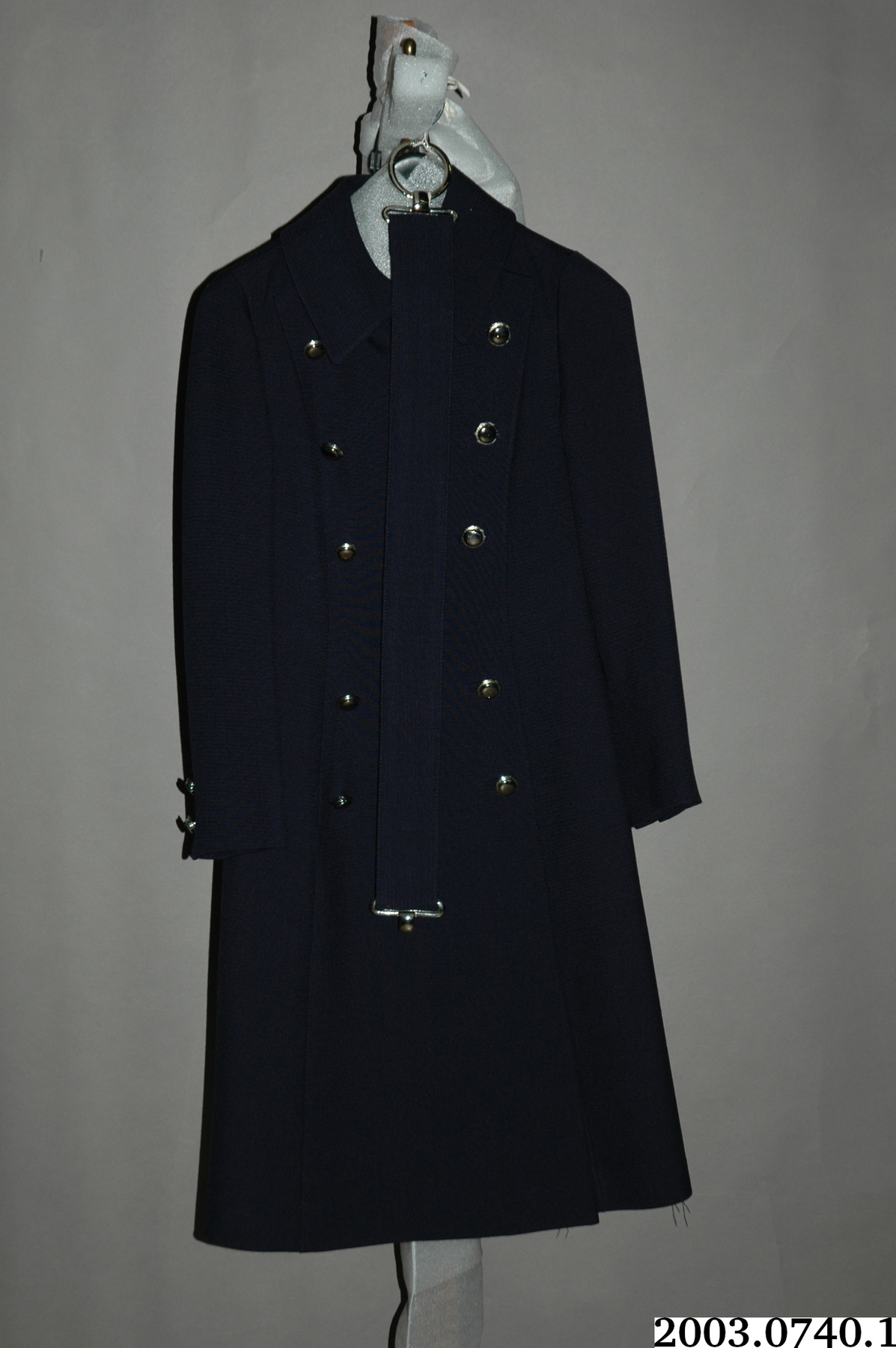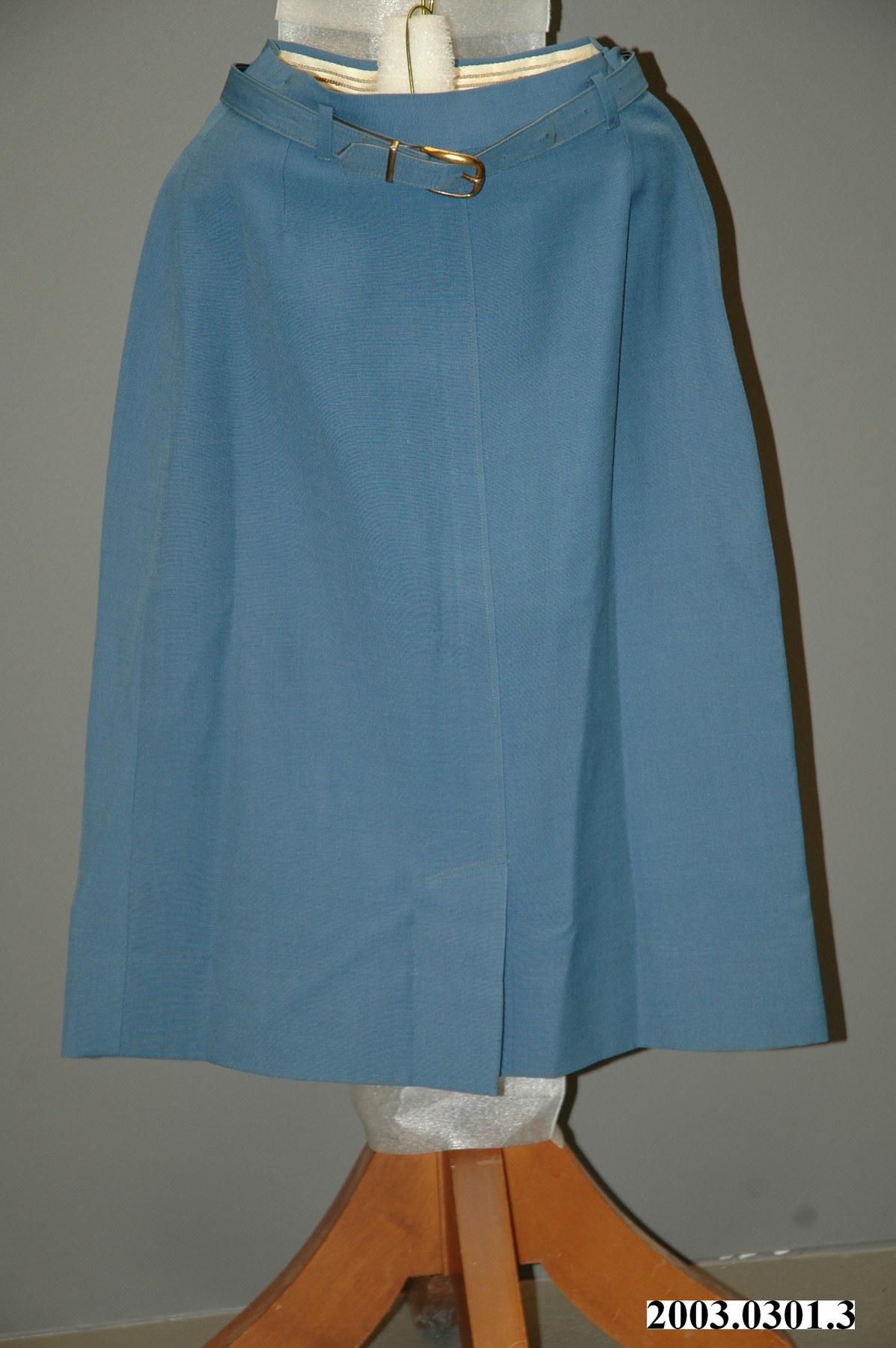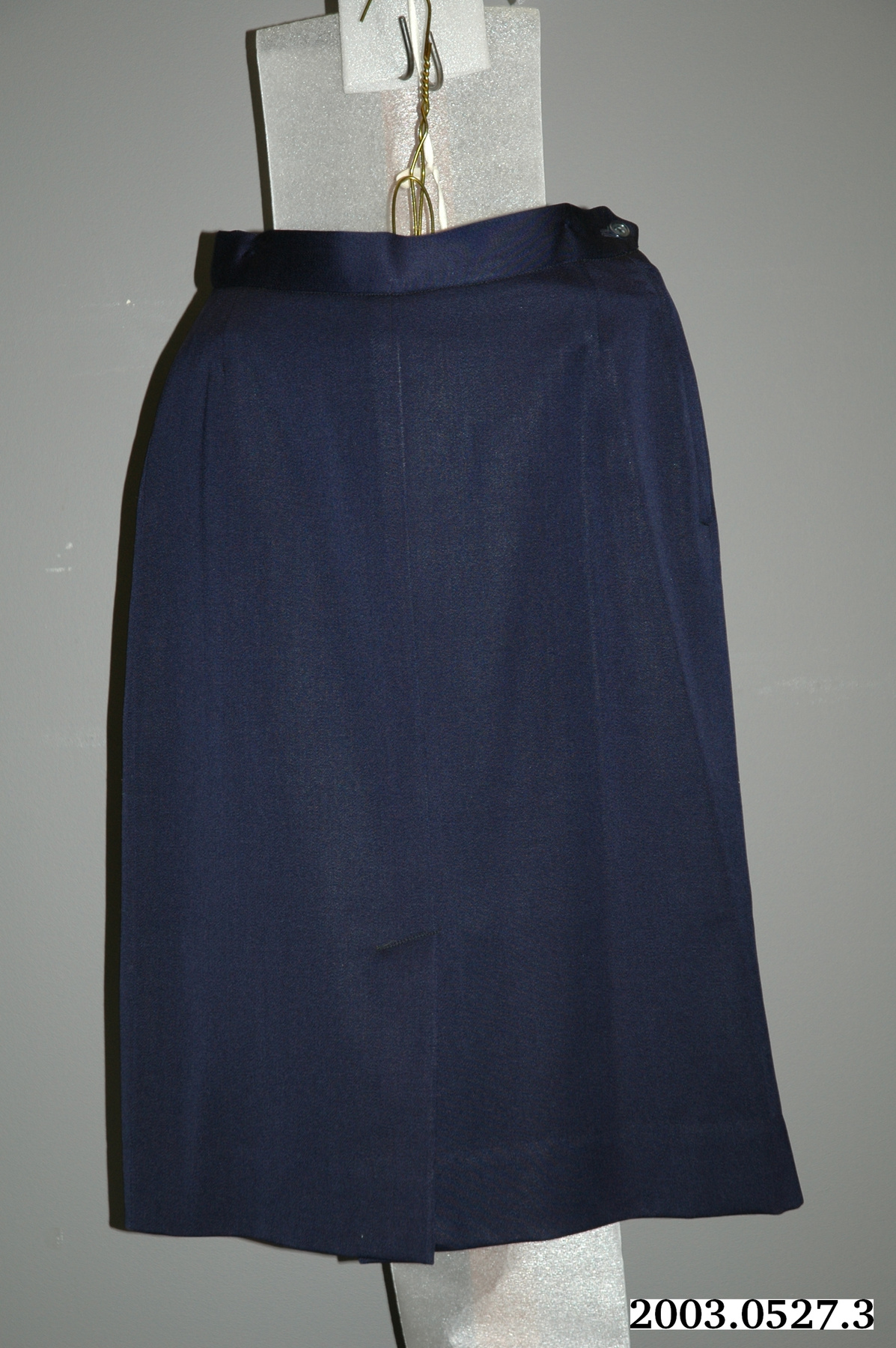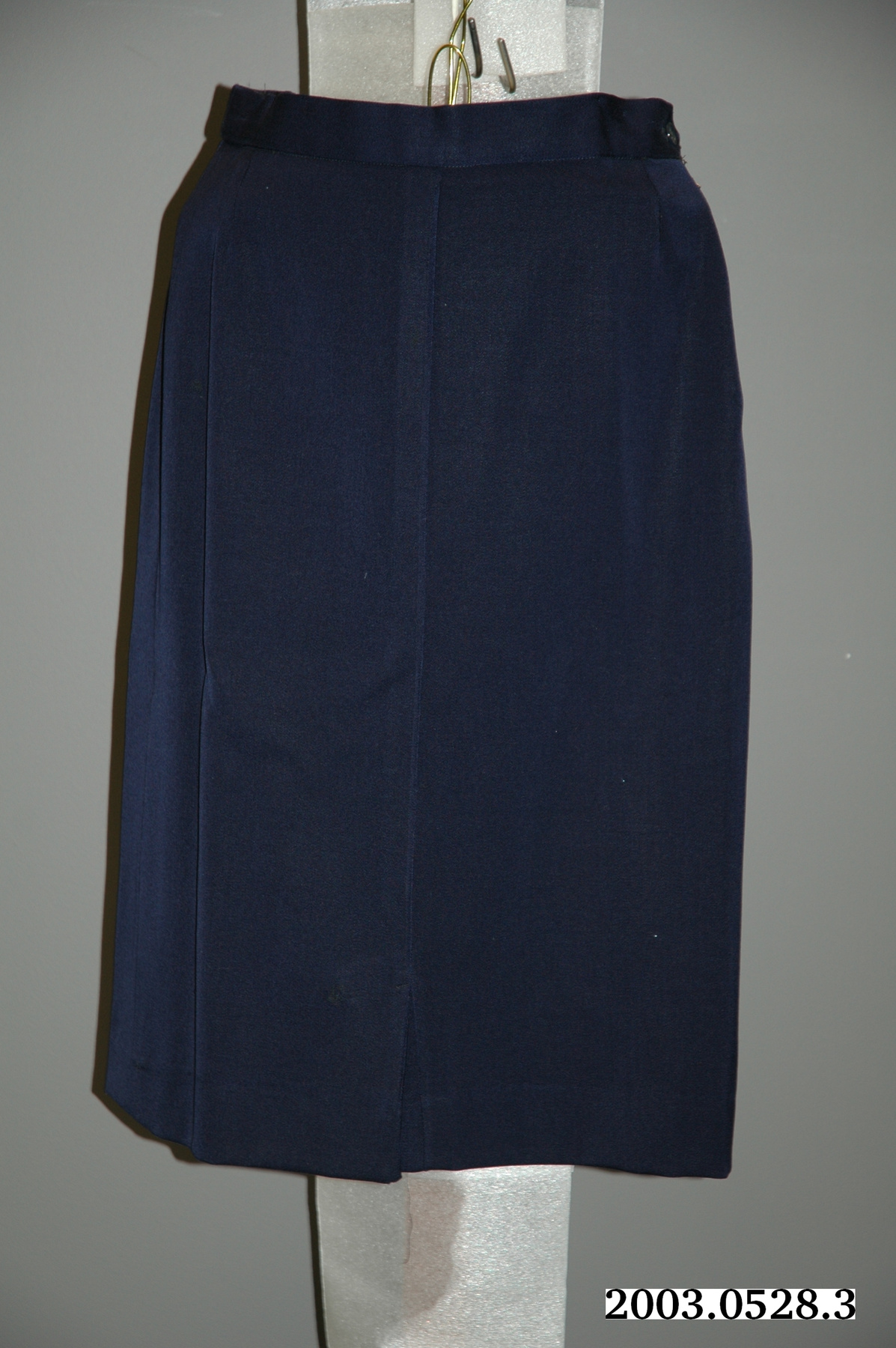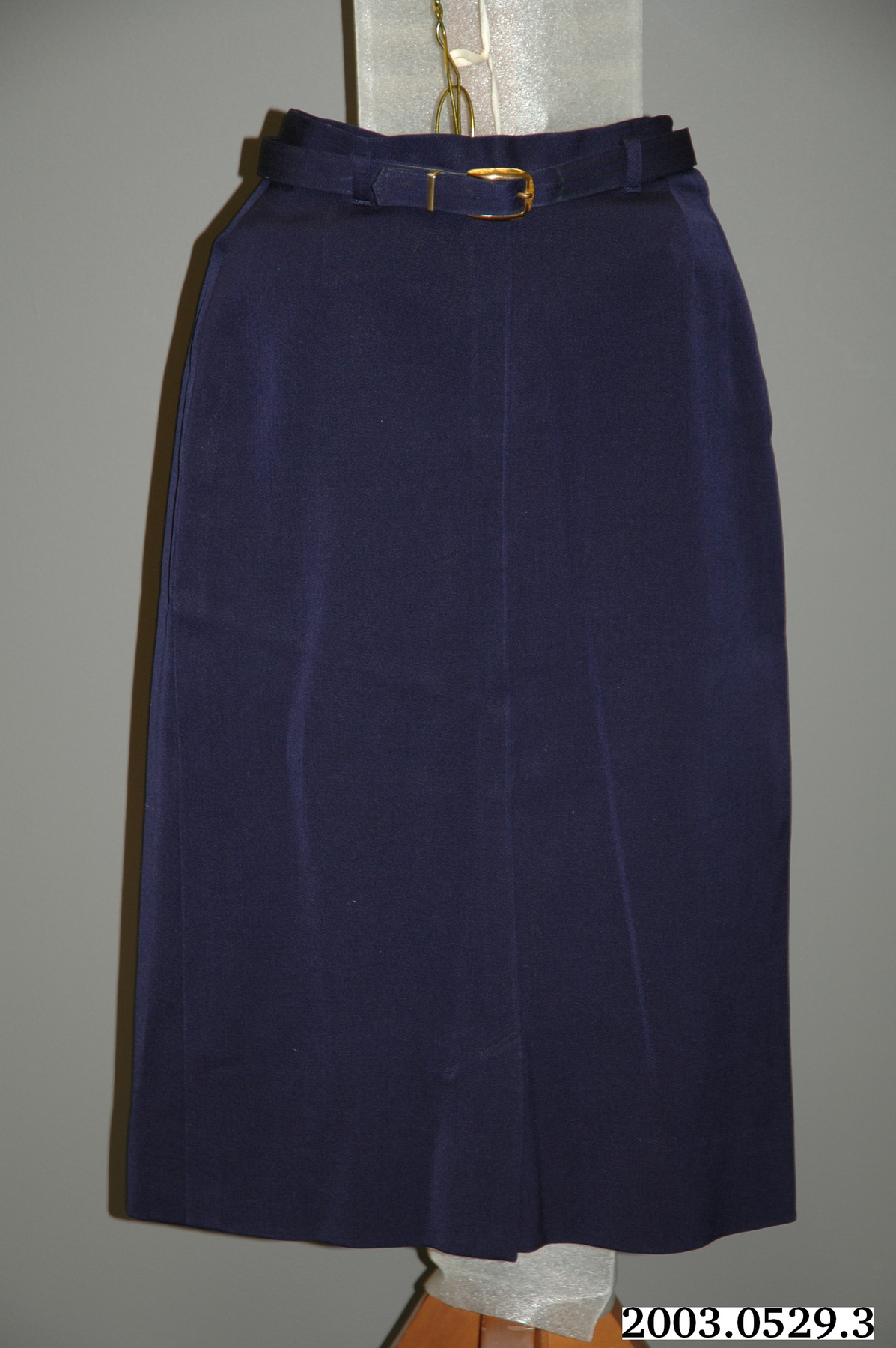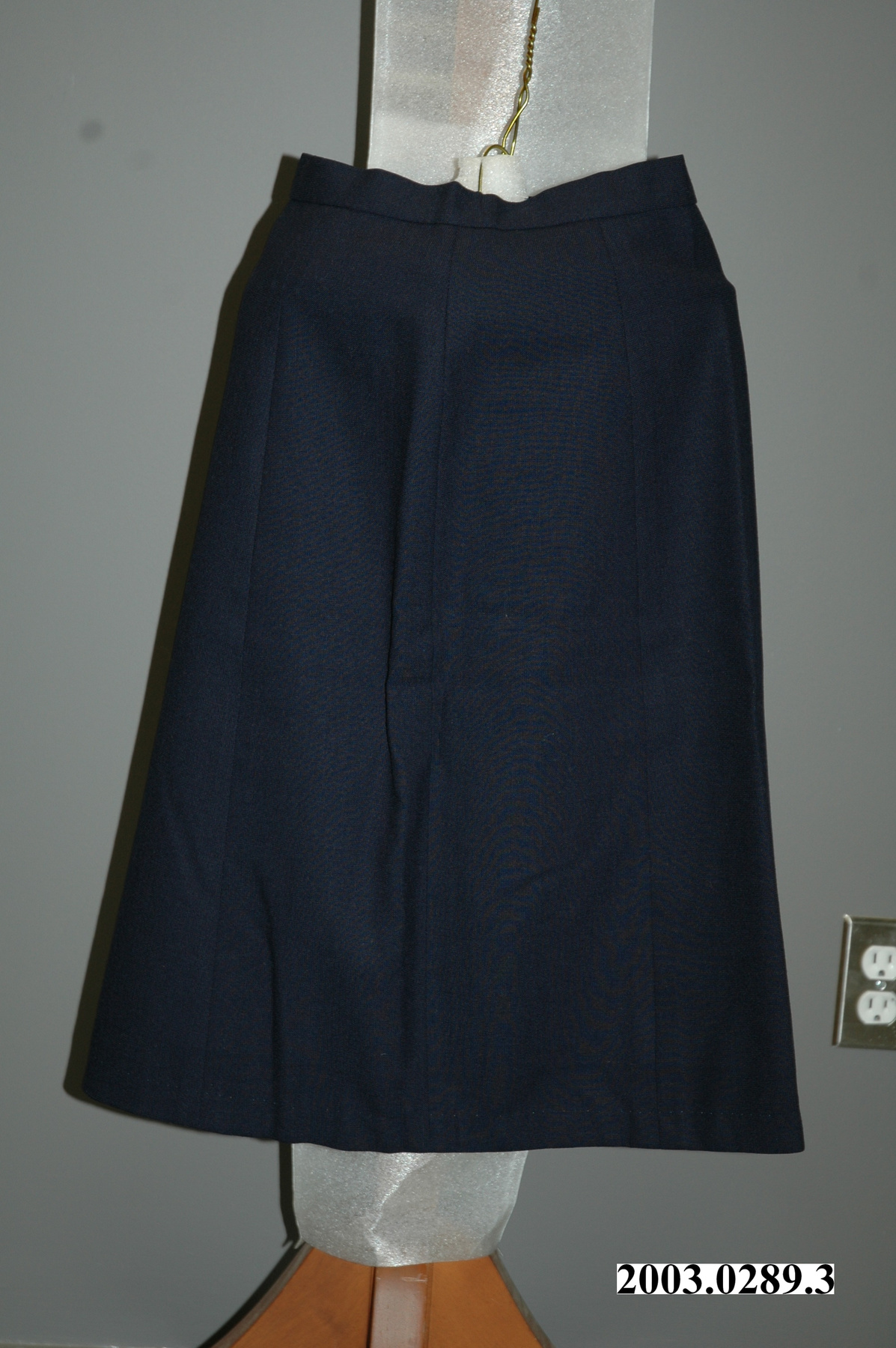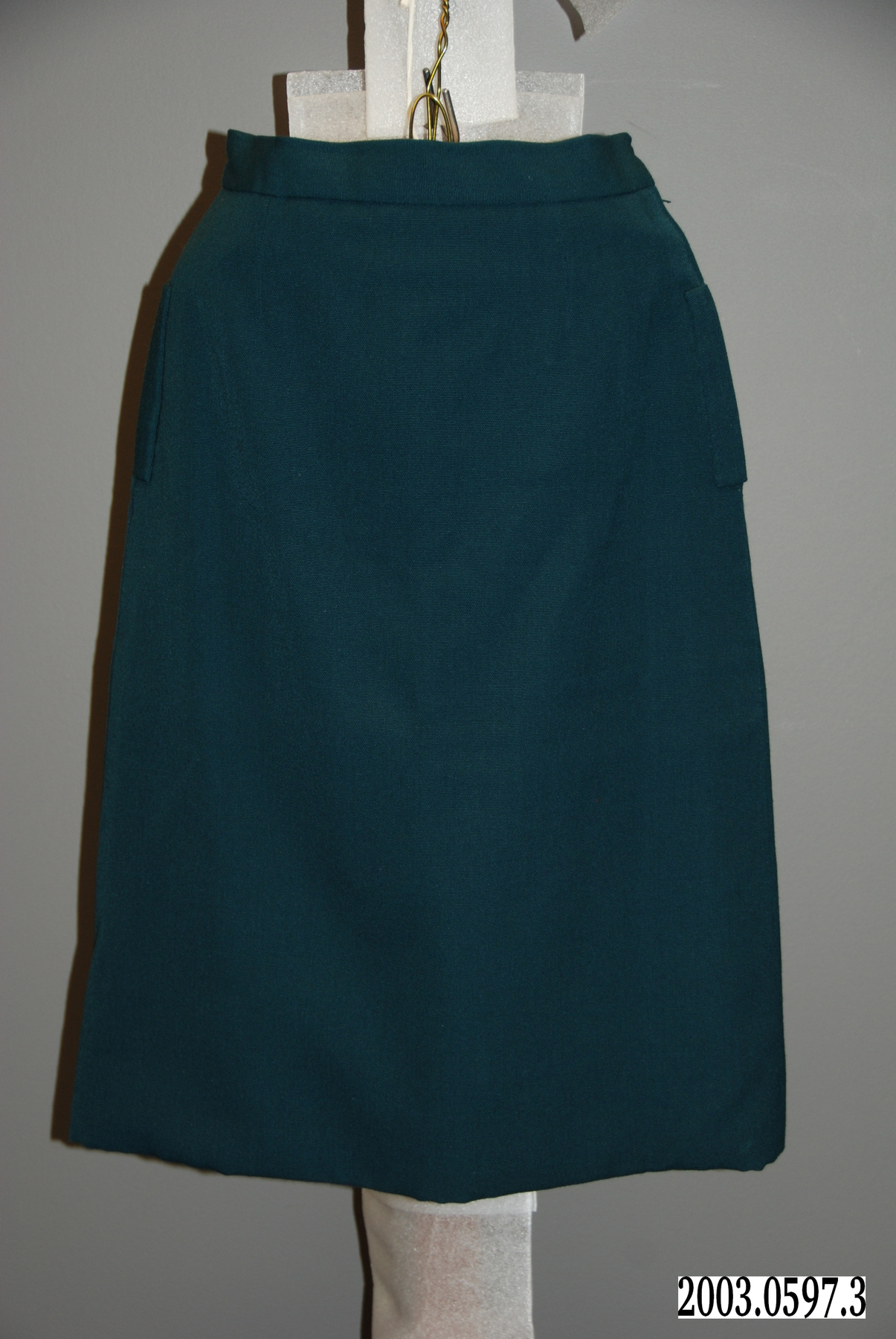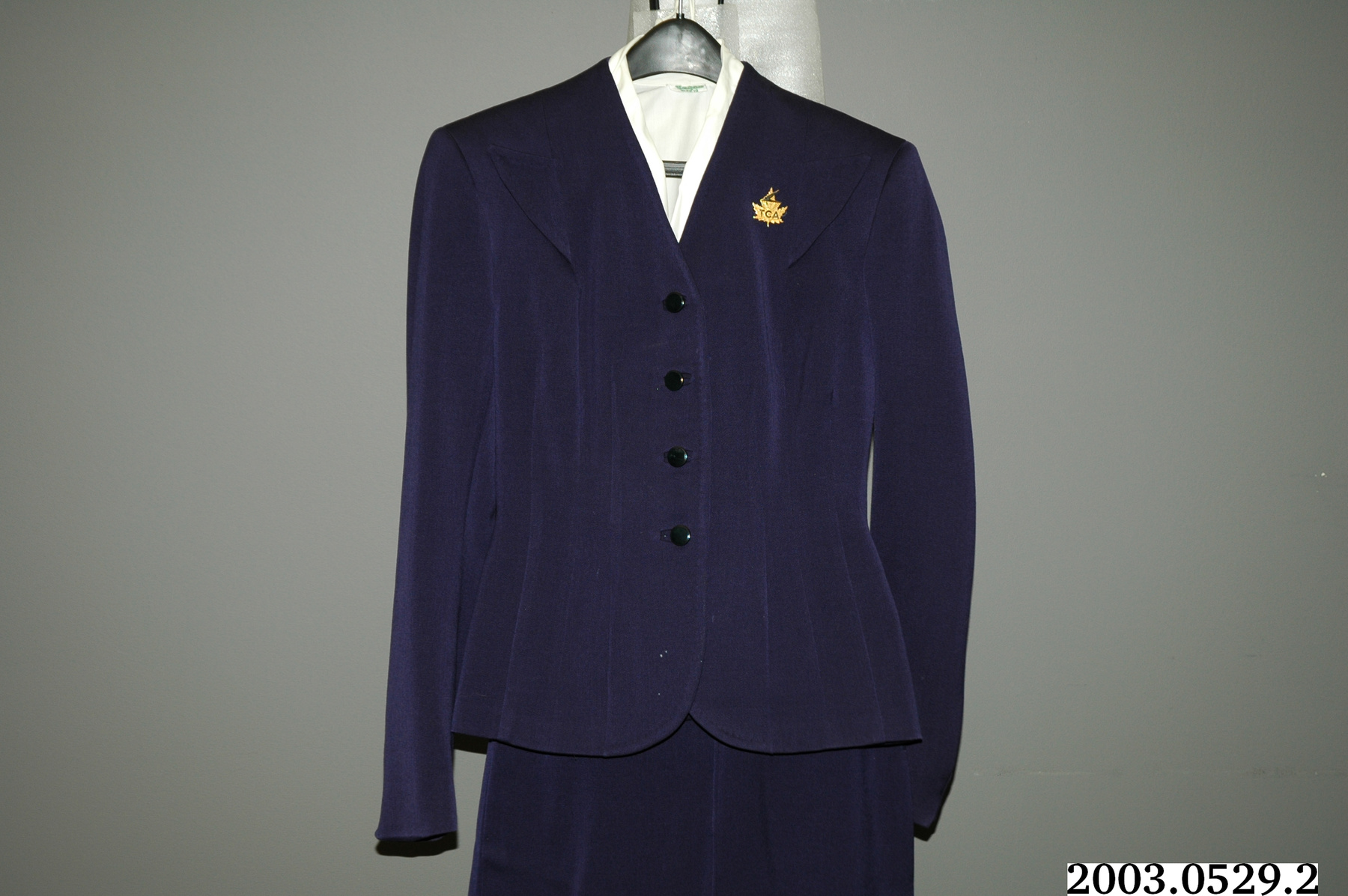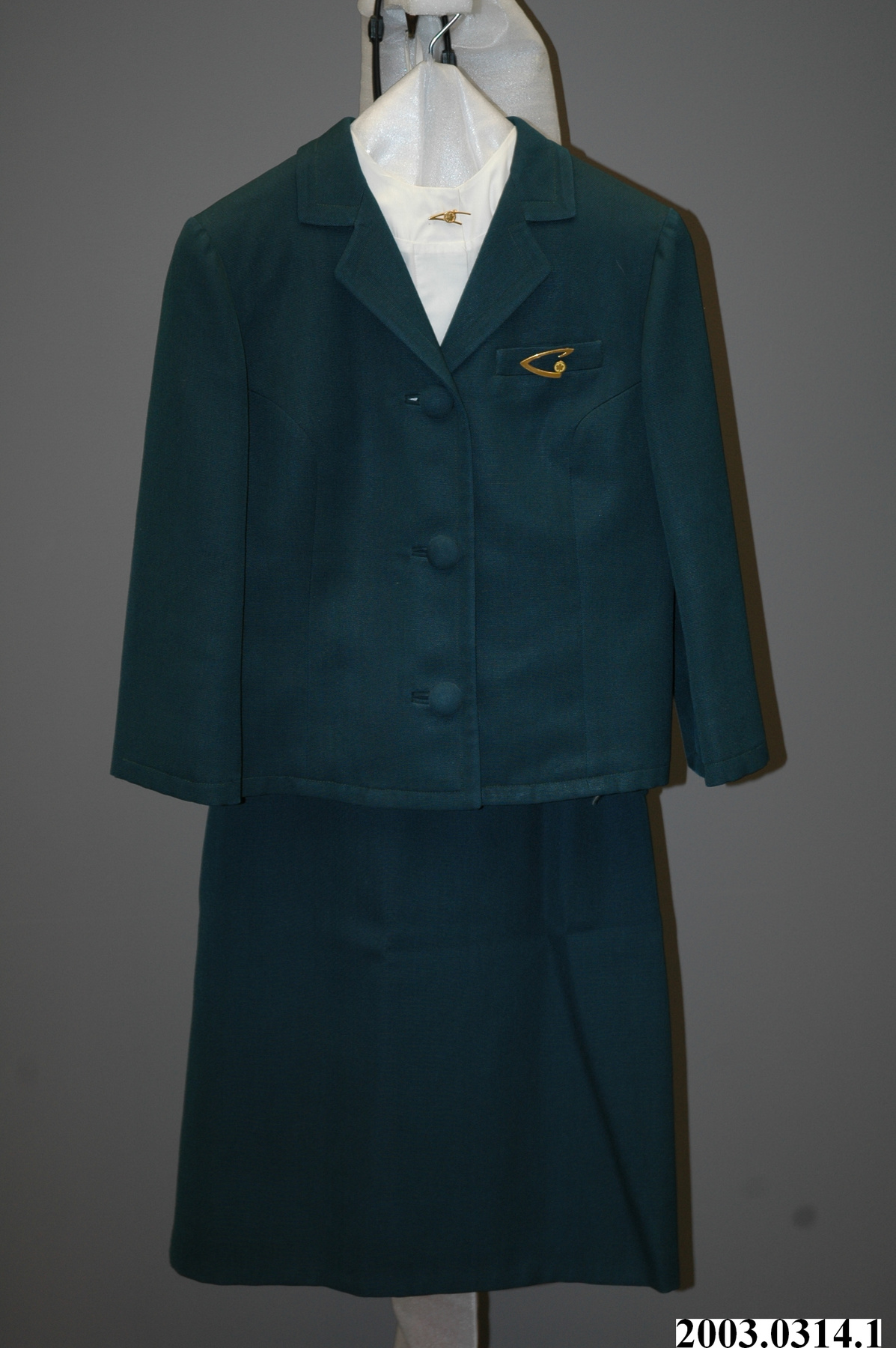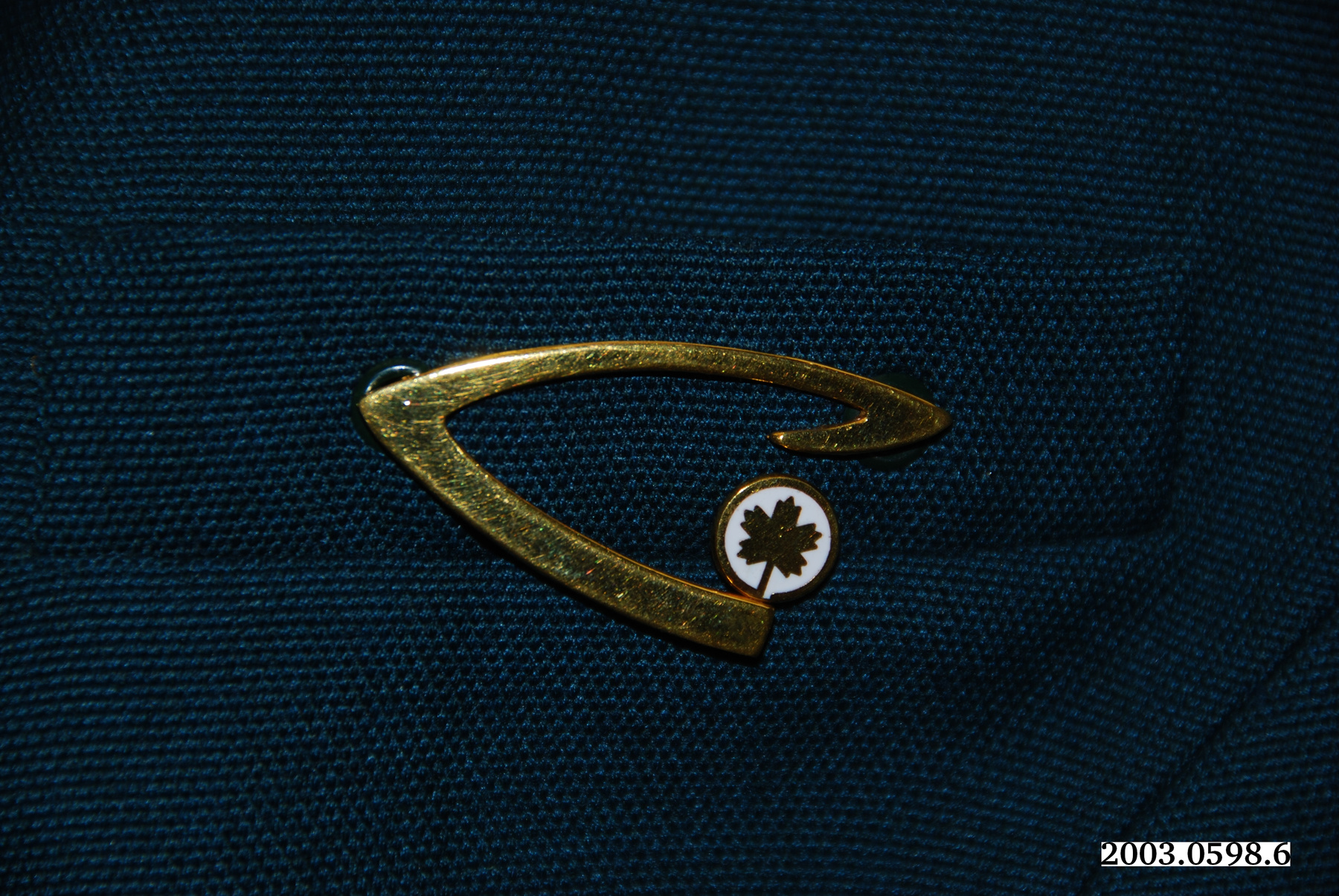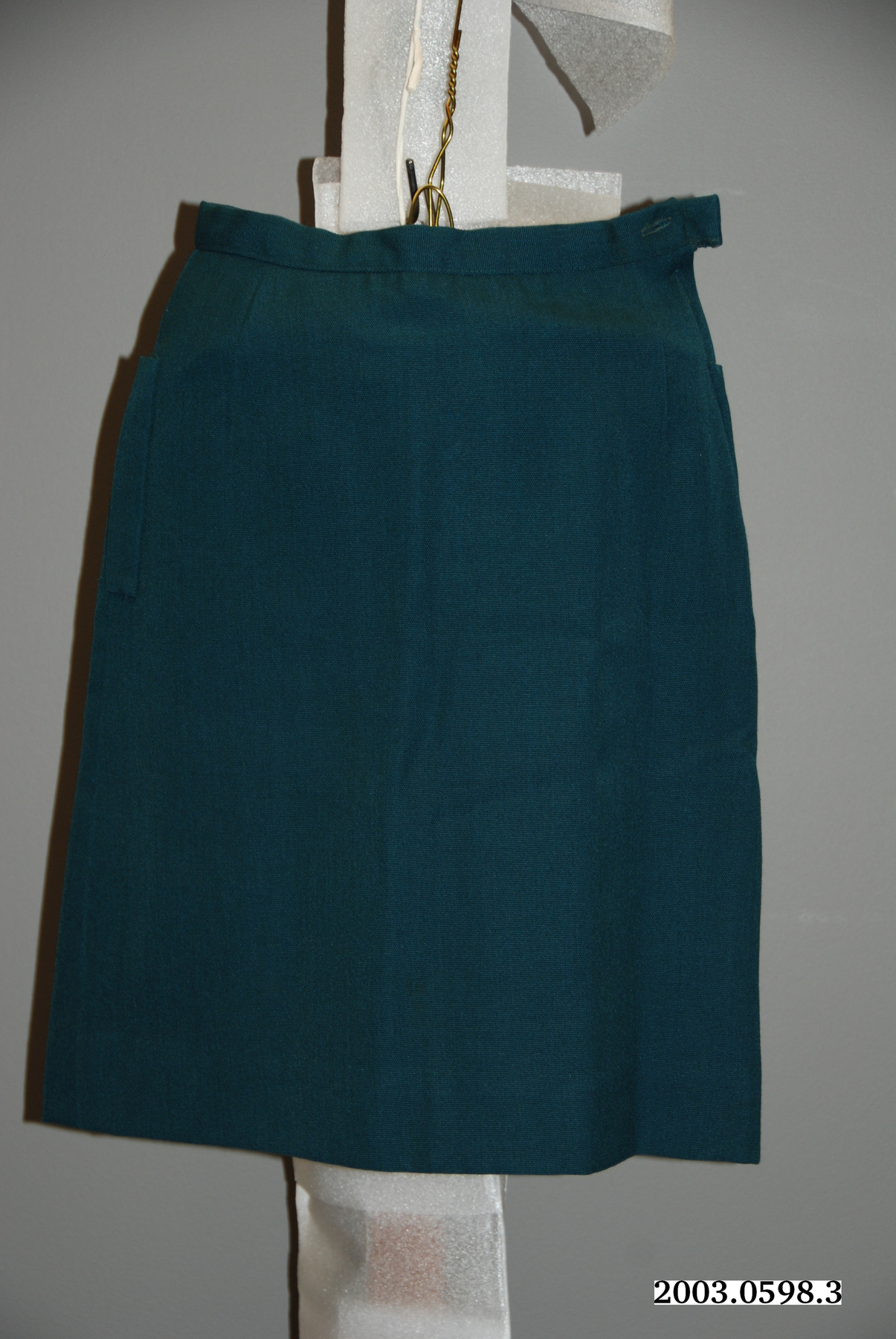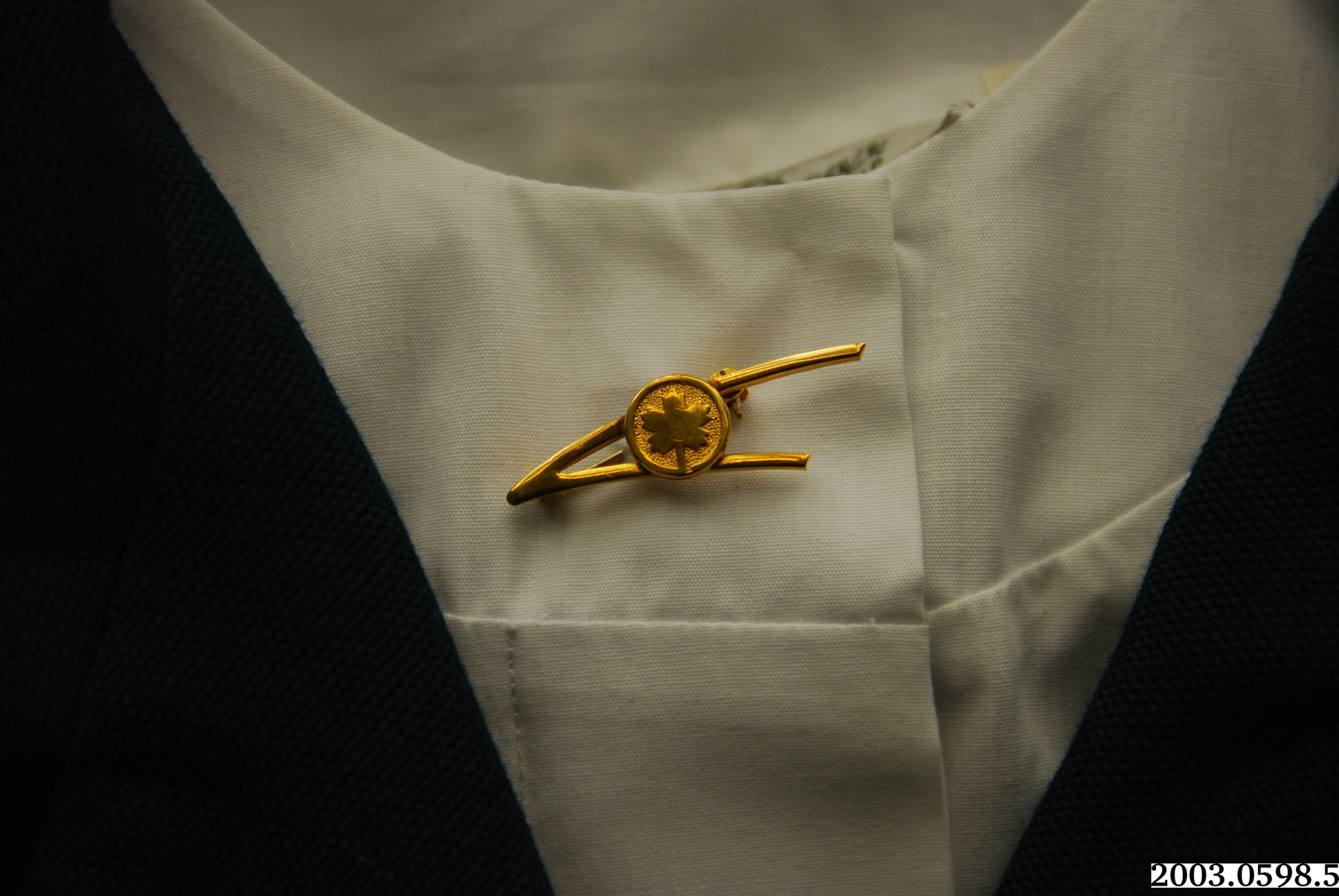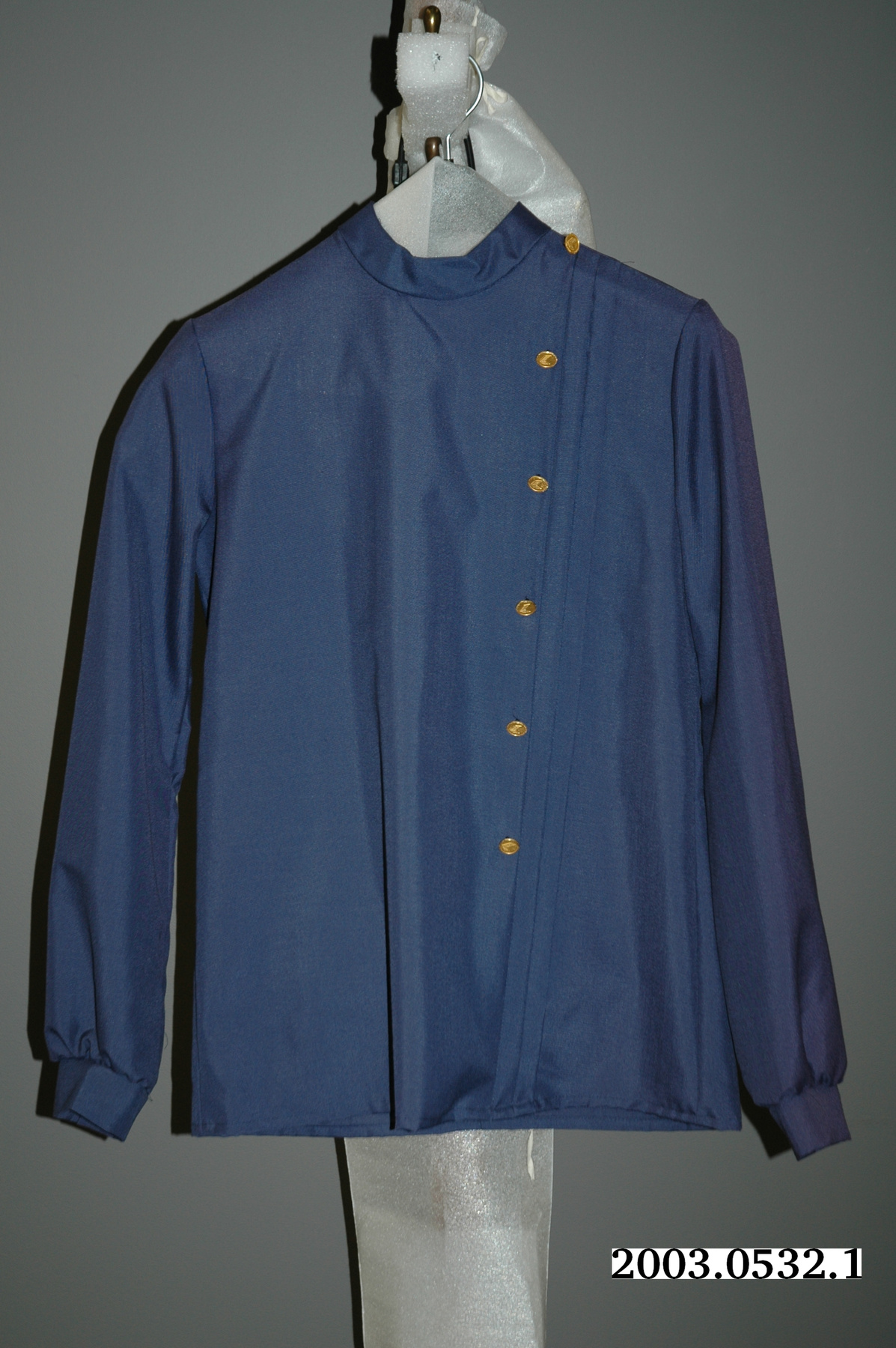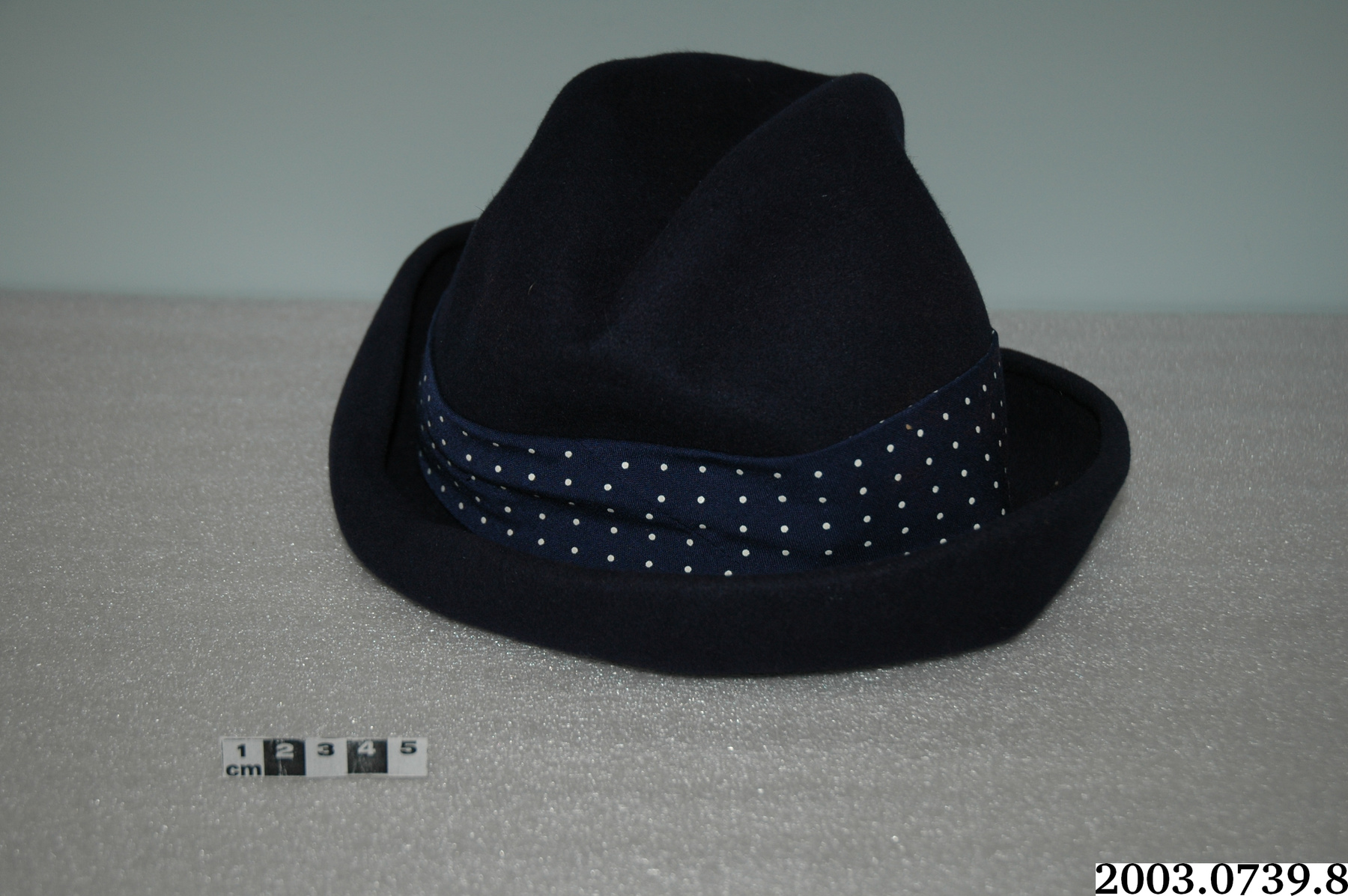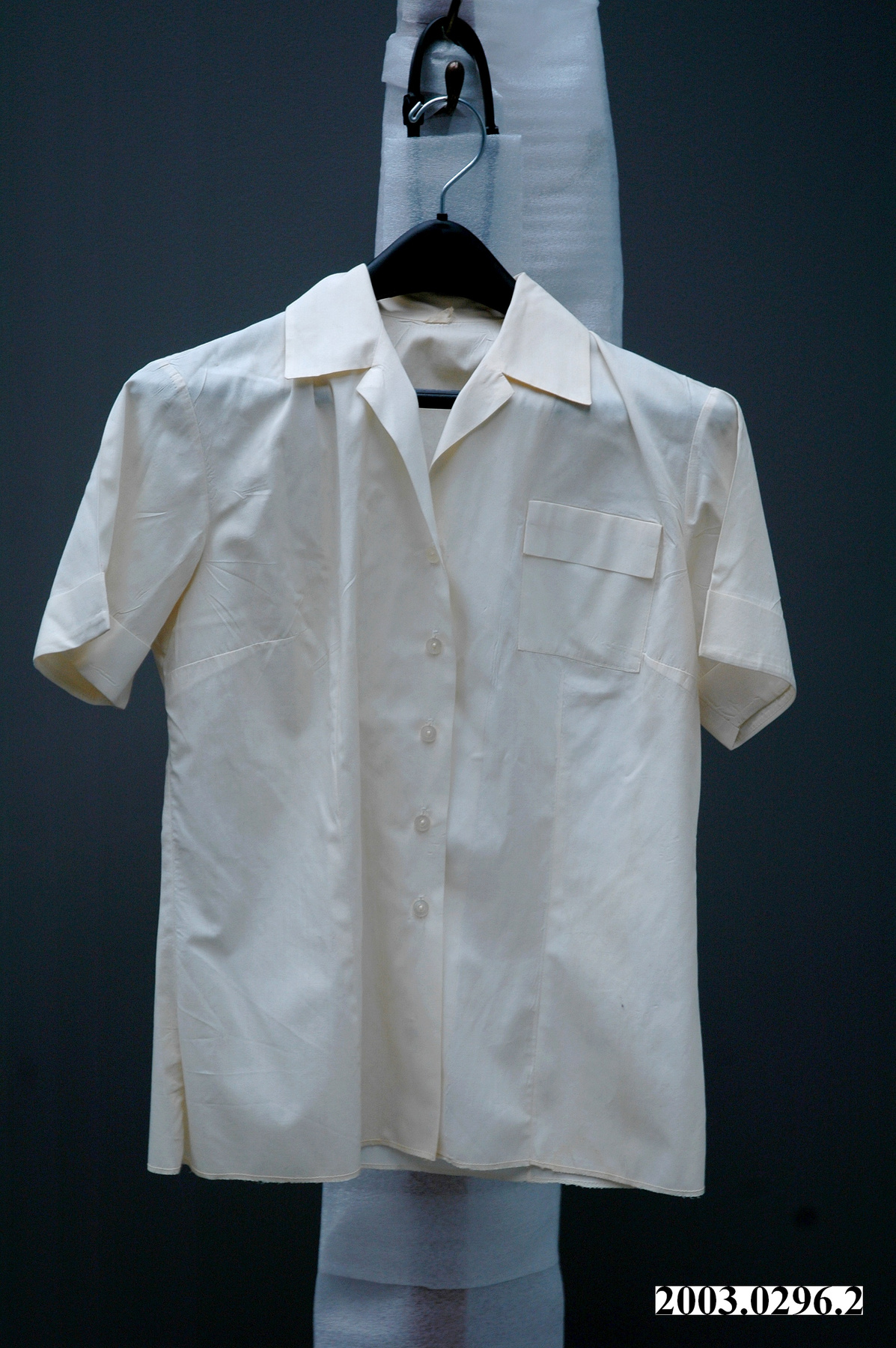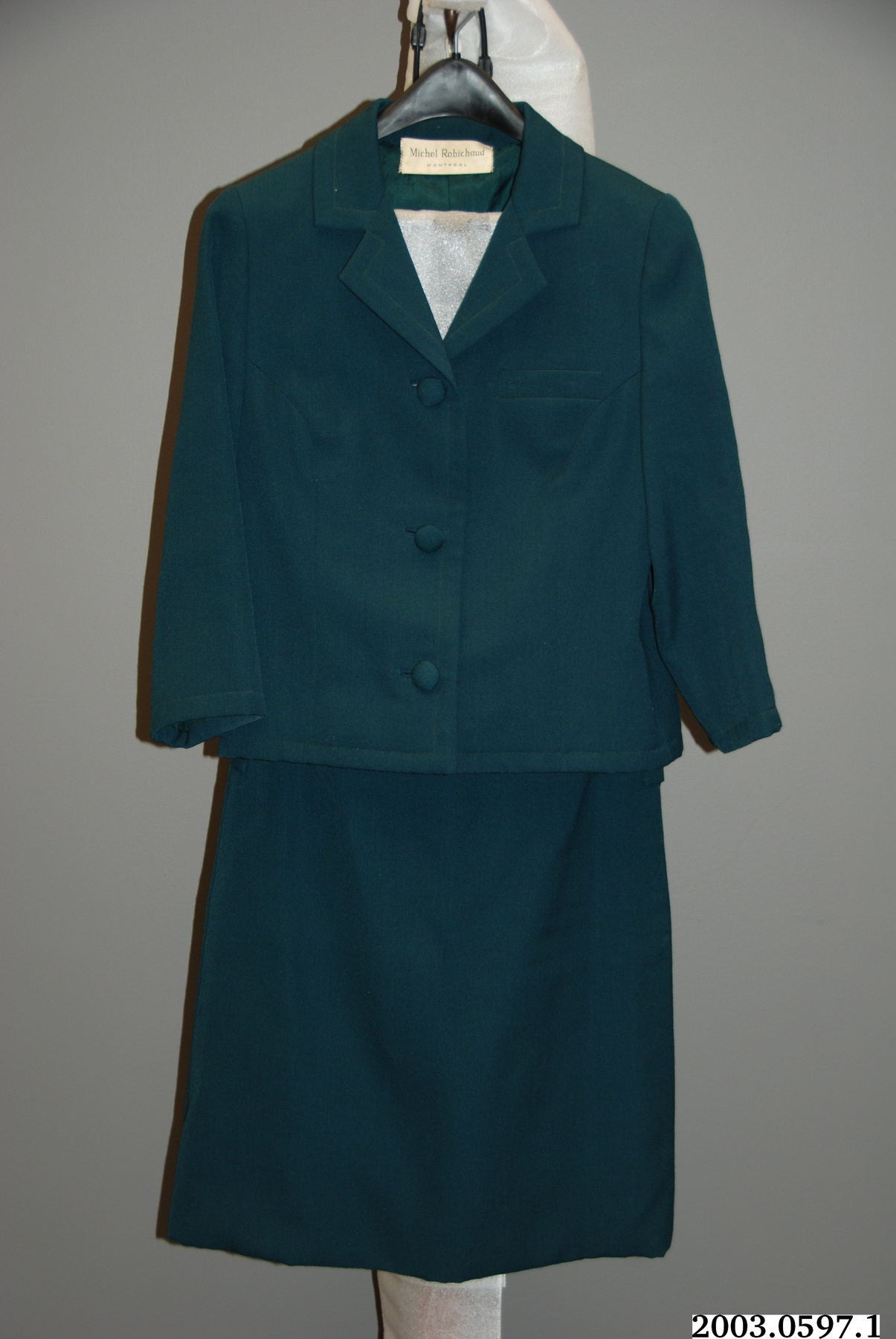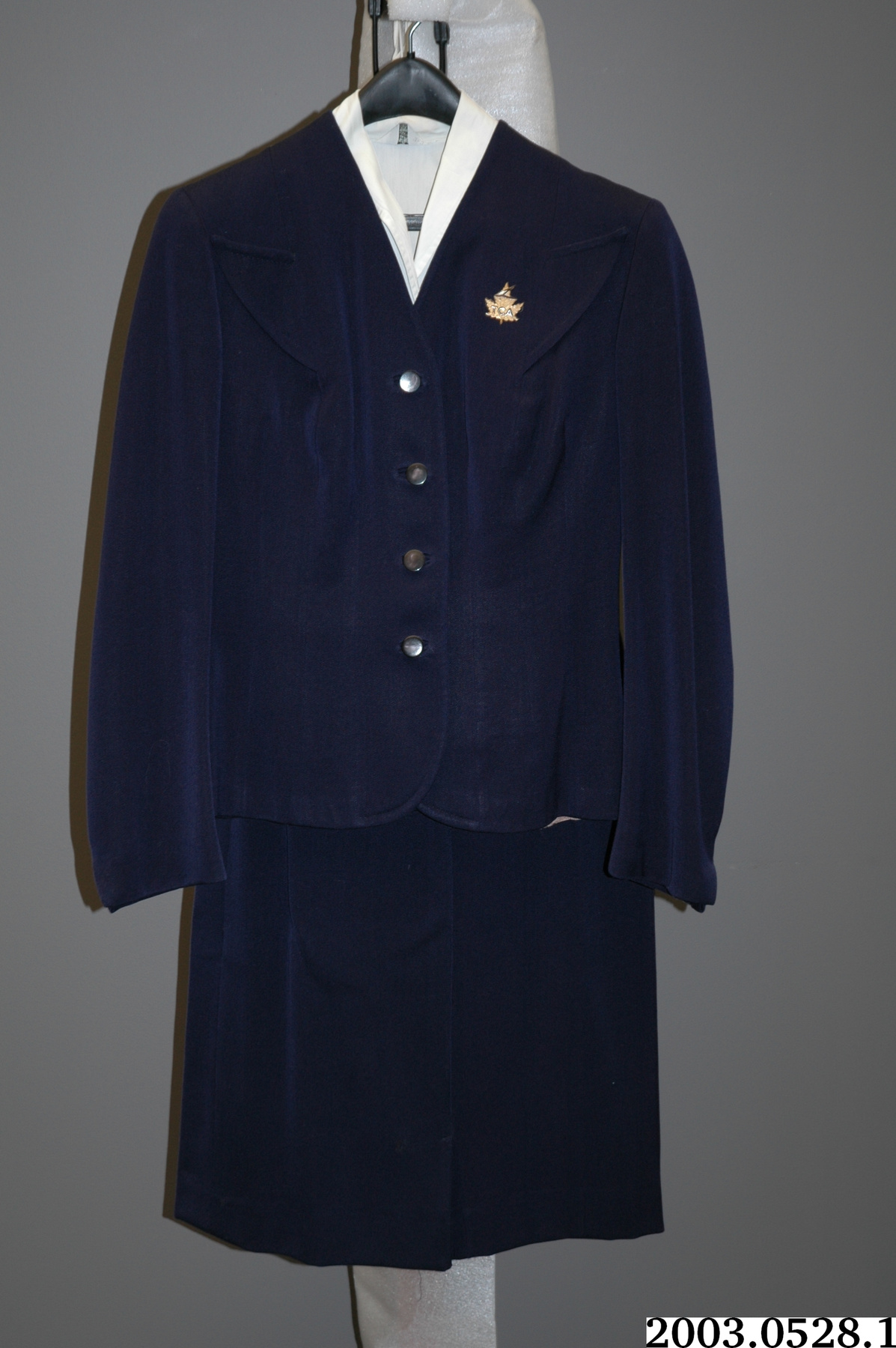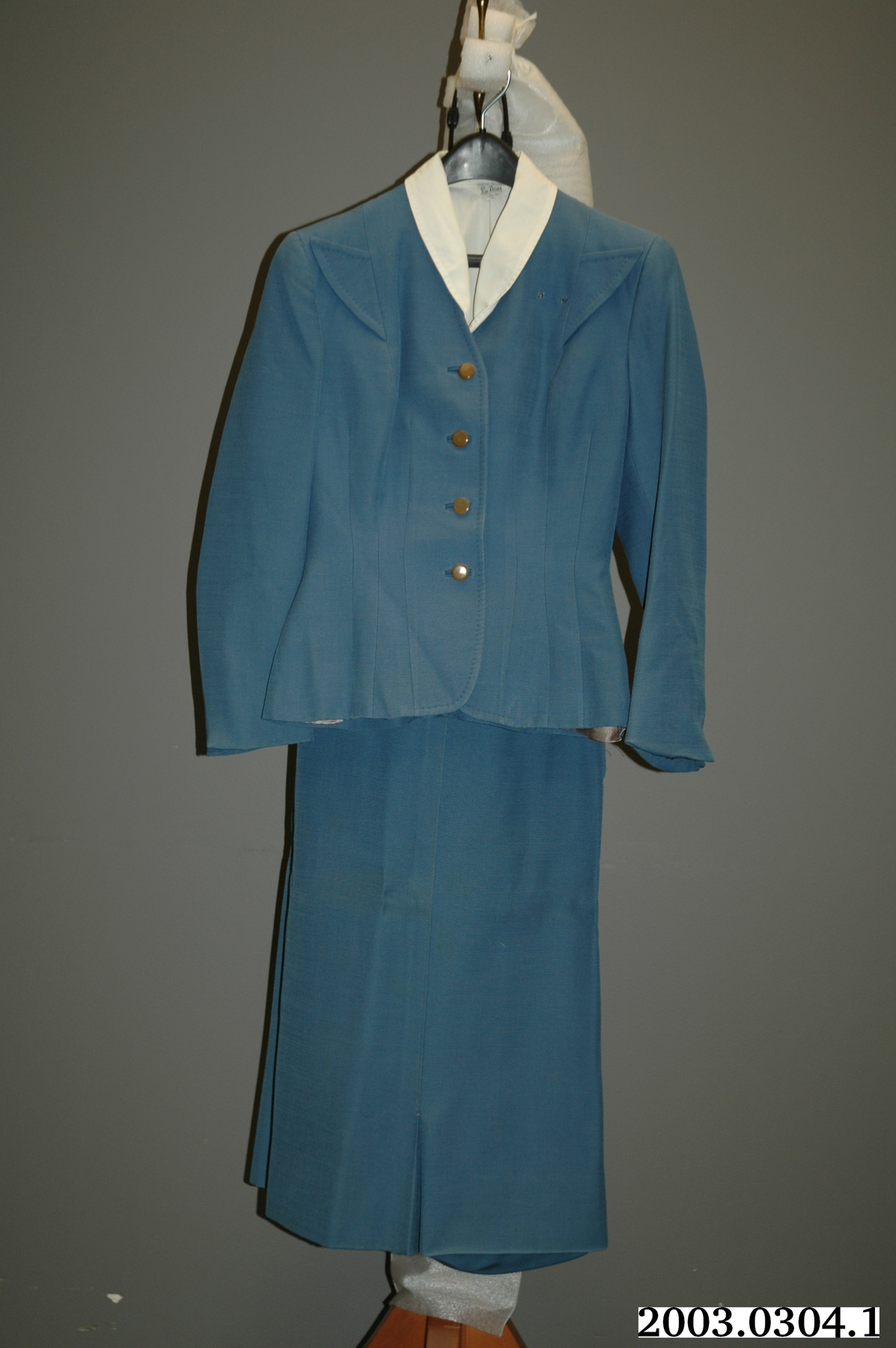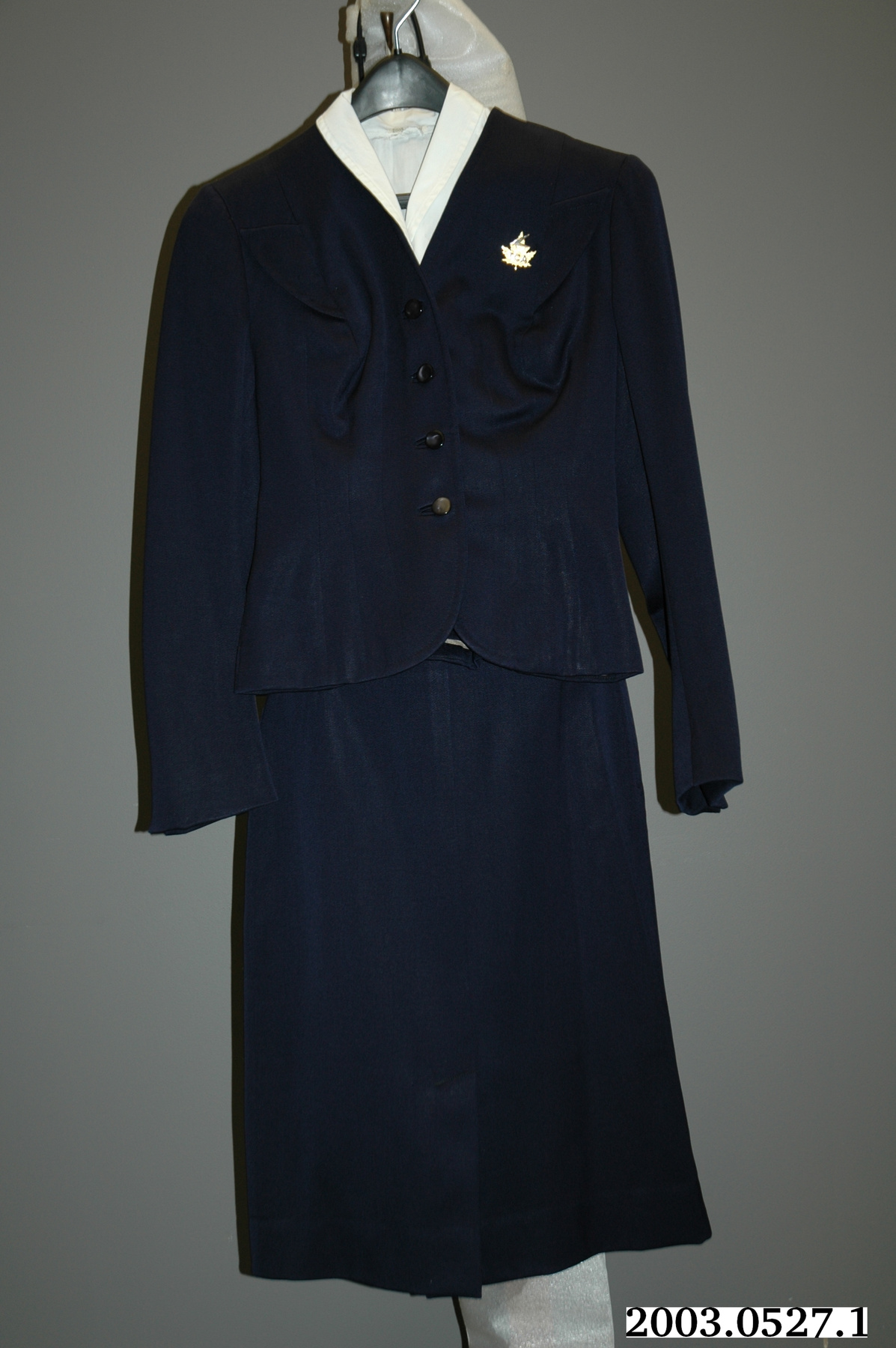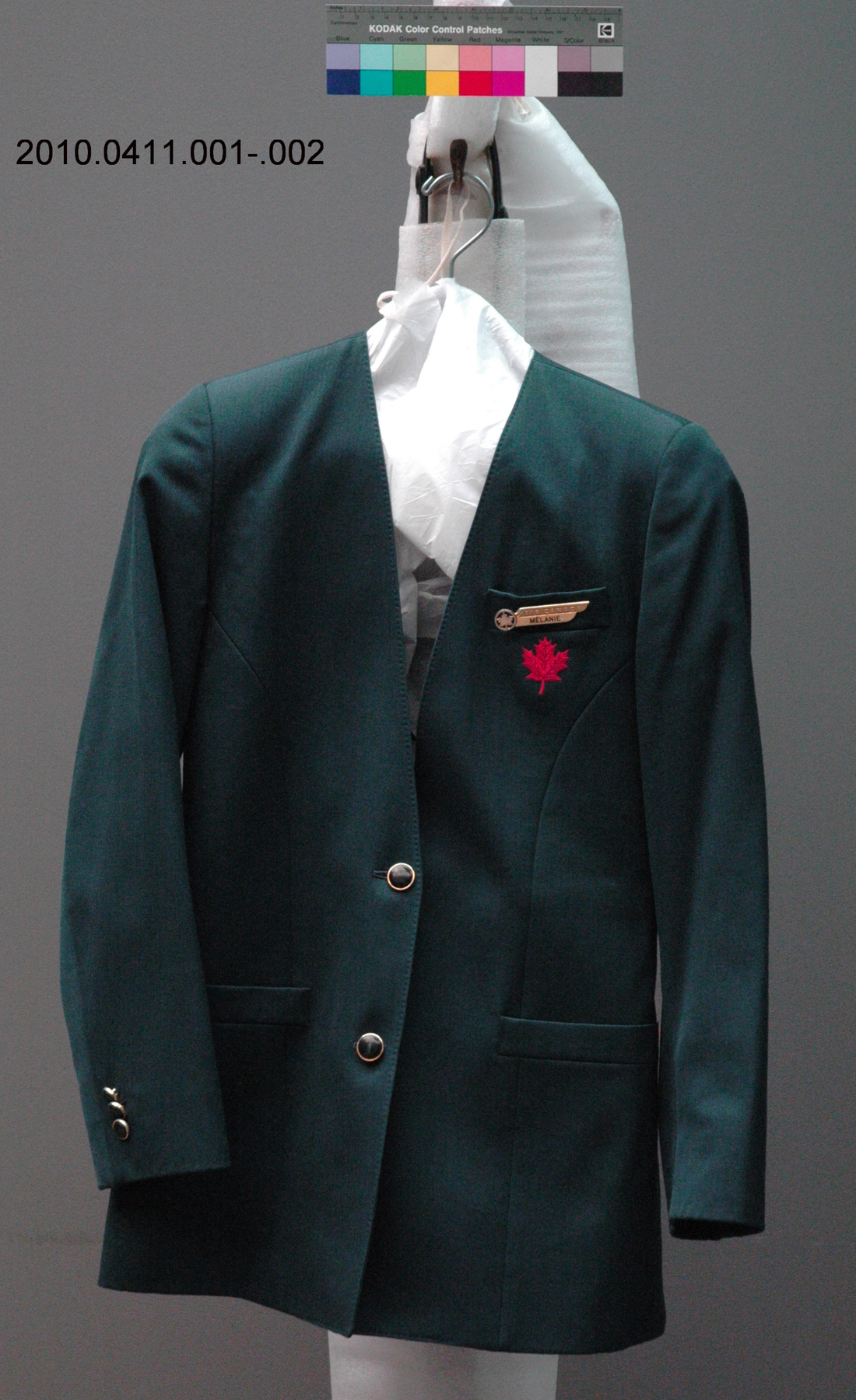Uniforme
Utiliser cette image
Puis-je réutiliser cette image sans autorisation? Oui
Les images sur le portail de la collection d’Ingenium ont la licence Creative Commons suivante :
Copyright Ingenium / CC BY-NC-ND (Attribution-NonCommercial 4.0 International (CC BY-NC 4.0)
ATTRIBUER CETTE IMAGE
Ingenium,
2010.0411.001
Permalien:
Ingenium diffuse cette image sous le cadre de licence Creative Commons et encourage son téléchargement et sa réutilisation à des fins non commerciales. Veuillez mentionner Ingenium et citer le numéro de l’artefact.
TÉLÉCHARGER L’IMAGEACHETER CETTE IMAGE
Cette image peut être utilisée gratuitement pour des fins non commerciales.
Pour un usage commercial, veuillez consulter nos frais de reproduction et communiquer avec nous pour acheter l’image.
- TYPE D’OBJET
- airline/flight attendant/woman's
- DATE
- 1996–2005
- NUMÉRO DE L’ARTEFACT
- 2010.0411.001
- FABRICANT
- Uniformes R & R
- MODÈLE
- Inconnu
- EMPLACEMENT
- Canada
Plus d’information
Renseignements généraux
- Nº de série
- S/O
- Nº de partie
- 1
- Nombre total de parties
- 13
- Ou
- Jacket [.1]
- Brevets
- S/O
- Description générale
- "Blue Spruce" 100% wool jacket; blue-green synthetic (?) fabric lining; black synthetic buttons have goldtone trim.
Dimensions
Remarque : Cette information reflète la taille générale pour l’entreposage et ne représente pas nécessairement les véritables dimensions de l’objet.
- Longueur
- 73,0 cm
- Largeur
- 44,0 cm
- Hauteur
- 9,0 cm
- Épaisseur
- S/O
- Poids
- S/O
- Diamètre
- S/O
- Volume
- S/O
Lexique
- Groupe
- Aviation
- Catégorie
- Vêtements
- Sous-catégorie
- S/O
Fabricant
- Ou
- Uniformes
- Pays
- Canada
- État/province
- Inconnu
- Ville
- Inconnu
Contexte
- Pays
- Worldwide
- État/province
- Inconnu
- Période
- This uniform (including .1 jacket) was worn by donor during period 2000- 2005. This uniform style in use 1996- 2005.
- Canada
-
Example of a flight attendant uniform worn by an employee of Air Canada, Canada's national airline since the mid-twentieth century. Air Canada was originally called Trans Canada Airlines (TCA) and was formed by the Canadian National Railways. The company launched its first flight on September 1, 1937, between Vancouver and Seattle. On January 1, 1965, its name was changed to Air Canada. Air Canada was privatized in 1988. This uniform was introduced in early 1996. Its 'blue spruce" colour was an intentional departure from the previous two Air Canada uniforms, which used navy blue as the base colour. The colour change was supposed to help create a new identity for the airline, which was privatized in 1988, but which people still perceived as being government owned. The identity revolved around professionalism and customer service. The basic components of this uniform for women were jacket and choice of pants, dress, or skirt together with blouse (available in long or short sleeve versions) and brevet. The jacket could be worn with all uniform components. The blouse was only to be worn with the skirt or the pants. Both the pants and the skirt had to be worn with a belt. There was also a two-piece, print dress, the top of which could be worn with the spruce skirt or pants. A tapestry vest was provided to be worn with the long or short sleeve blouse. The uniform guide states that the vest could be worn for service in Executive or Executive First, suggesting that it was not supposed to be worn for service in other classes. A cardigan sweater could be worn under the jacket for warmth. Two coats were available for outer wear: a Pilot’s coat and a Dresswear all weather coat. A button in q quilted liner made the coat appropriate for temperatures as cold as -30C. The coat, blouse, and dresses could be accented with a dress scarf. There are three categories of uniforms in this issue: pilots, dresswear, and workwear. All three categories of uniform were issued at the same time. In previous uniform issues, passenger agents wore different uniforms than in flight service agents. With this uniform issue, ground staff such as passenger agents wear the same uniform as in-flight service agents. The only difference is the shape of the brevet. This uniform belonged to Melanie Lariviere, who was hired as a flight attendant in Montreal on September 18, 2000. After completing the initial training course in November, she moved to Toronto, where she was still based at the time of this donation. [Ref. 1] - Fonction
-
To identify the wearer as an Air Canada flight attendant. - Technique
-
A flight attendant uniform is designed to provide a particular look, but is also usually designed around the flight attendant's job and working environment. Materials and designs are often chosen for ease of use. For instance, the skirt has a back dart that makes walking and bending easier. The dress has kick pleats for similar reasons. Skirts are long enough that flight attendants can reach over head bins without the skirt pulling up too high. Clothes that are worn close to the skin (blouses, dresses) are made from blended materials (often cotton and polyester) that can be washed and put in a drying machine. Cotton is comfortable and breathes but polyester will reduce wrinkles. Some blended fabrics will require little or no ironing. The cardigan is made of PIL-TROL, an acrylic that does not pill as much as other knit fabrics. Vests worn while serving will protect white blouses from spills. There is no distinction with this uniform between summer and winter wear, but there are uniform variations that are lighter weight (the dress, for instance) than others (wool skirt and trousers). The temperature may very greatly during a flight attendant’s shift – she may travel from a warm climate to a cold one, and the cabin temperature is often cold. Layers like cardigans and vests allow flight attendants to alter their uniform so they stay cool/warm enough during a shift. [Ref. 1] - Notes sur la région
-
Inconnu
Détails
- Marques
- " [logo]/ AIR CANADA/ PAR/BY/ UNIFORMES R&R" appears on label sewn to inside left pocket exterior. "NOV 2000/ 100% WOOL/ LAINE/ 1200-52900/23/ OO R/ CA 31360/ DRY CLEAN ONLY/ NETTOYAGE A SEC/ FABR/ MADE IN/ CANADA/ P.O. 31376/ MF" and "Professionally dry clean only/ Reduce moisture/ Do not tumble- Short cycles/ Max. temp. 60'C (113'F)/ No steam/ Before dryclean remove/ buttons and trims/ Iron warm 60'C (113'F)/ Use press cloth" printed in English and French on tag sewn to inside pocket edge. "Made in/Fait au/ Canada" printed on tag sewn inside neckline, at jacket back.
- Manque
- Uniform issue is incomplete. .1 Jacket appears complete.
- Fini
- "Blue Spruce" 100% wool jacket; blue-green synthetic (?) fabric lining; black synthetic buttons have goldtone trim.
- Décoration
- Large red stylized maple leaf motif embroidered on left breast pocket.
FAIRE RÉFÉRENCE À CET OBJET
Si vous souhaitez publier de l’information sur cet objet de collection, veuillez indiquer ce qui suit :
Uniformes R & R, Uniforme, entre 1996–2005, Numéro de l'artefact 2010.0411, Ingenium - Musées des sciences et de l'innovation du Canada, http://collection.ingeniumcanada.org/fr/id/2010.0411.001/
RÉTROACTION
Envoyer une question ou un commentaire sur cet artefact.
Plus comme ceci
